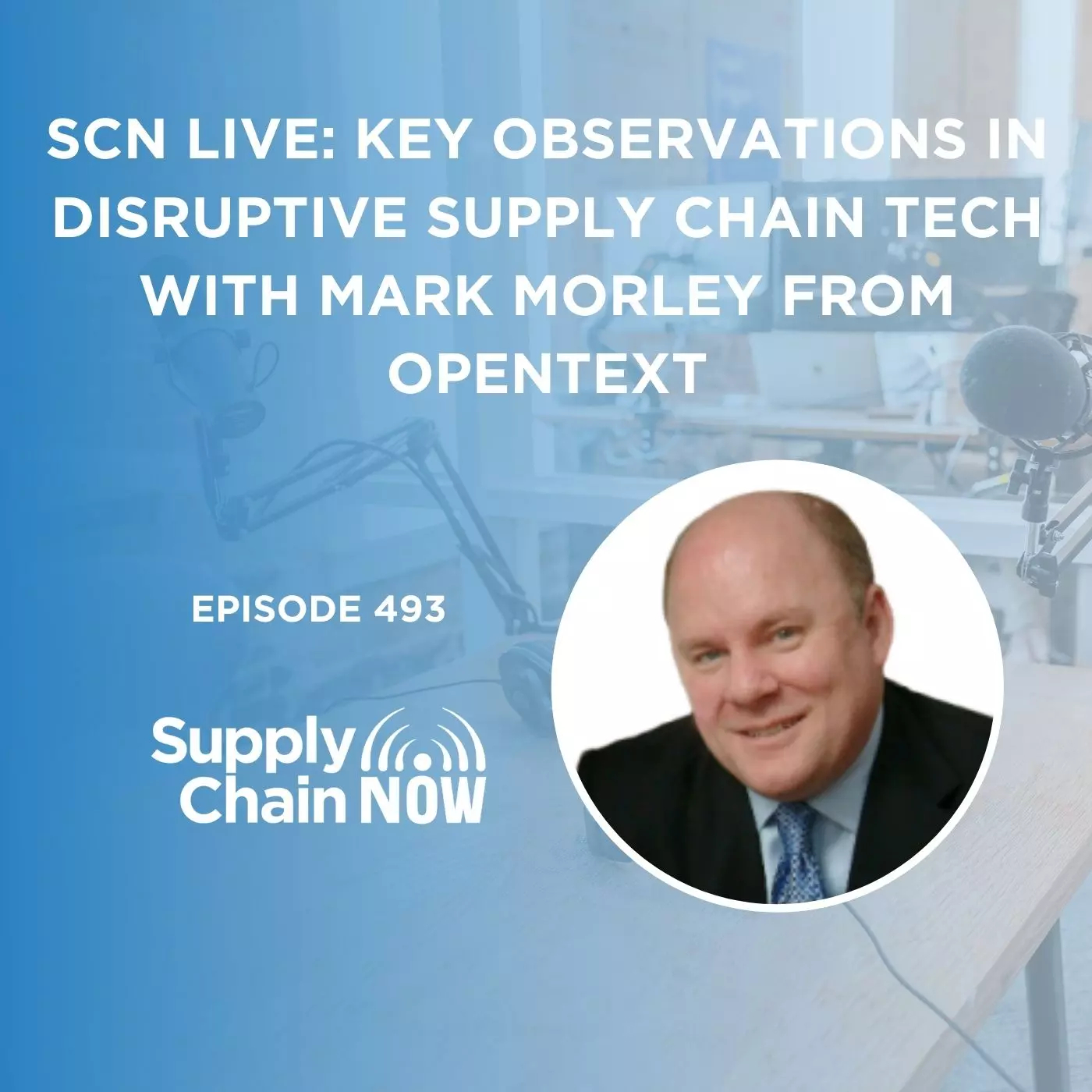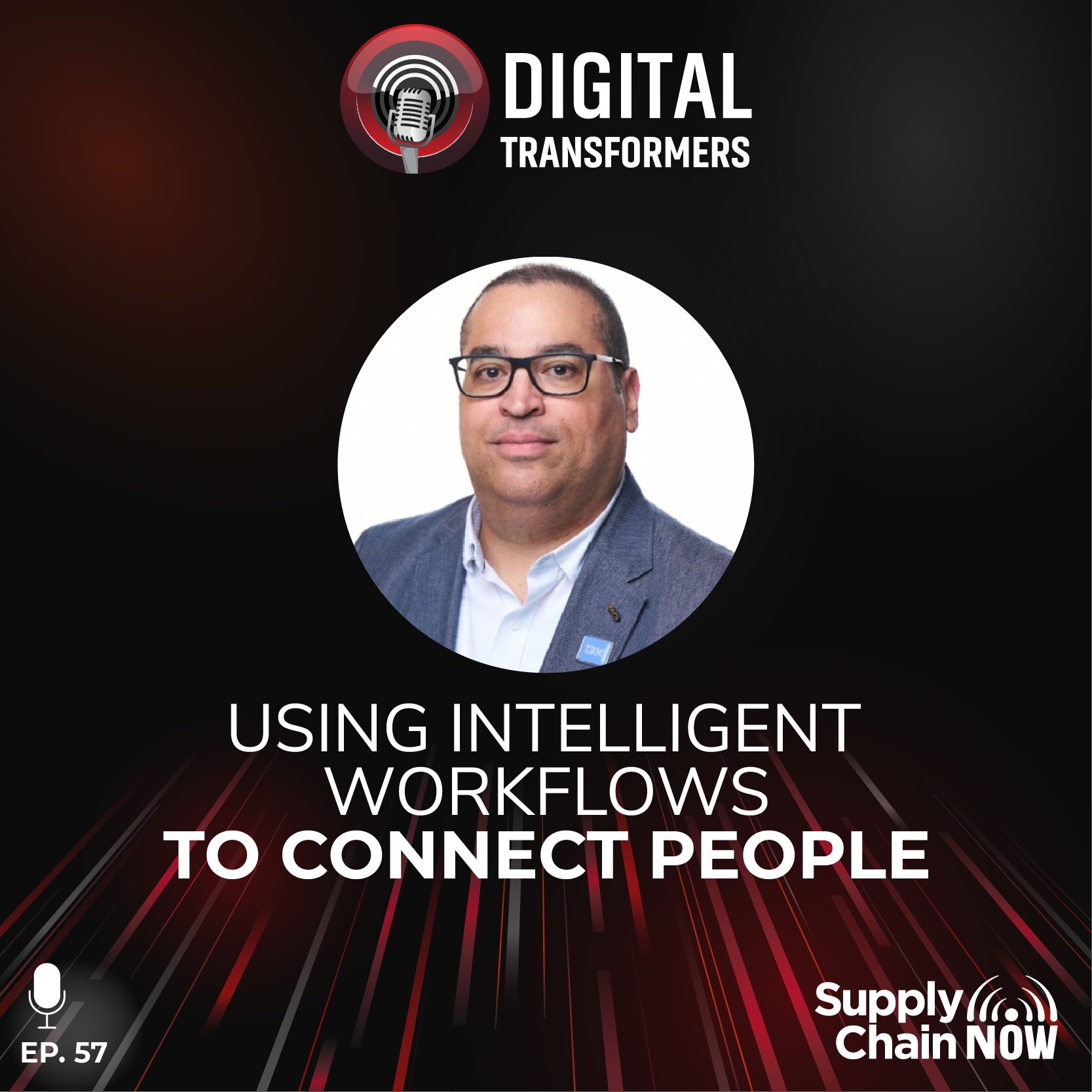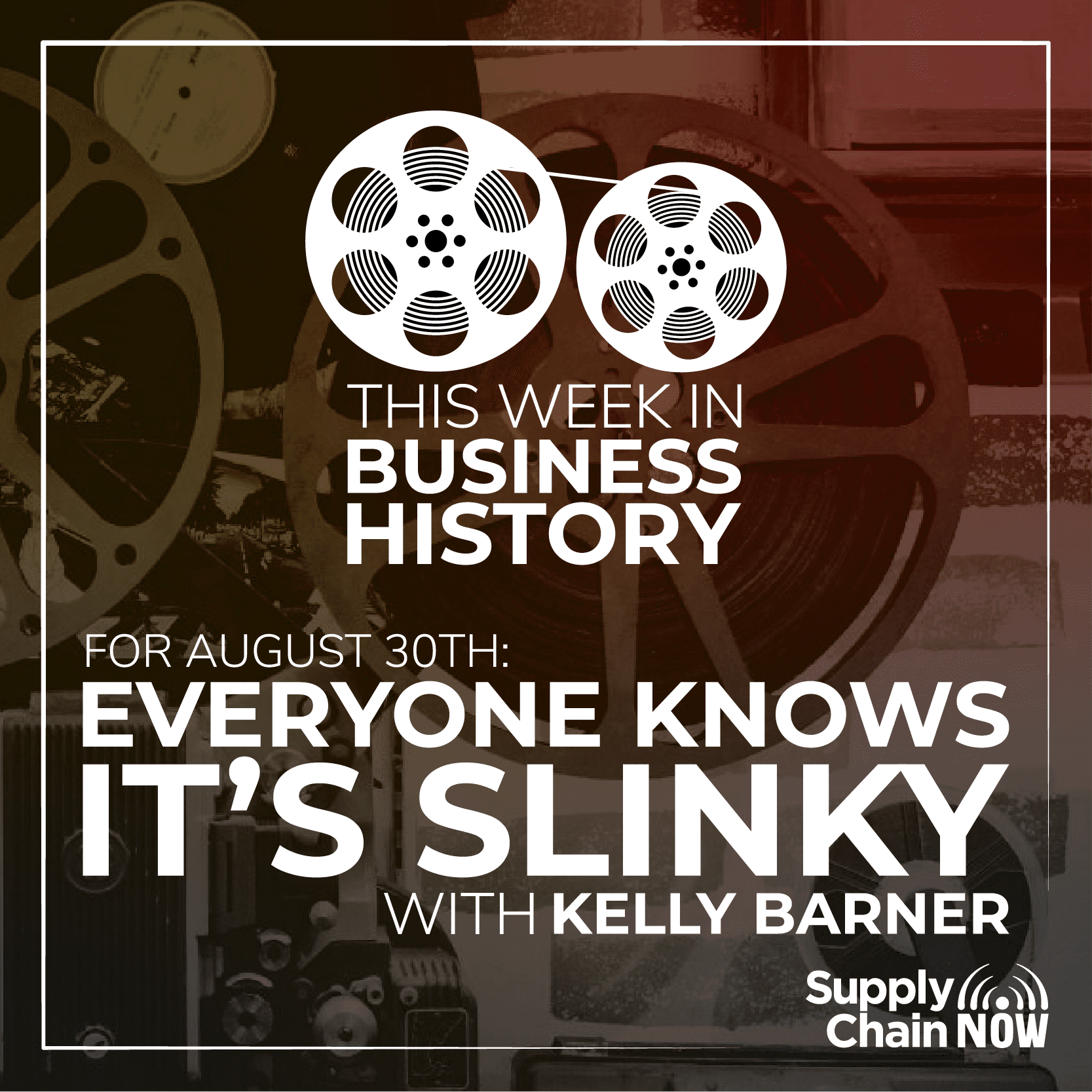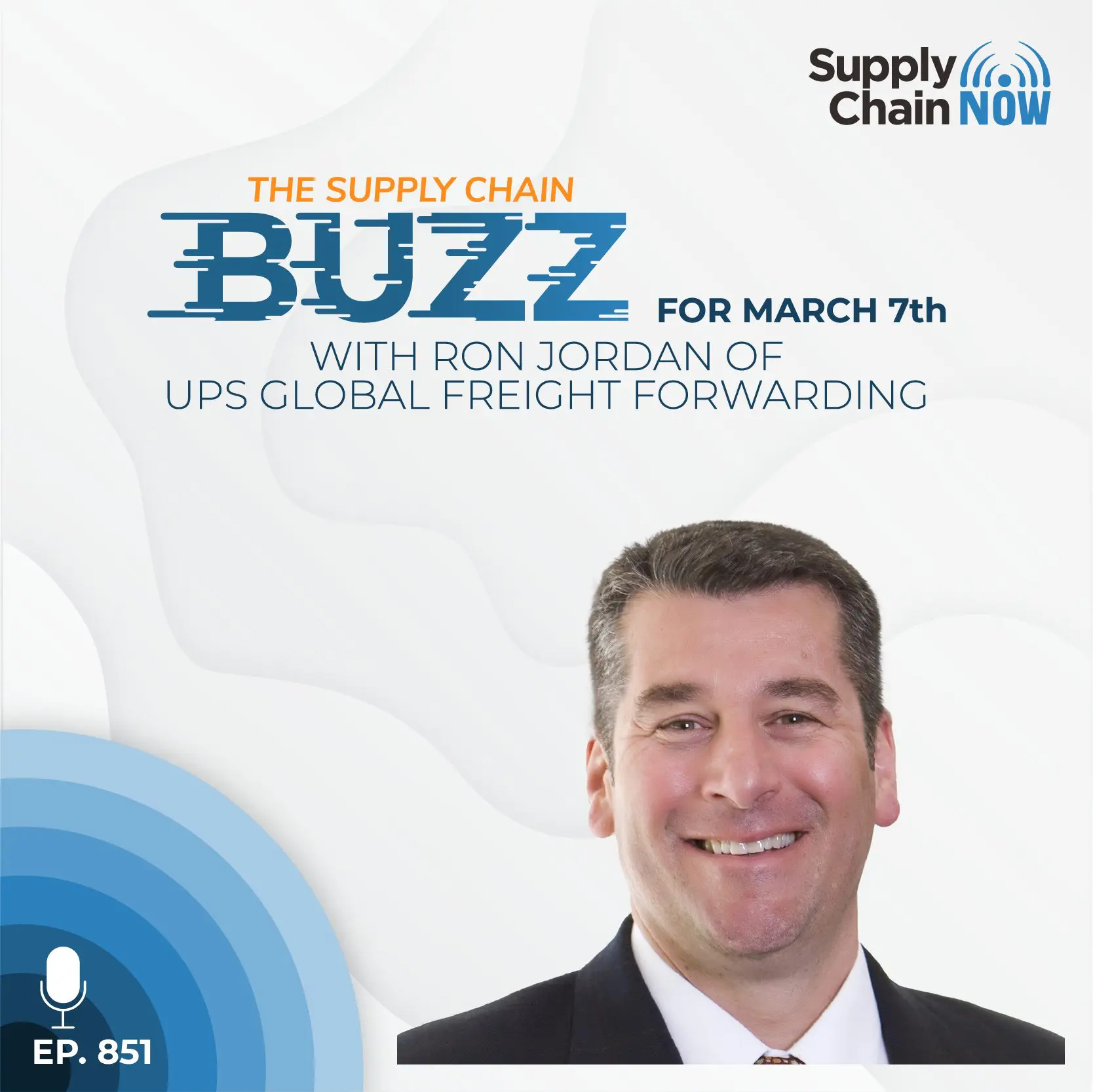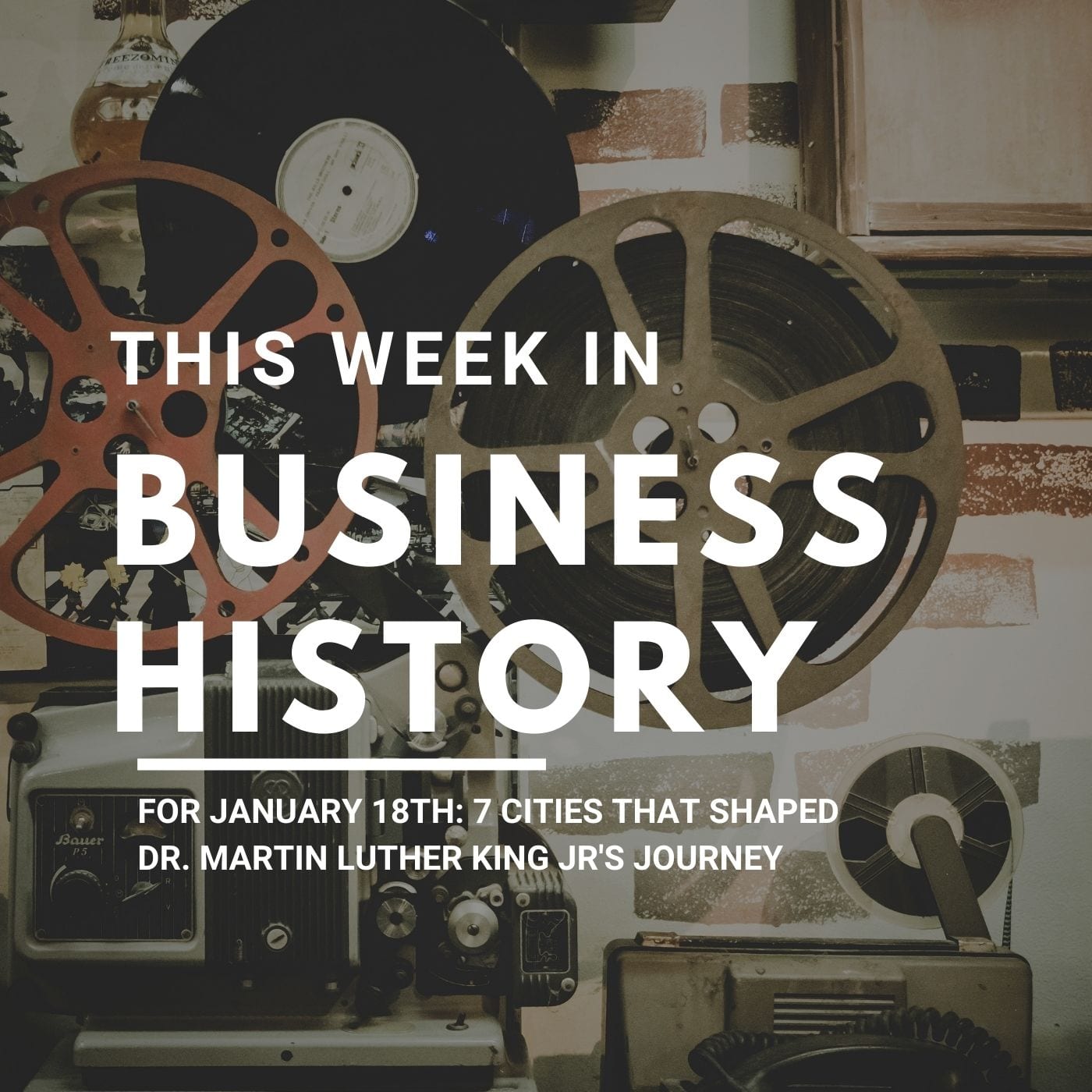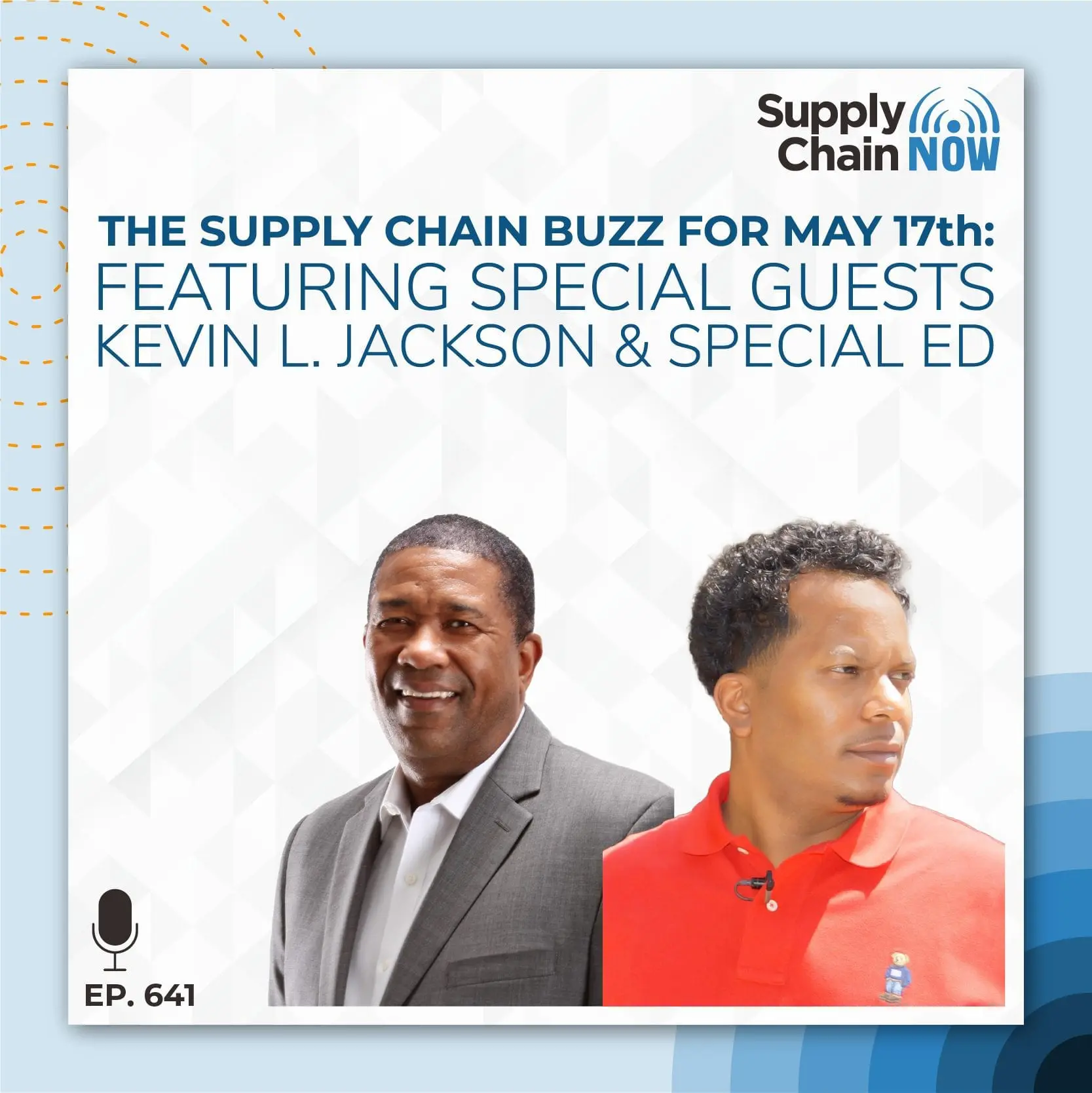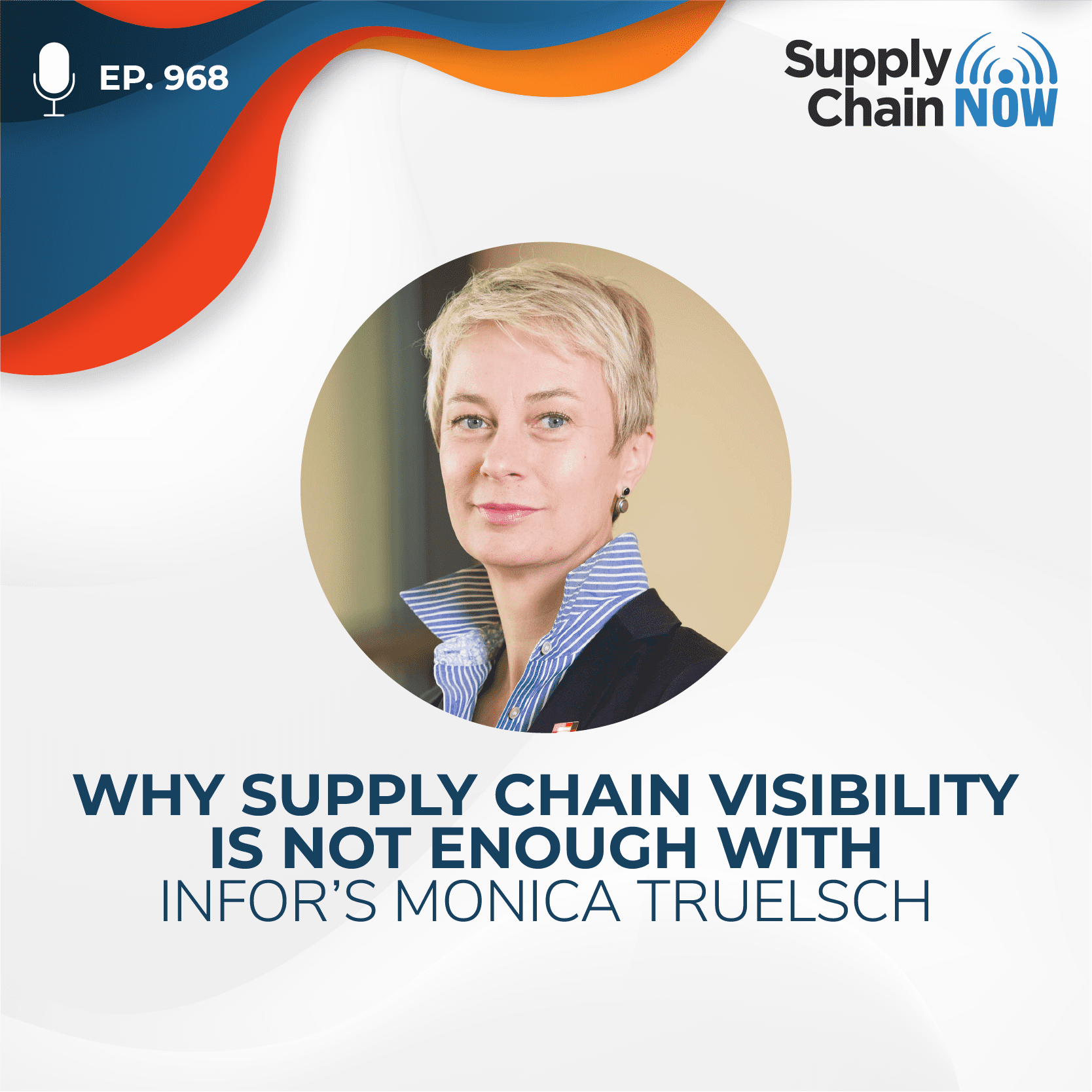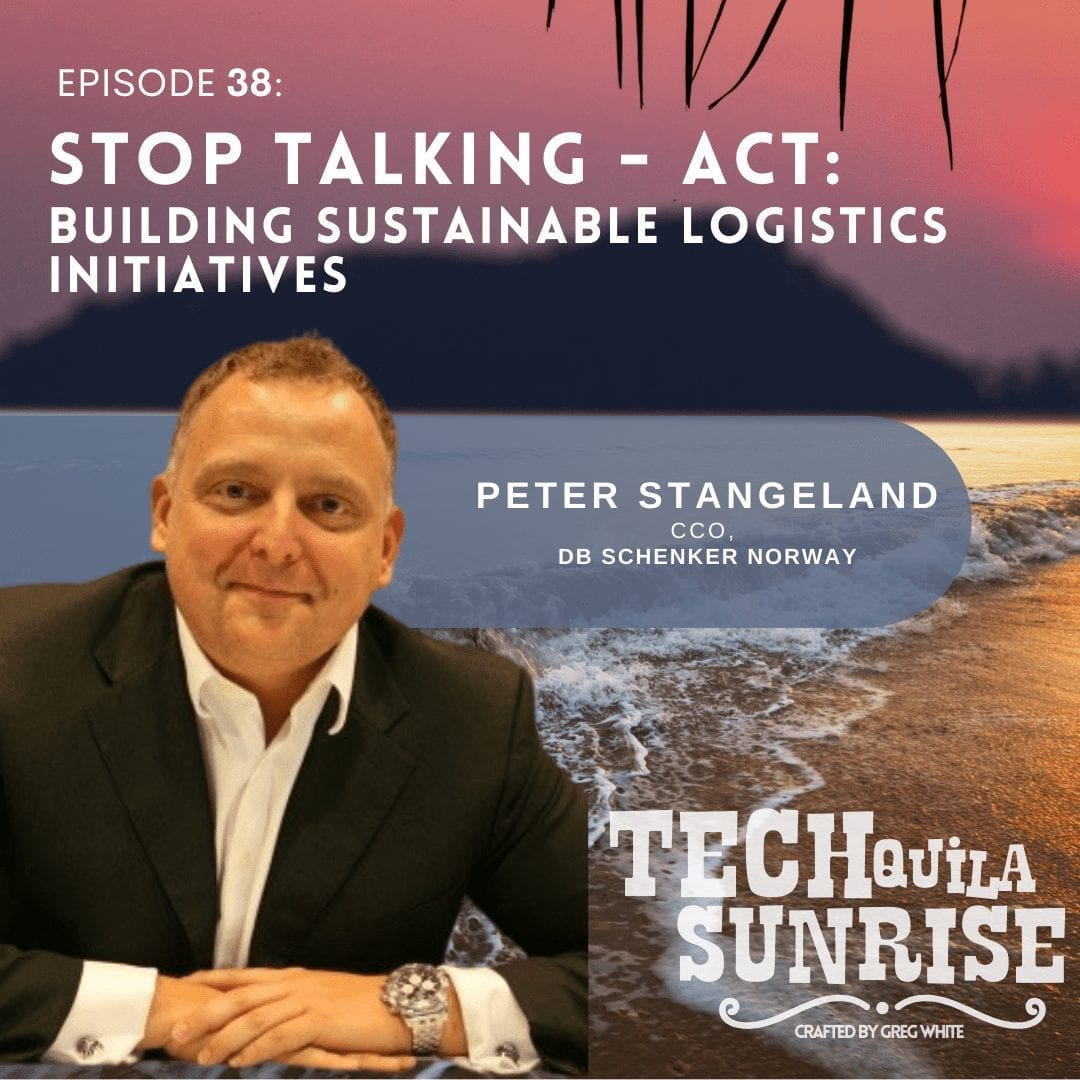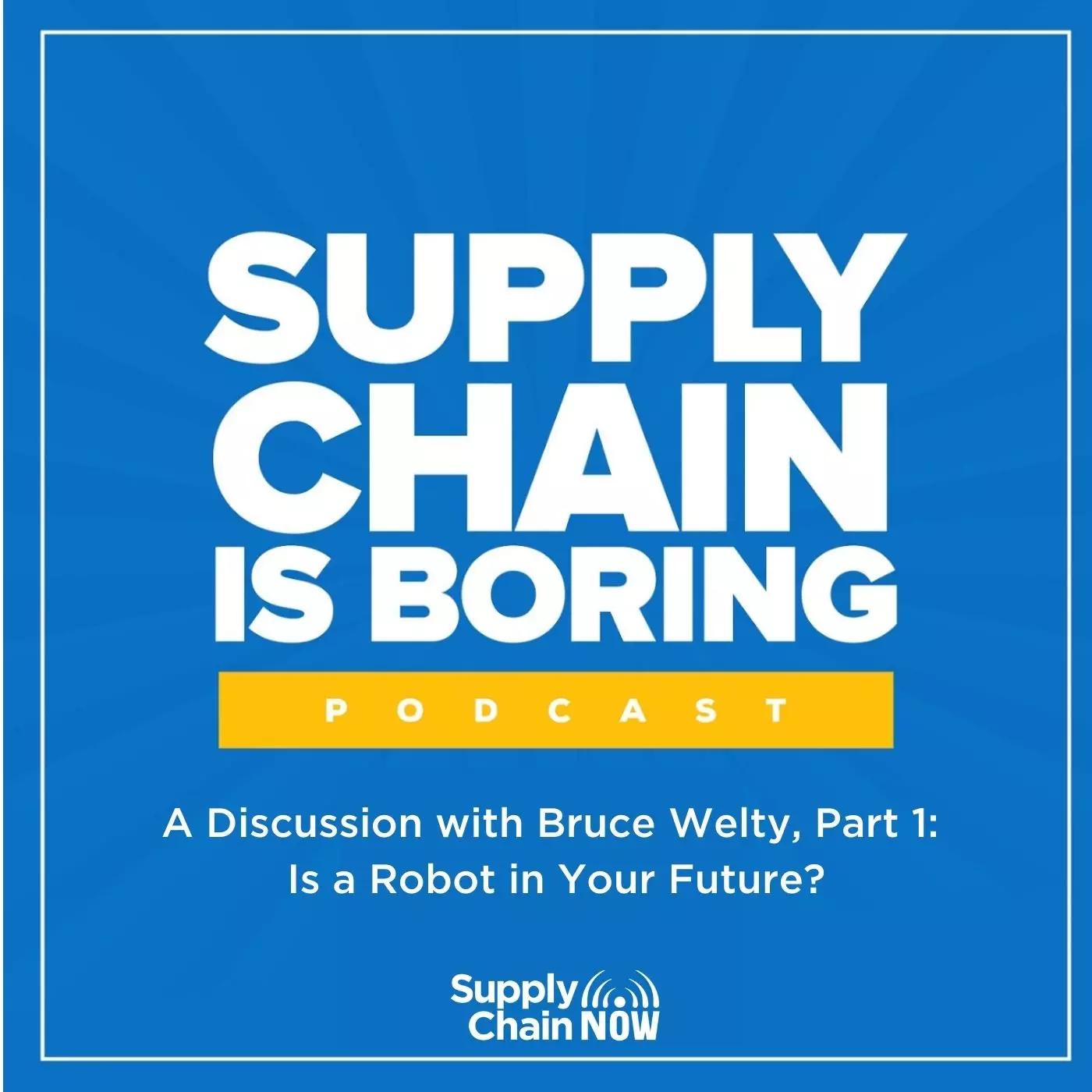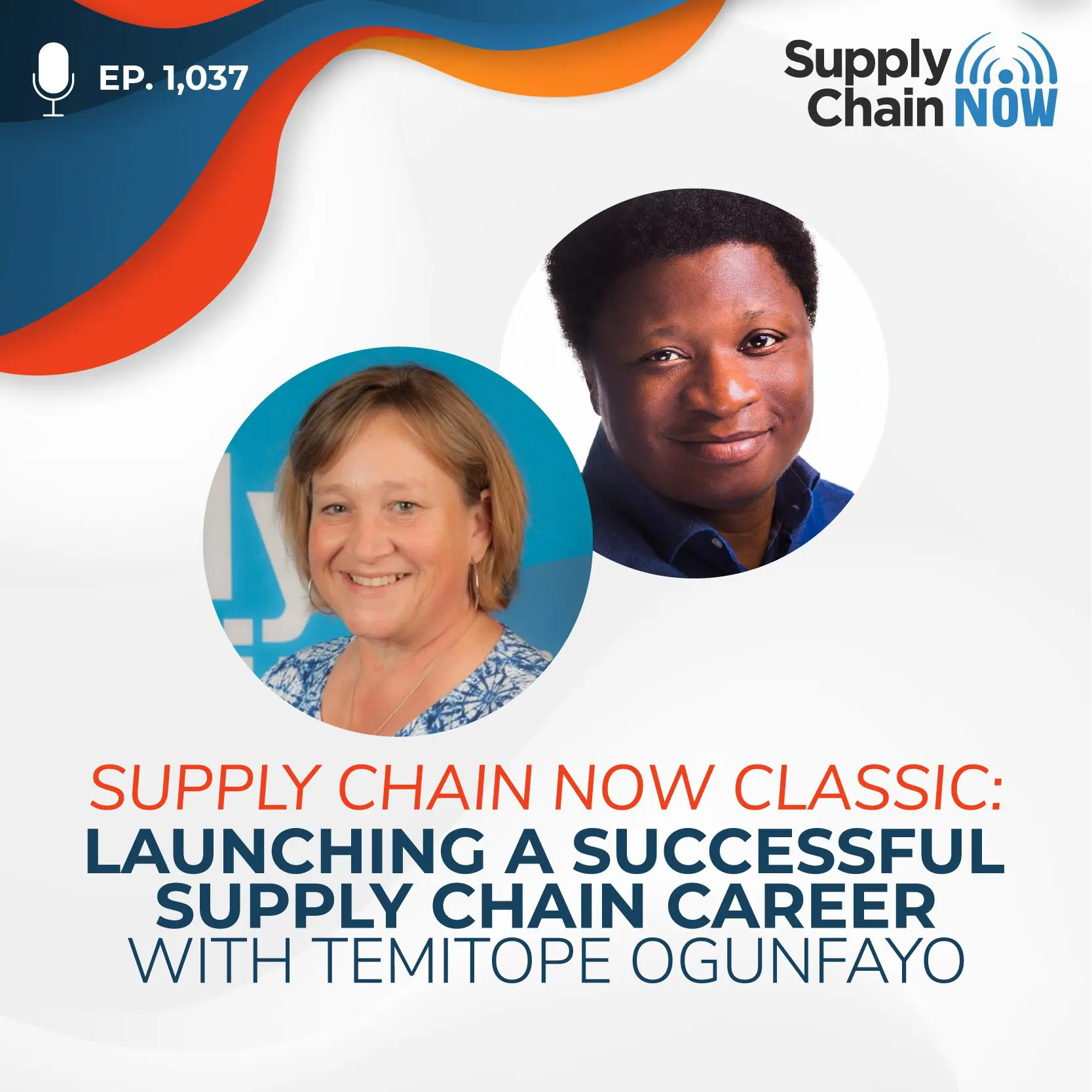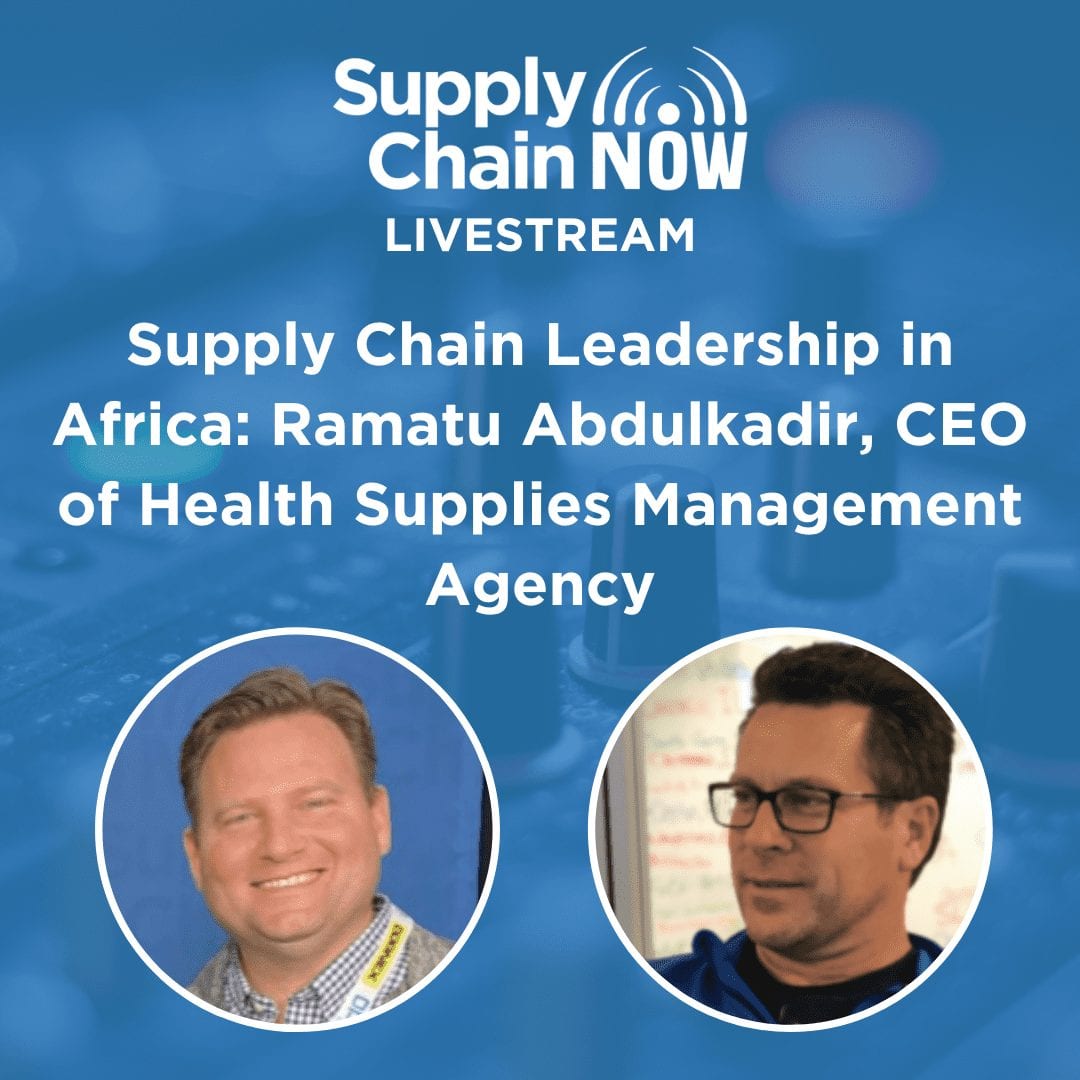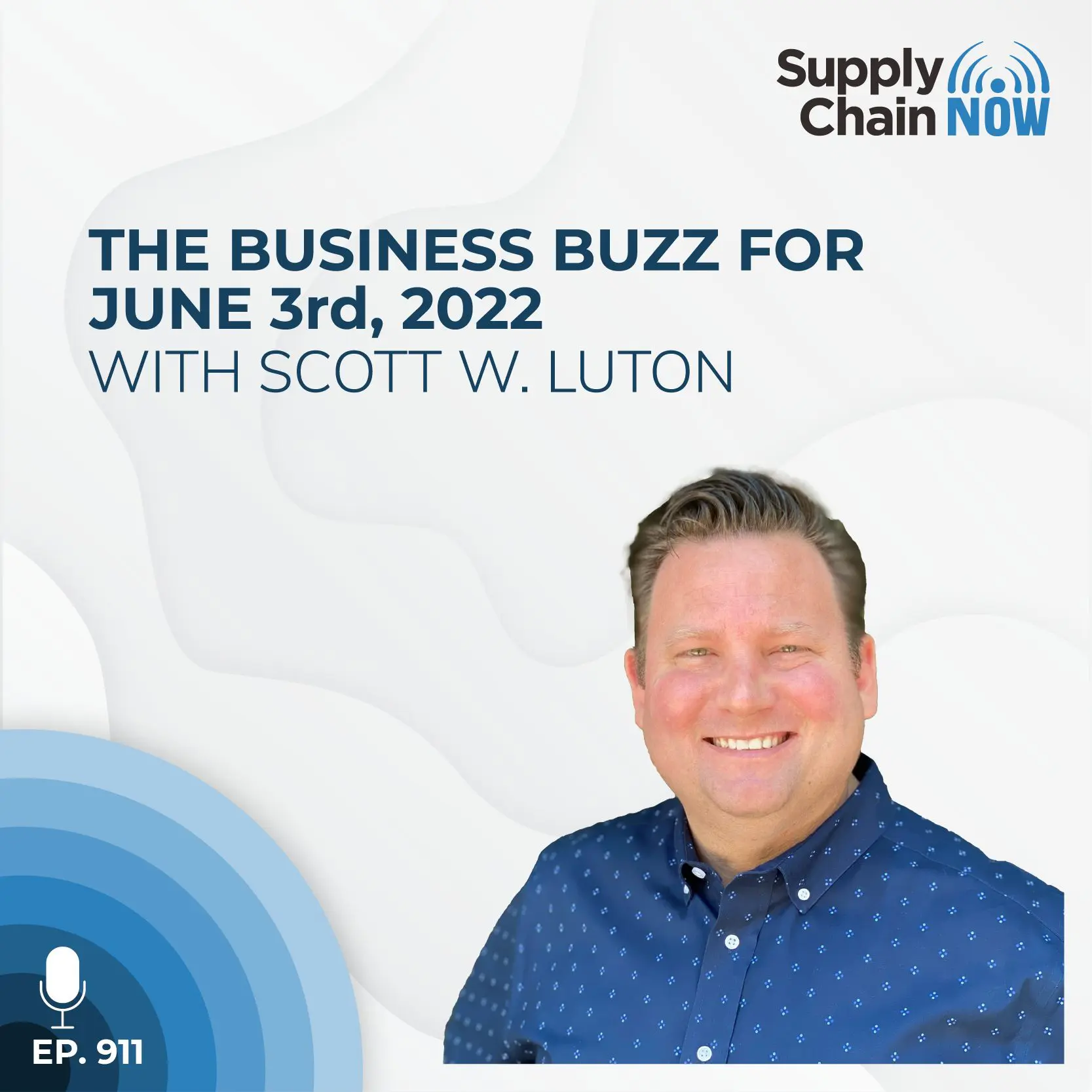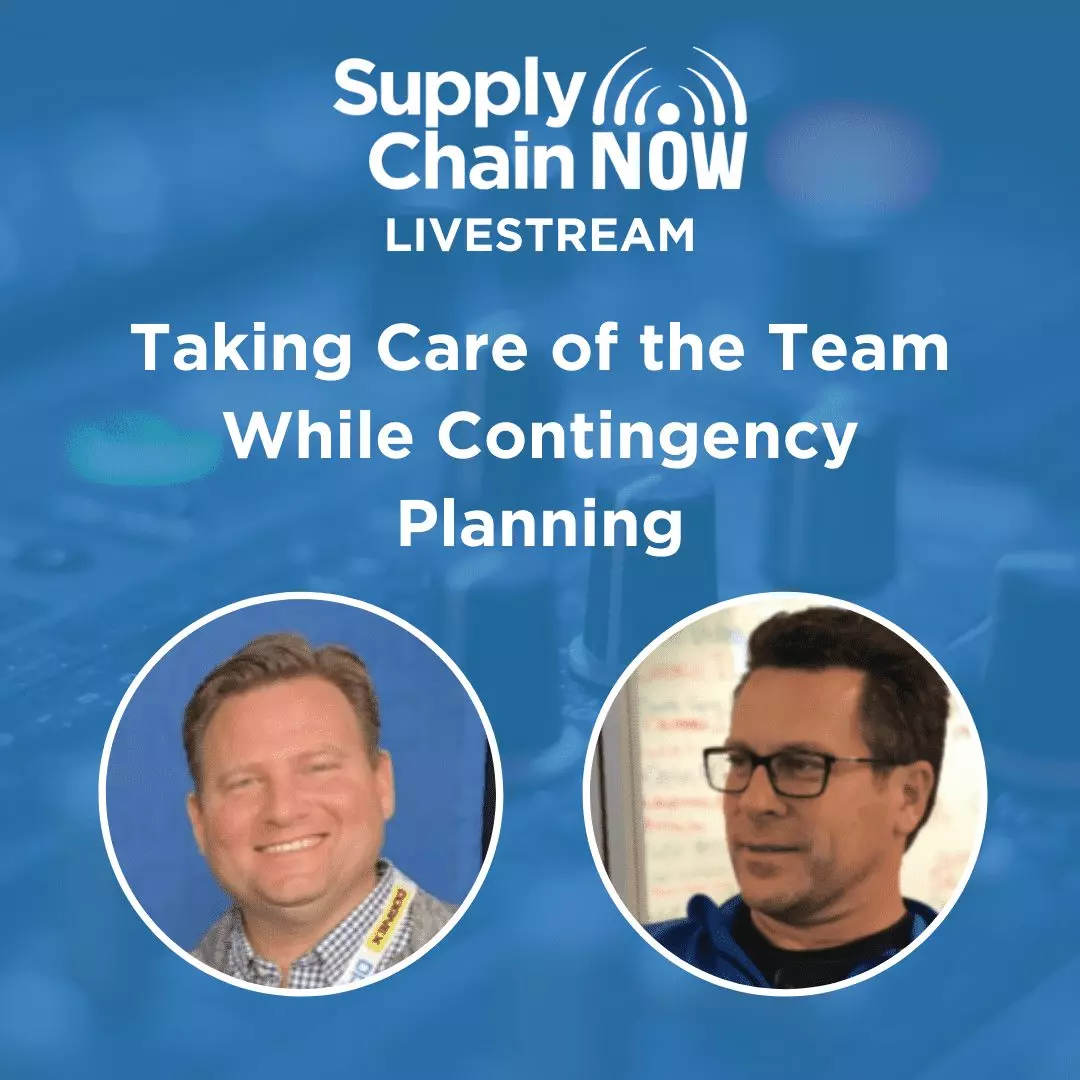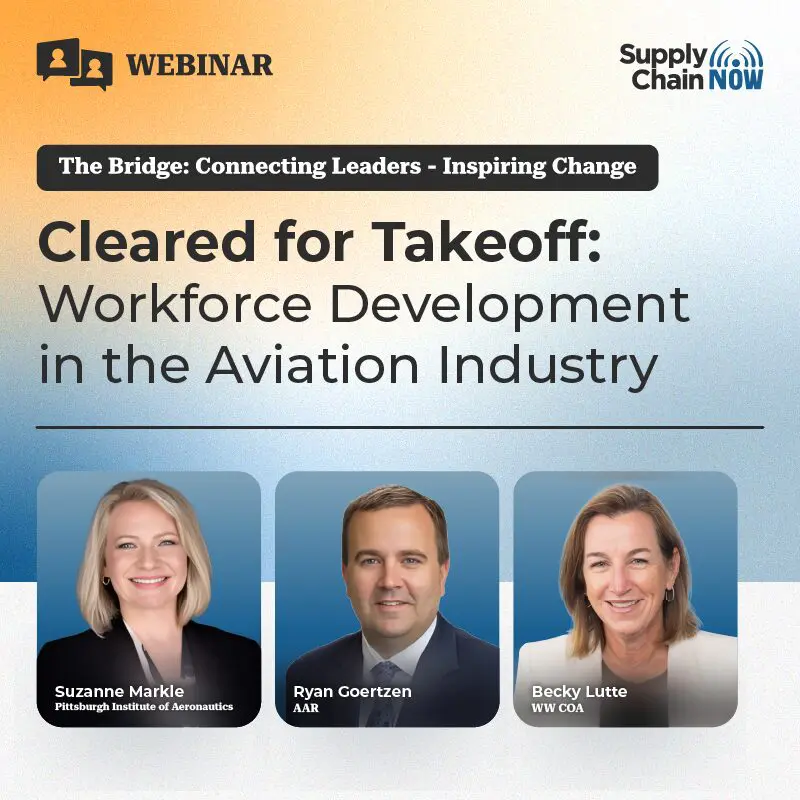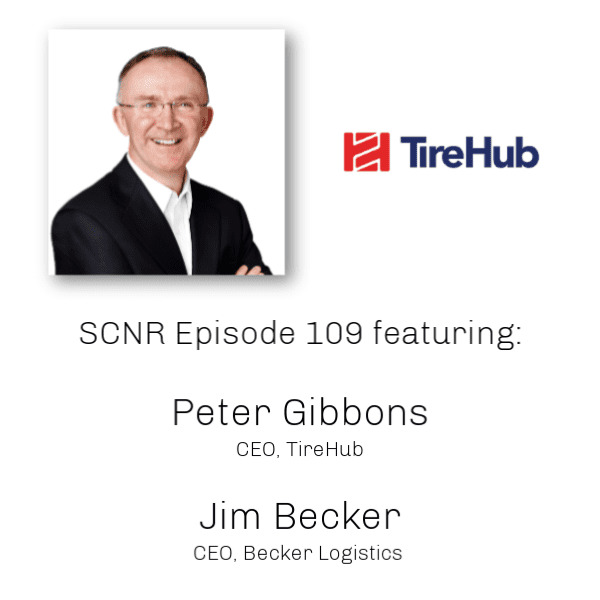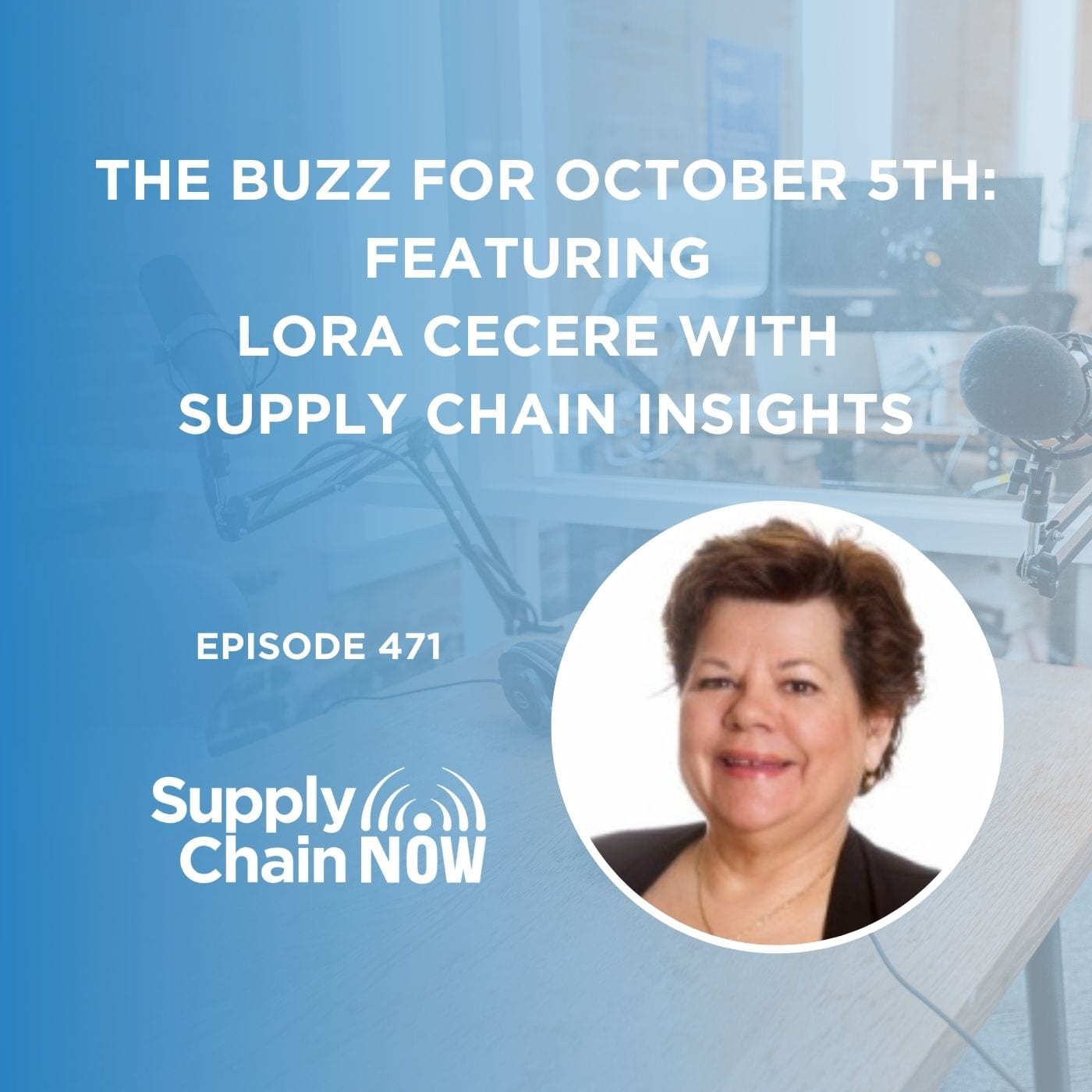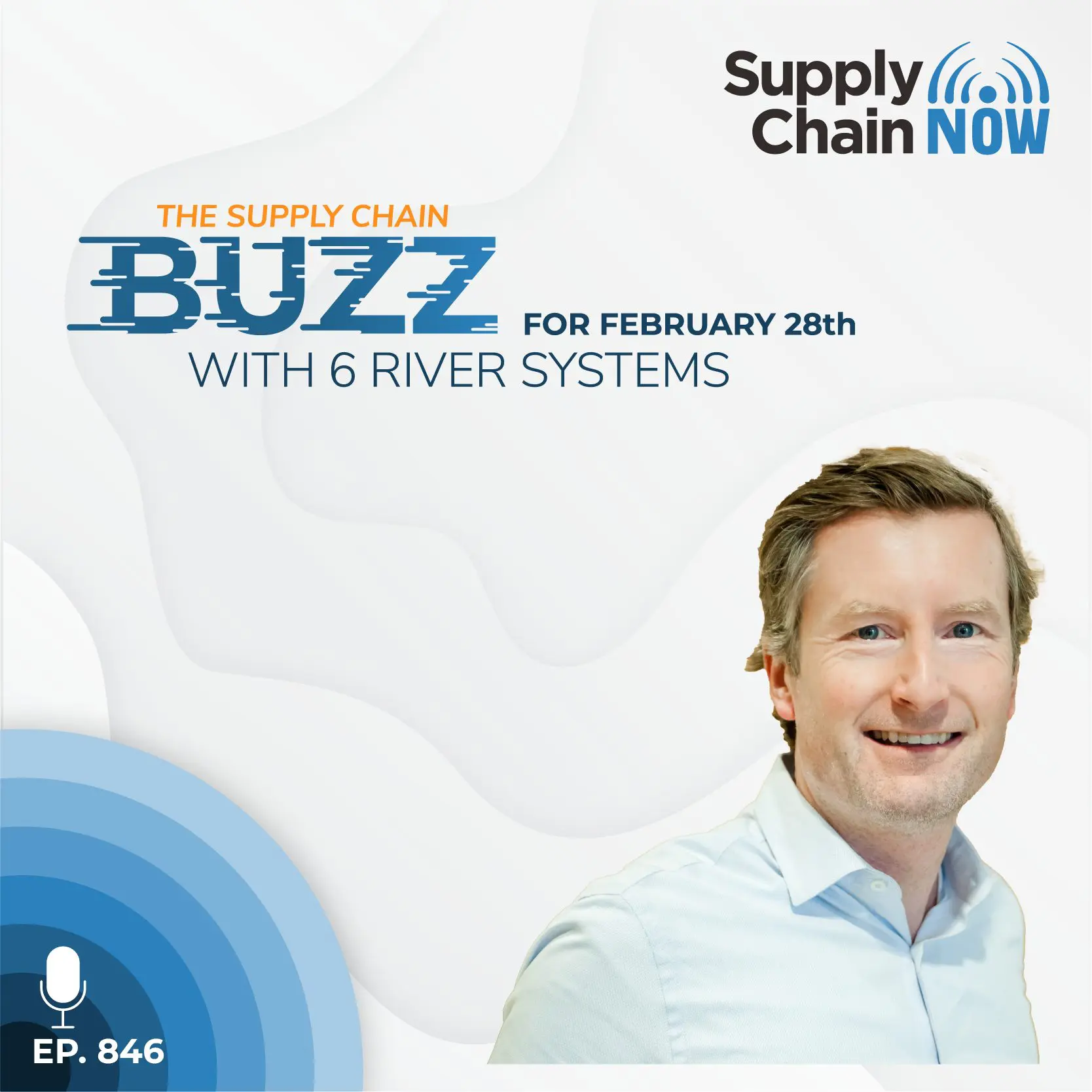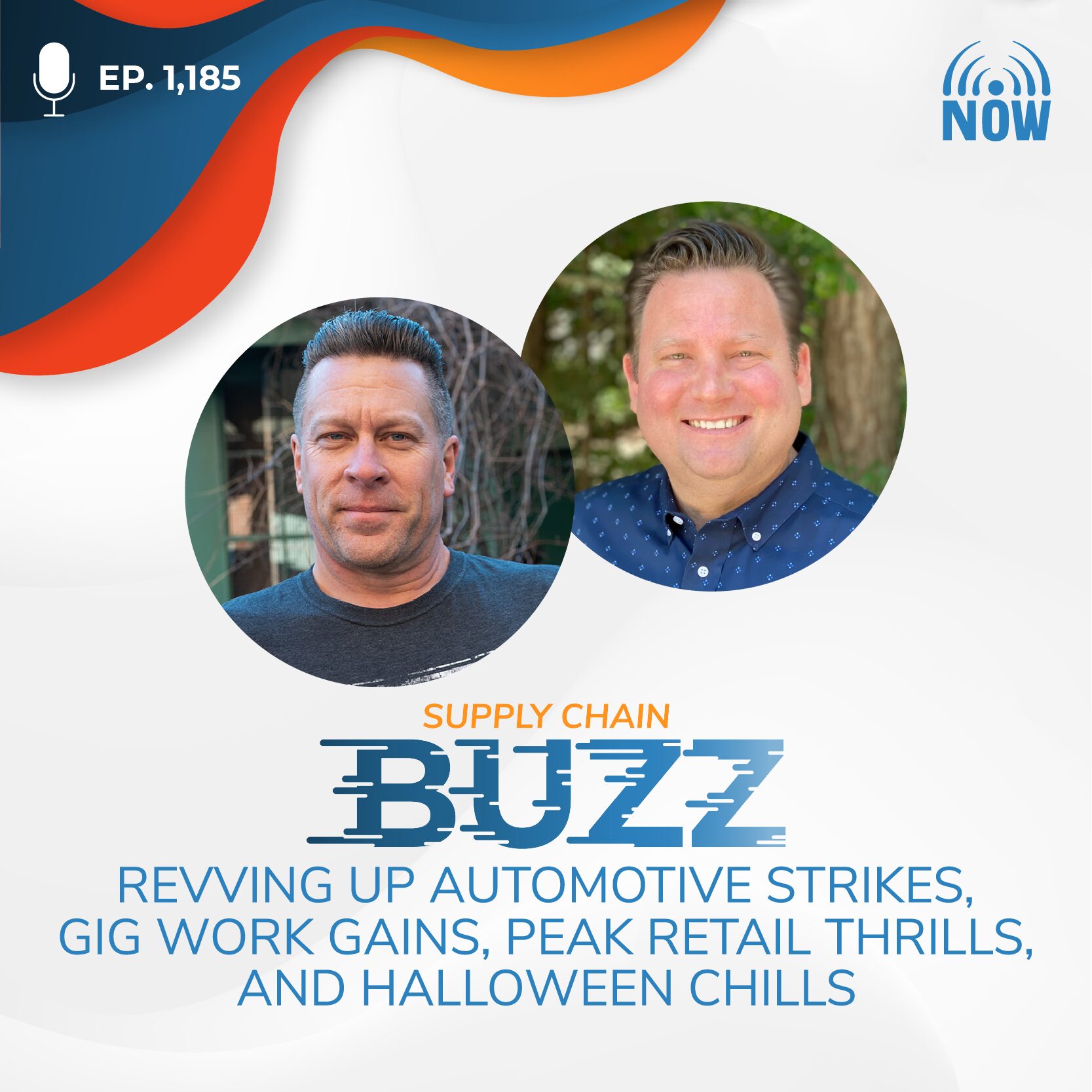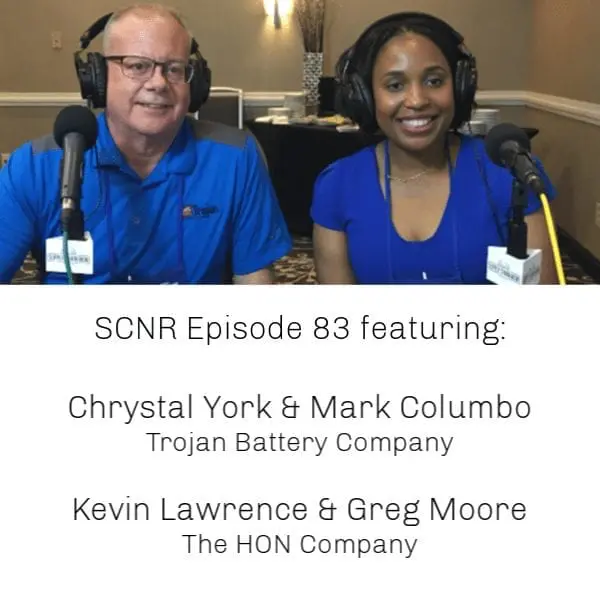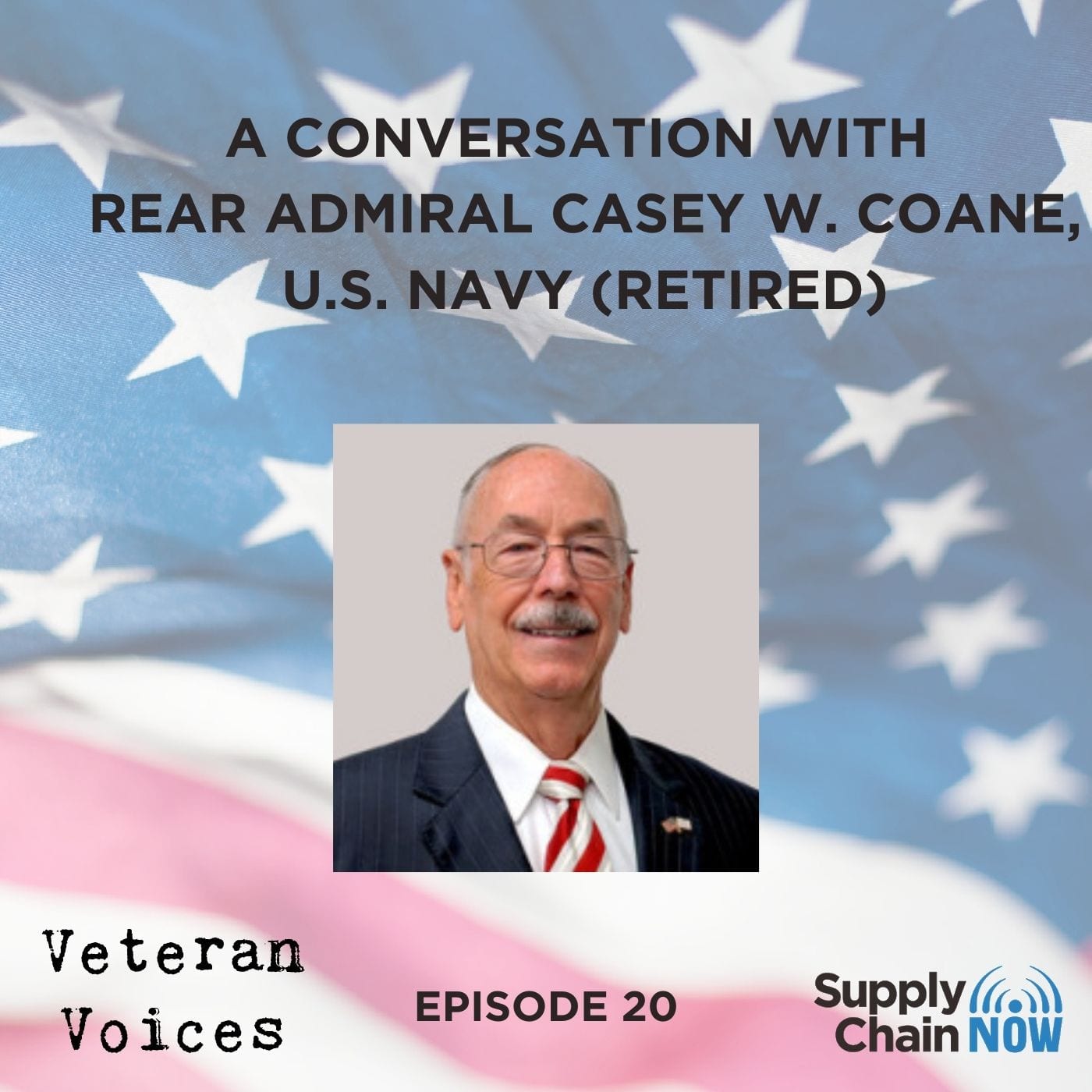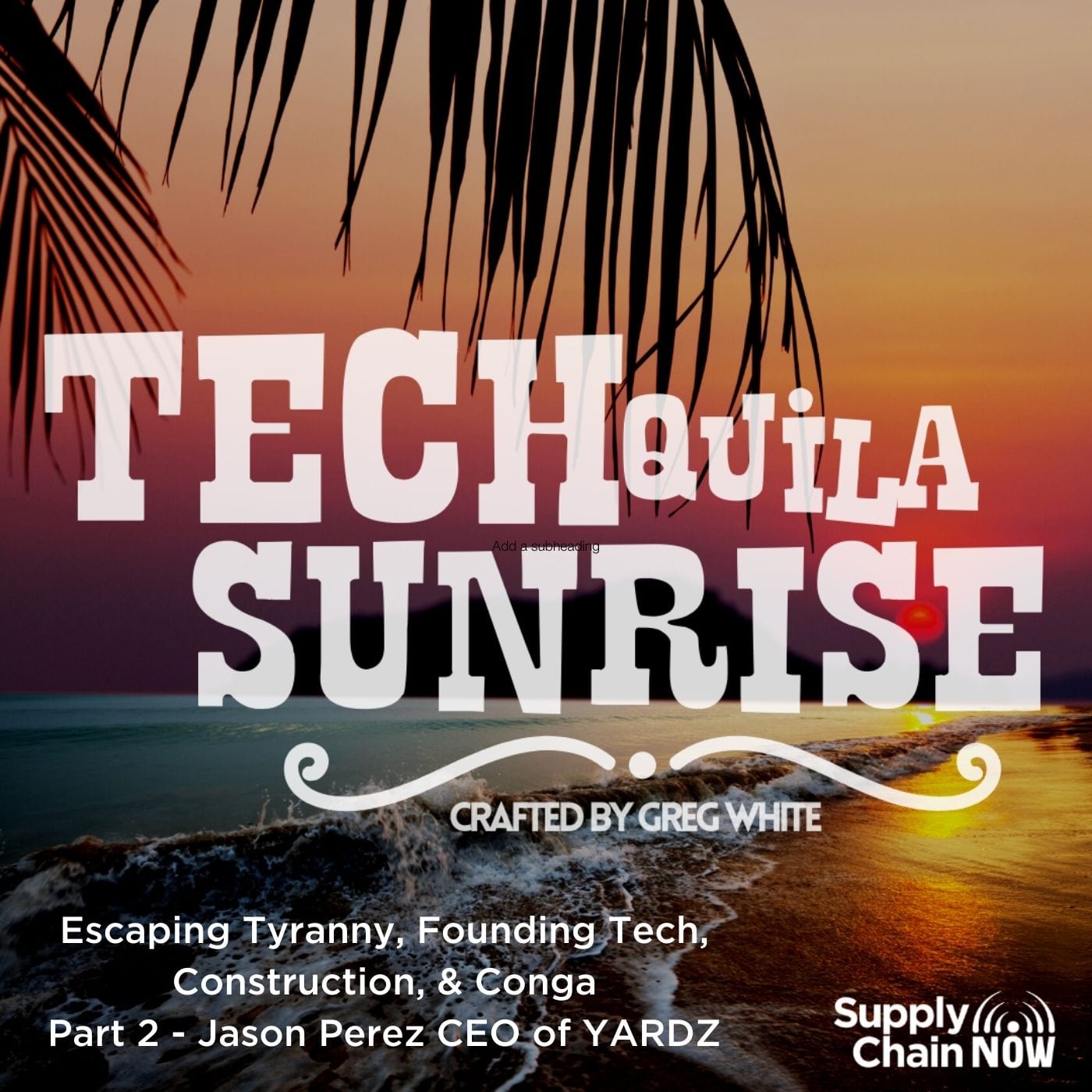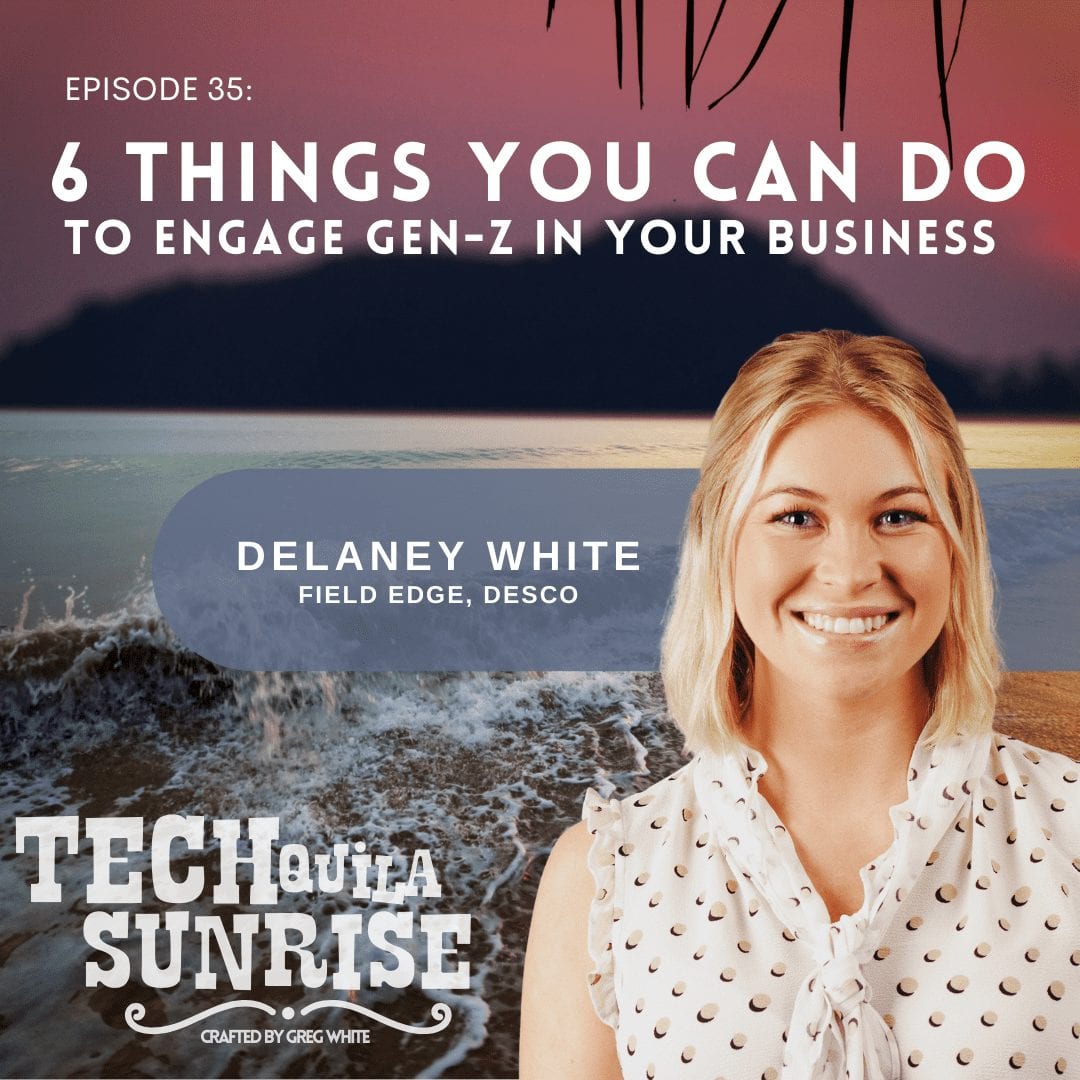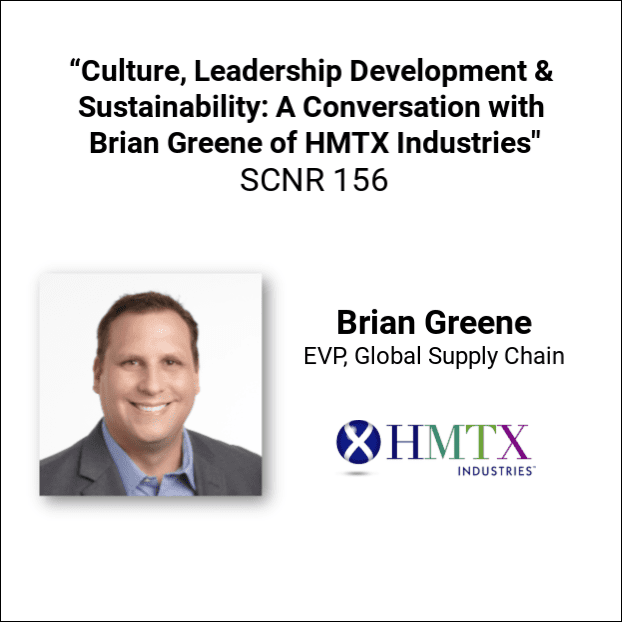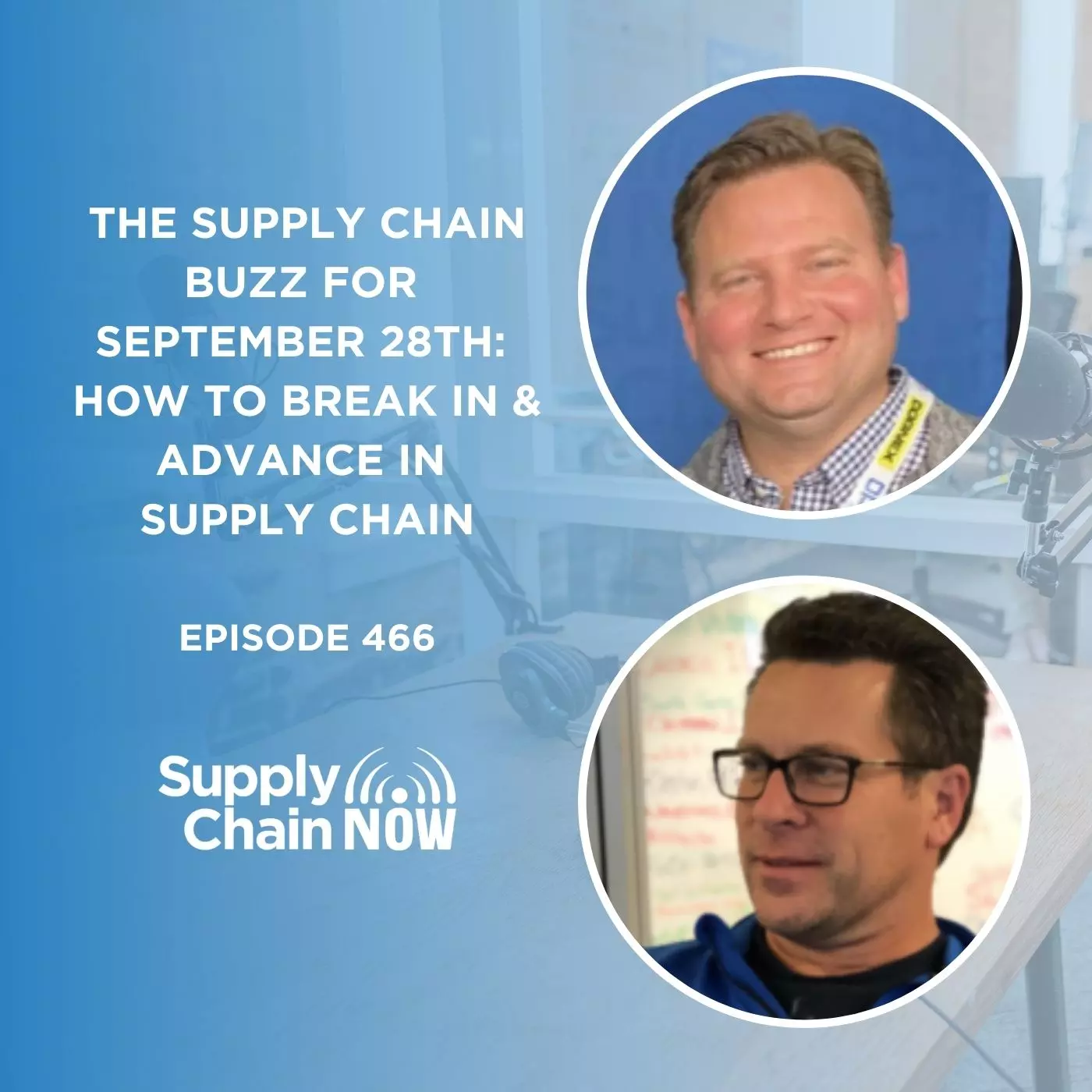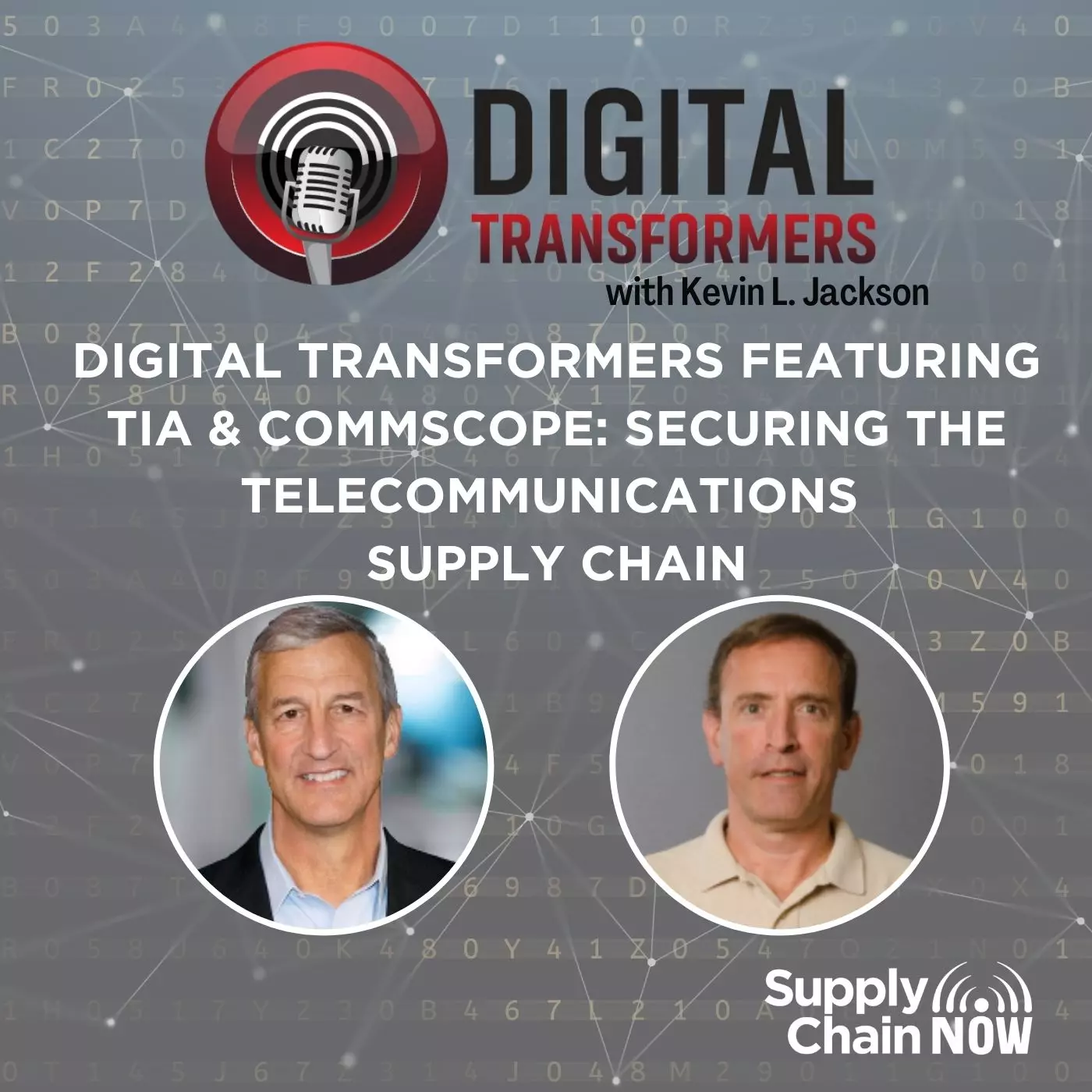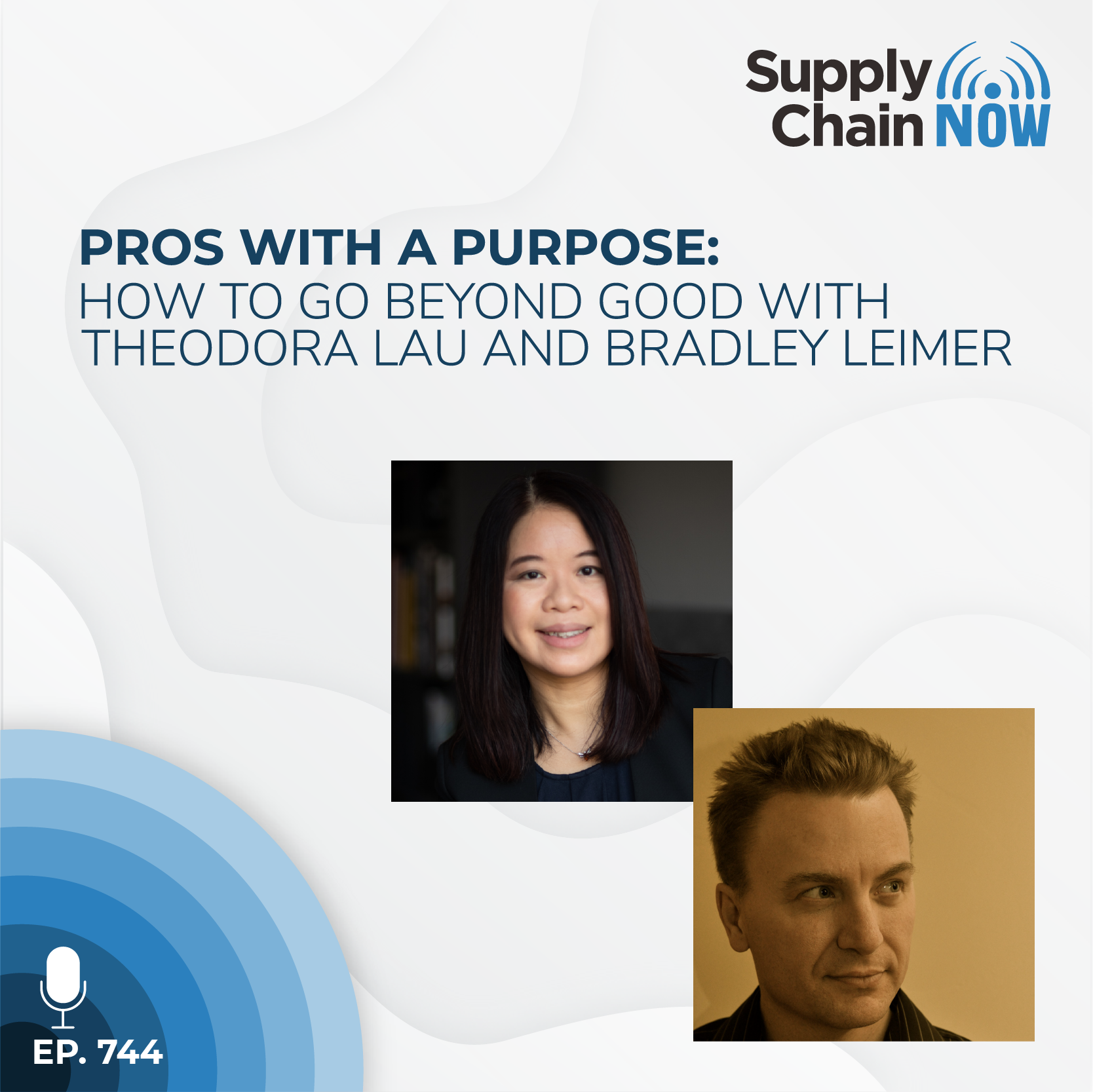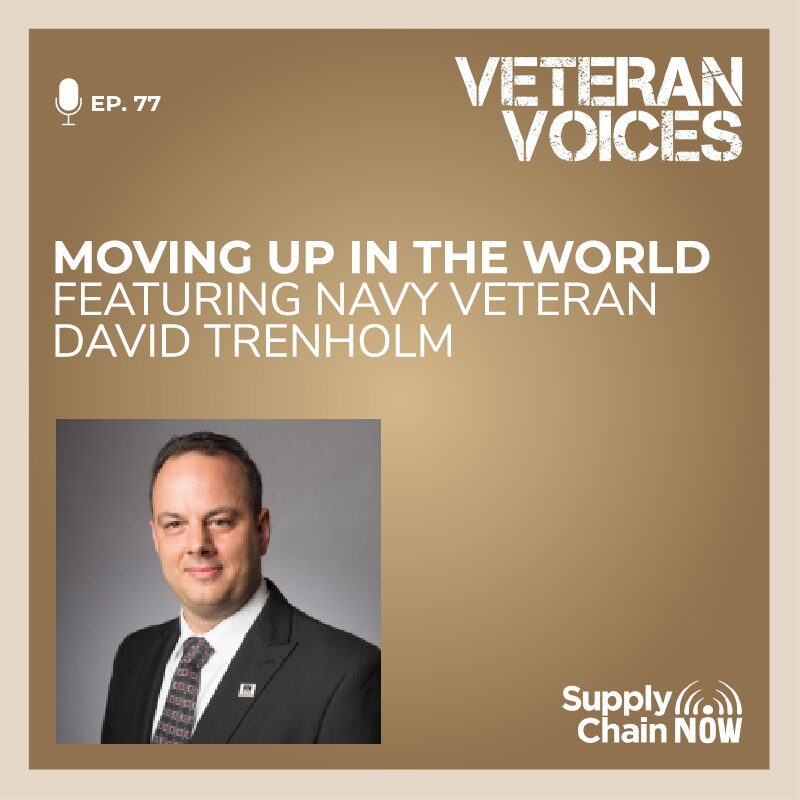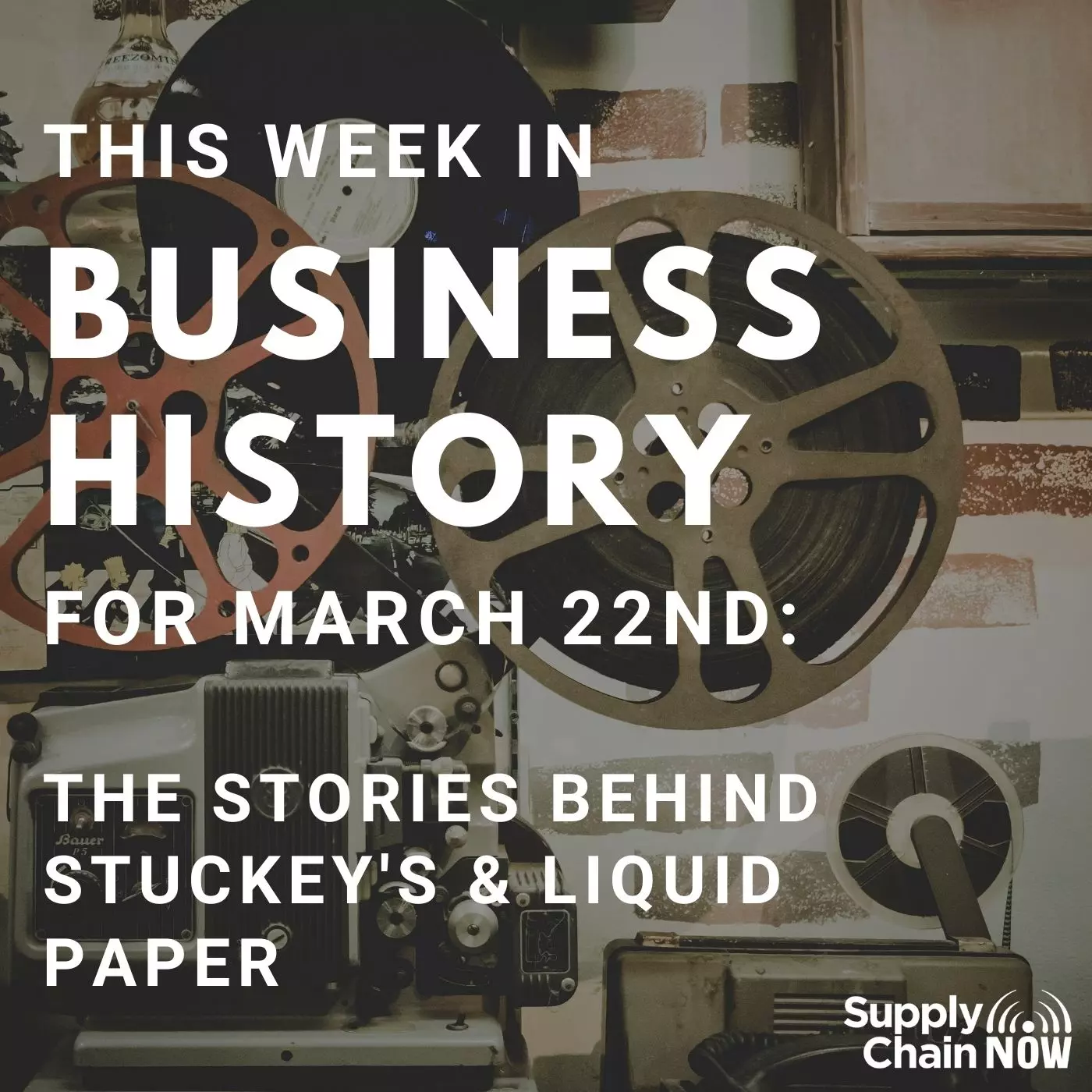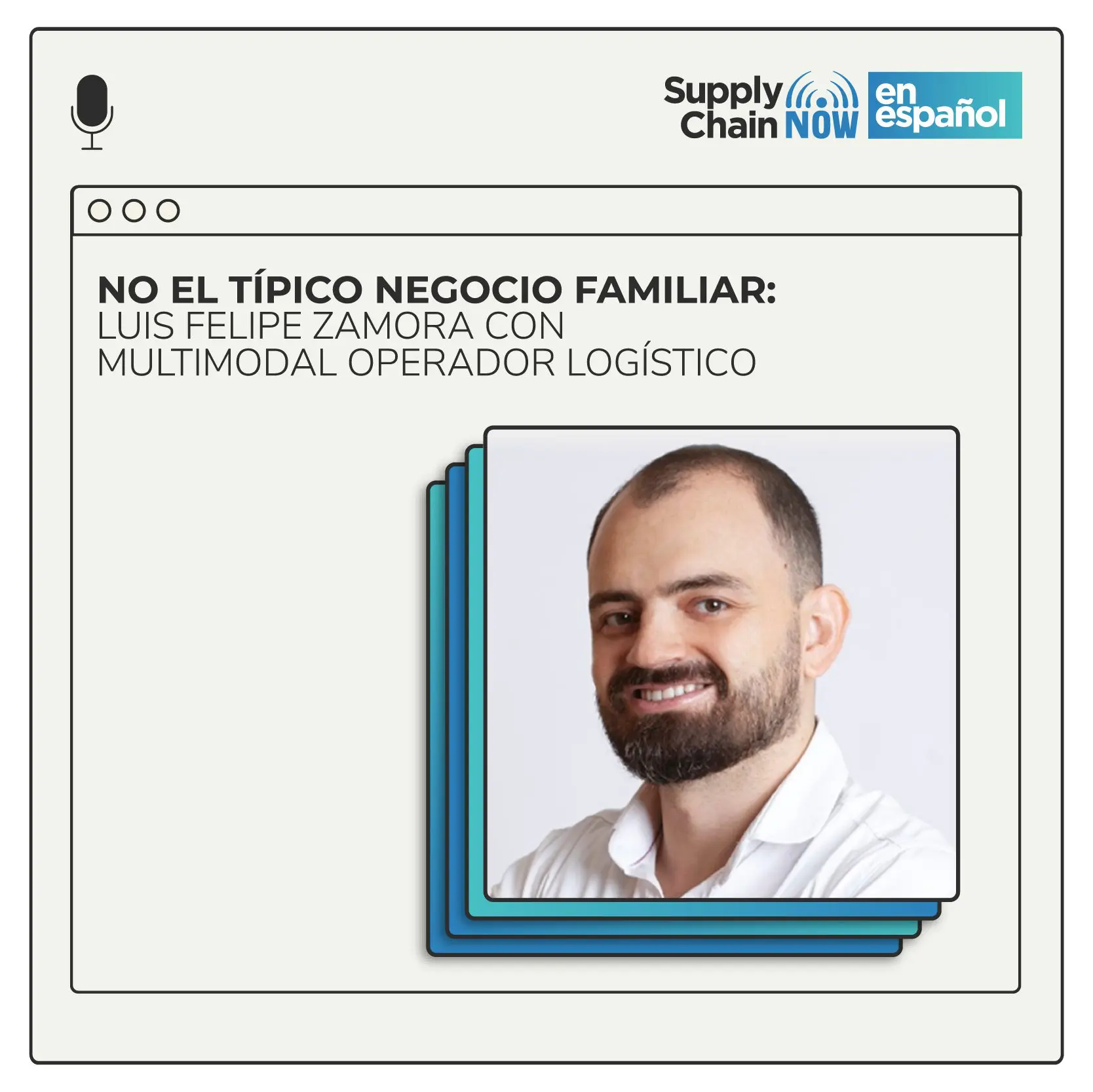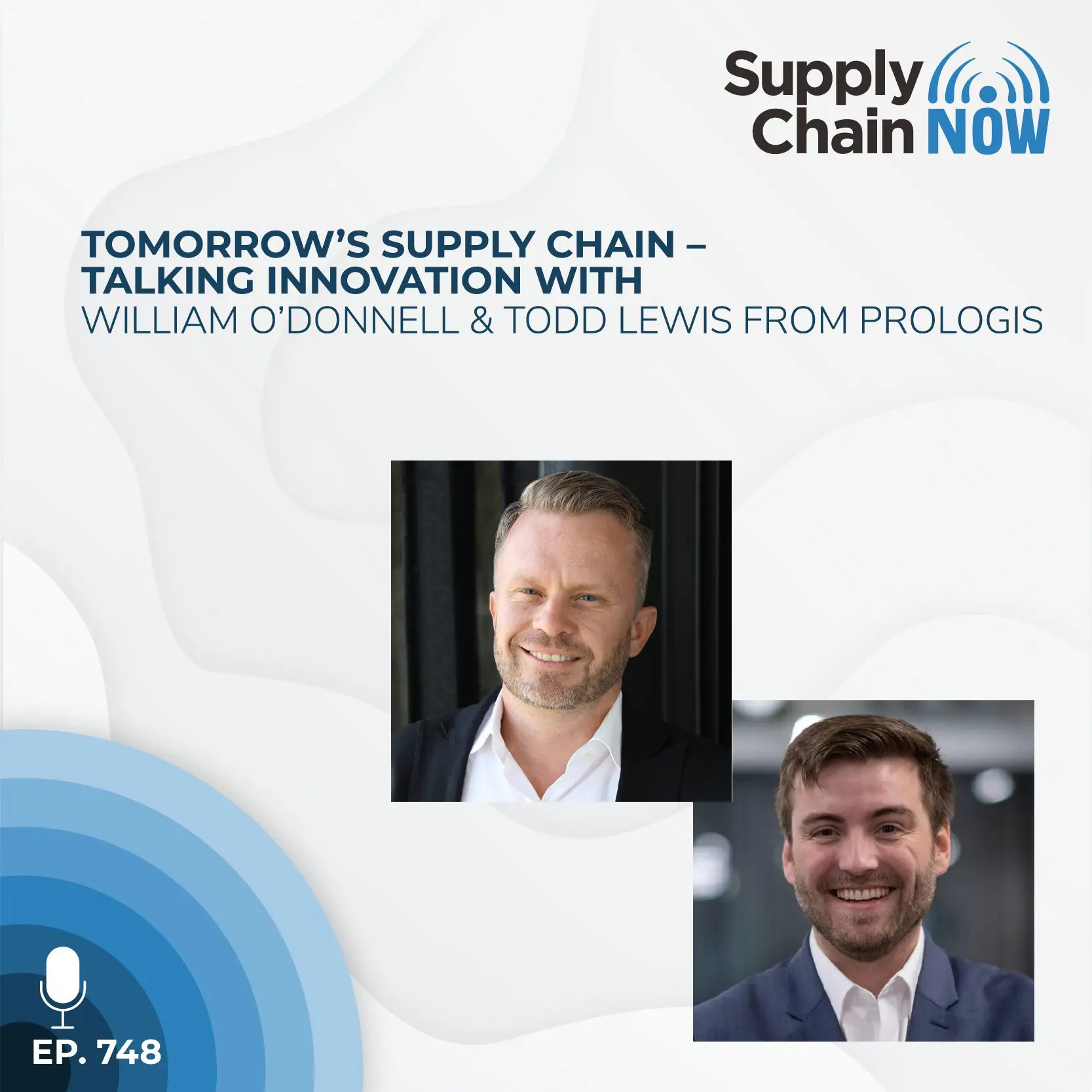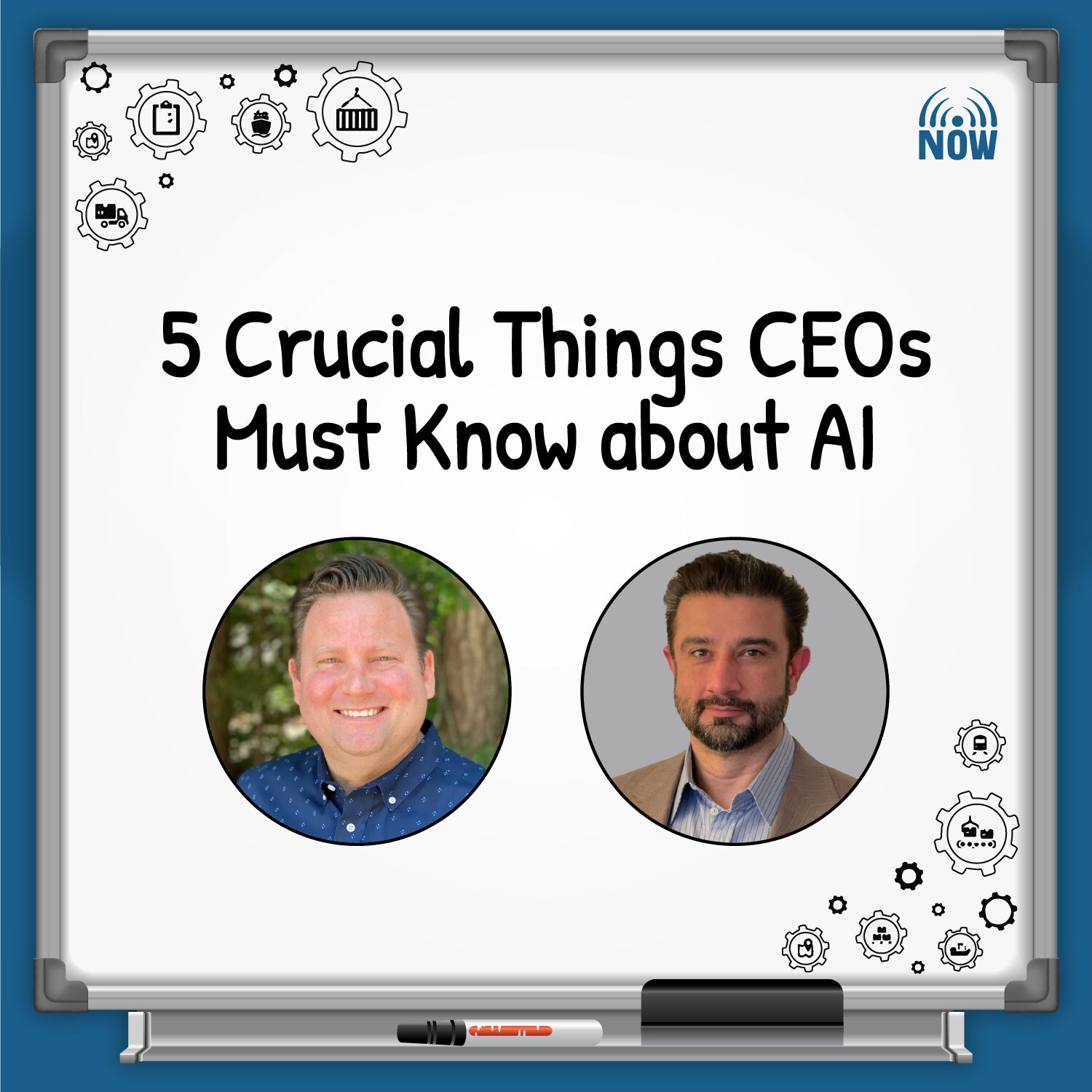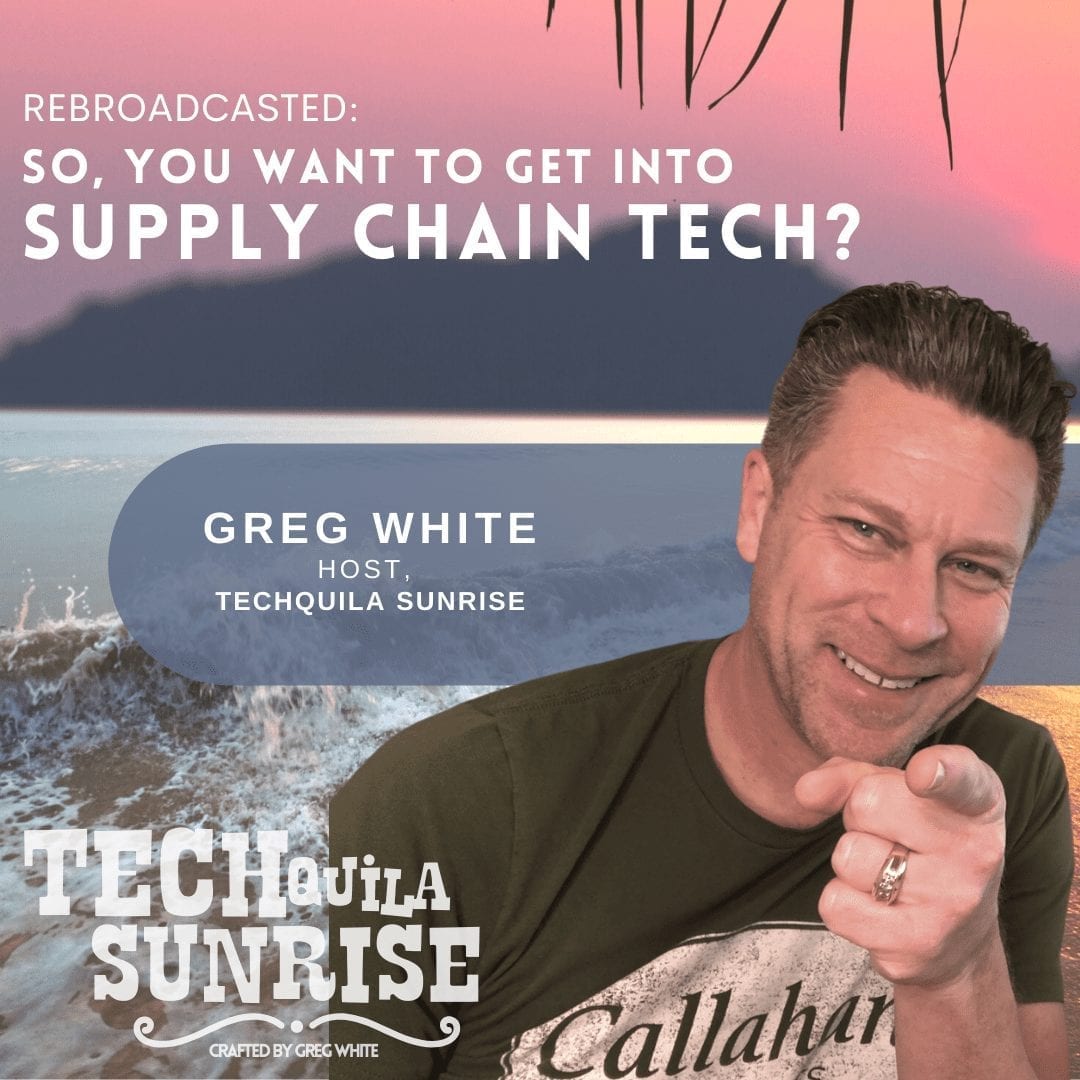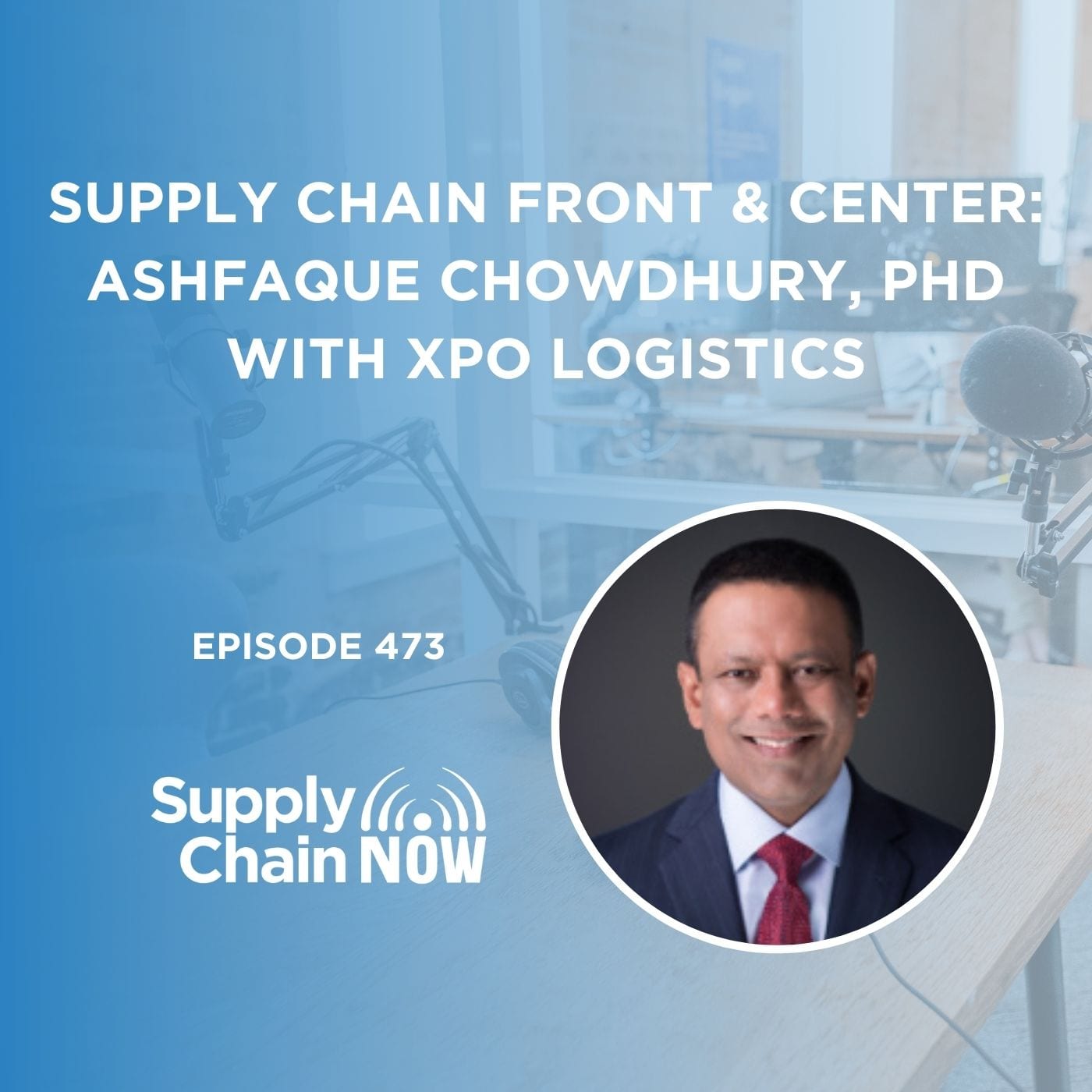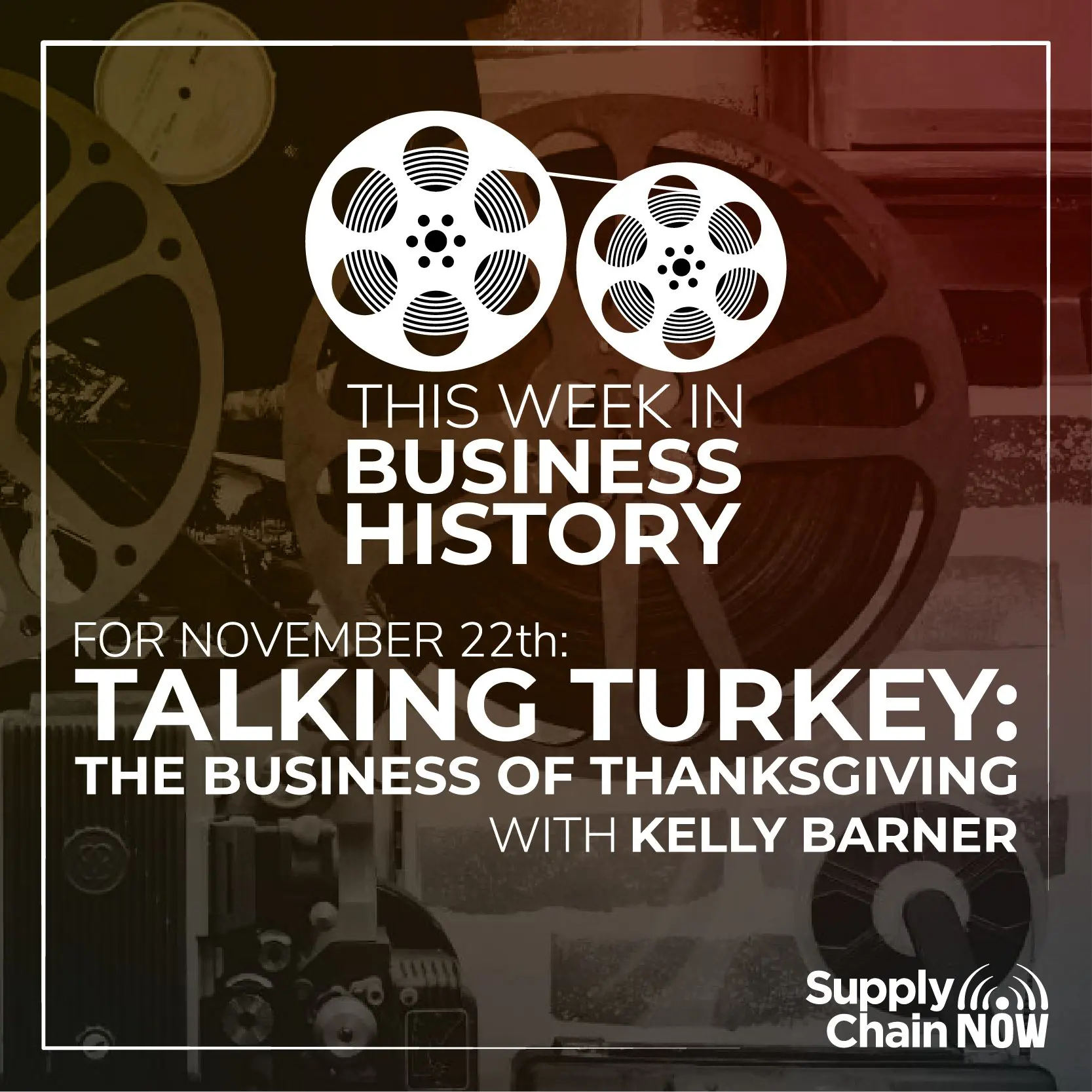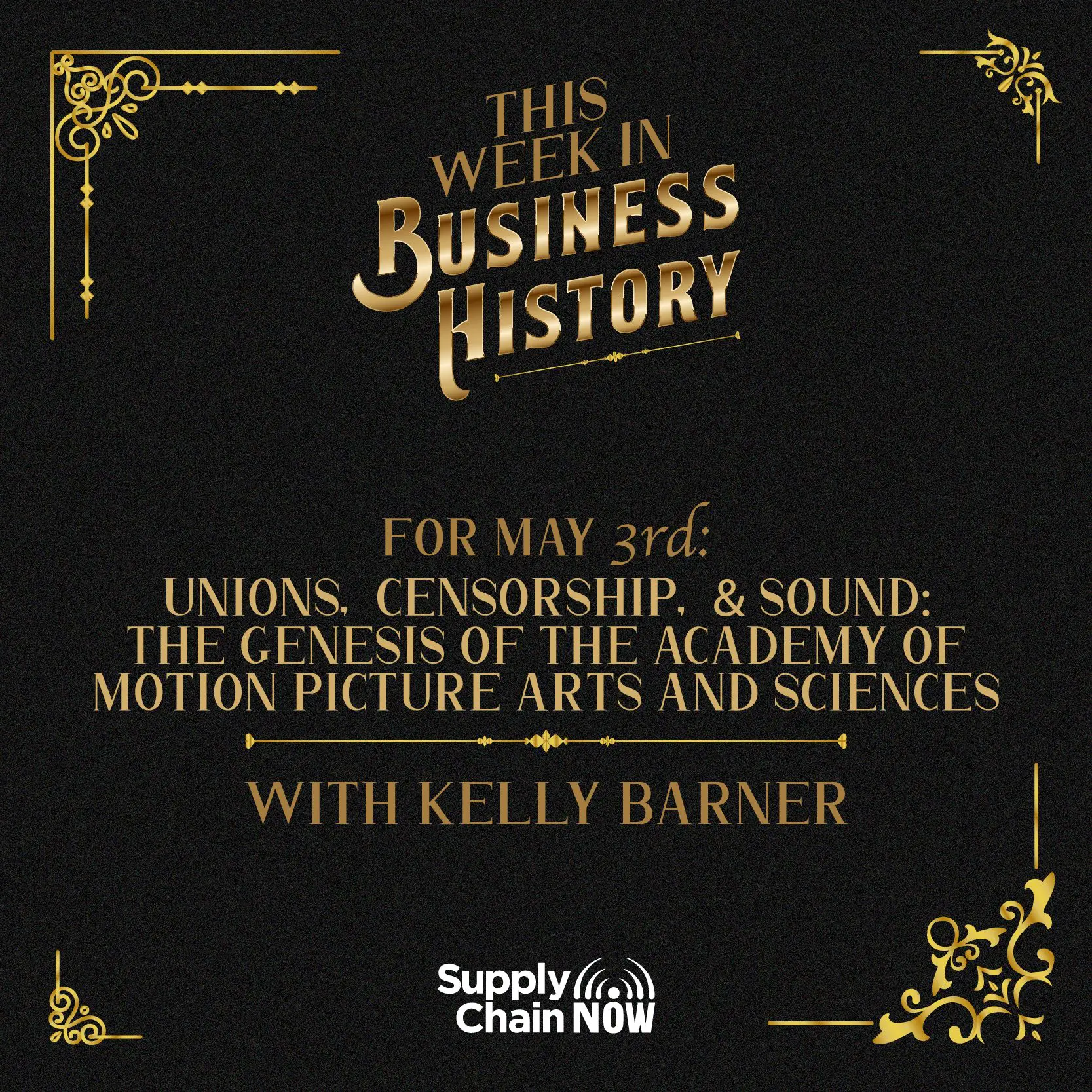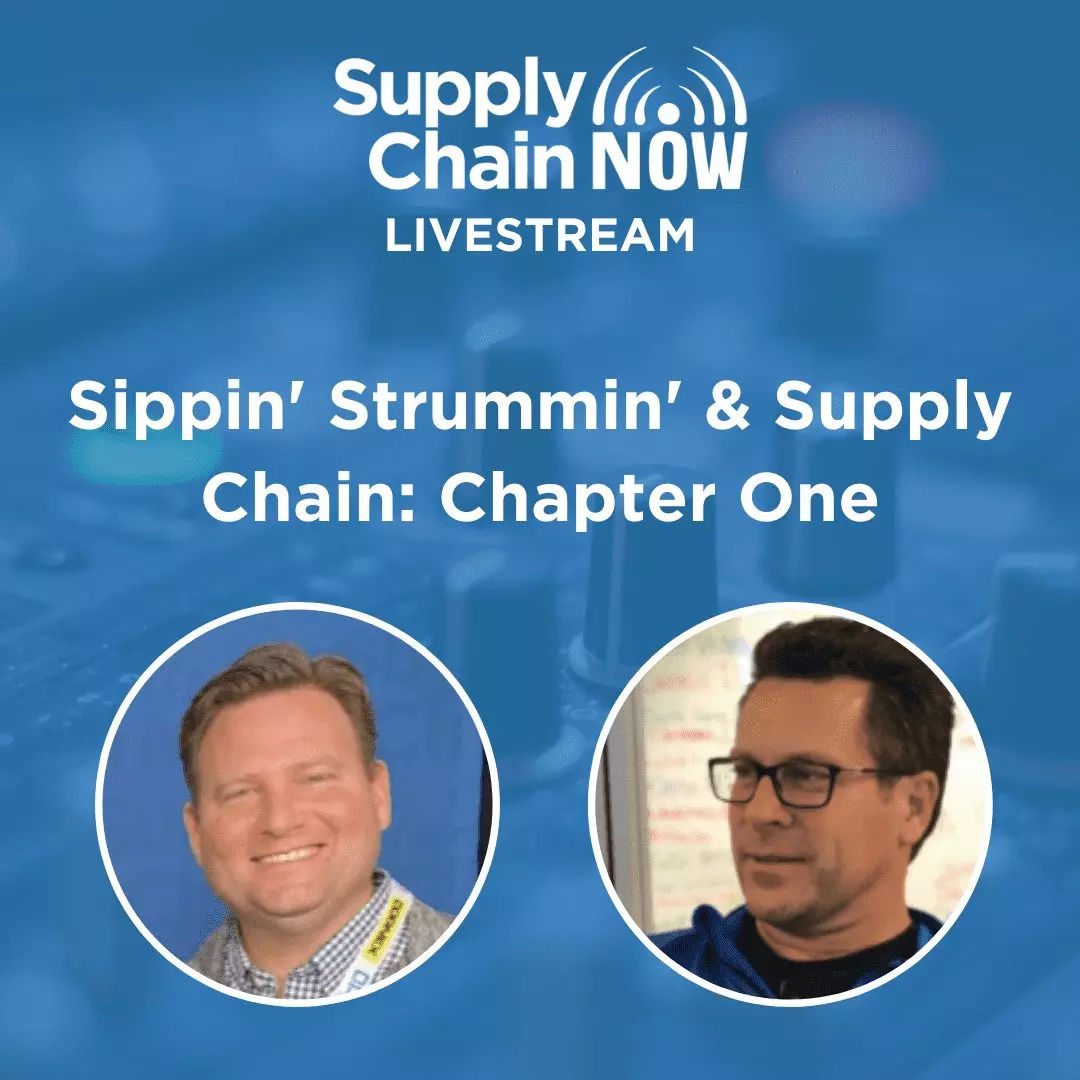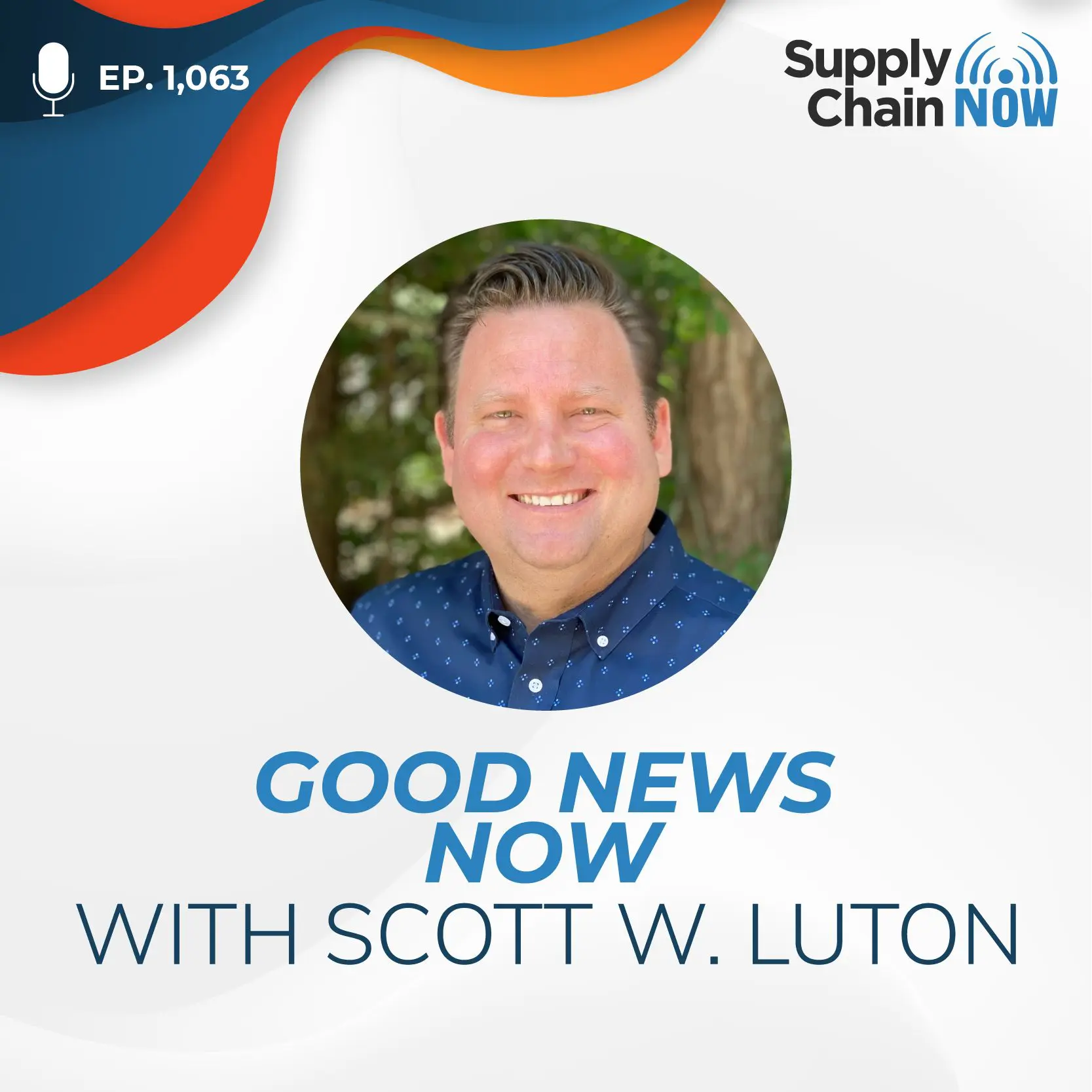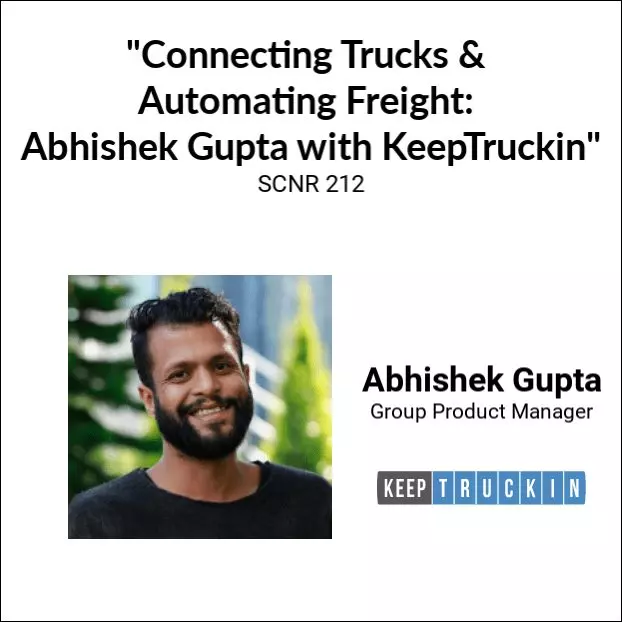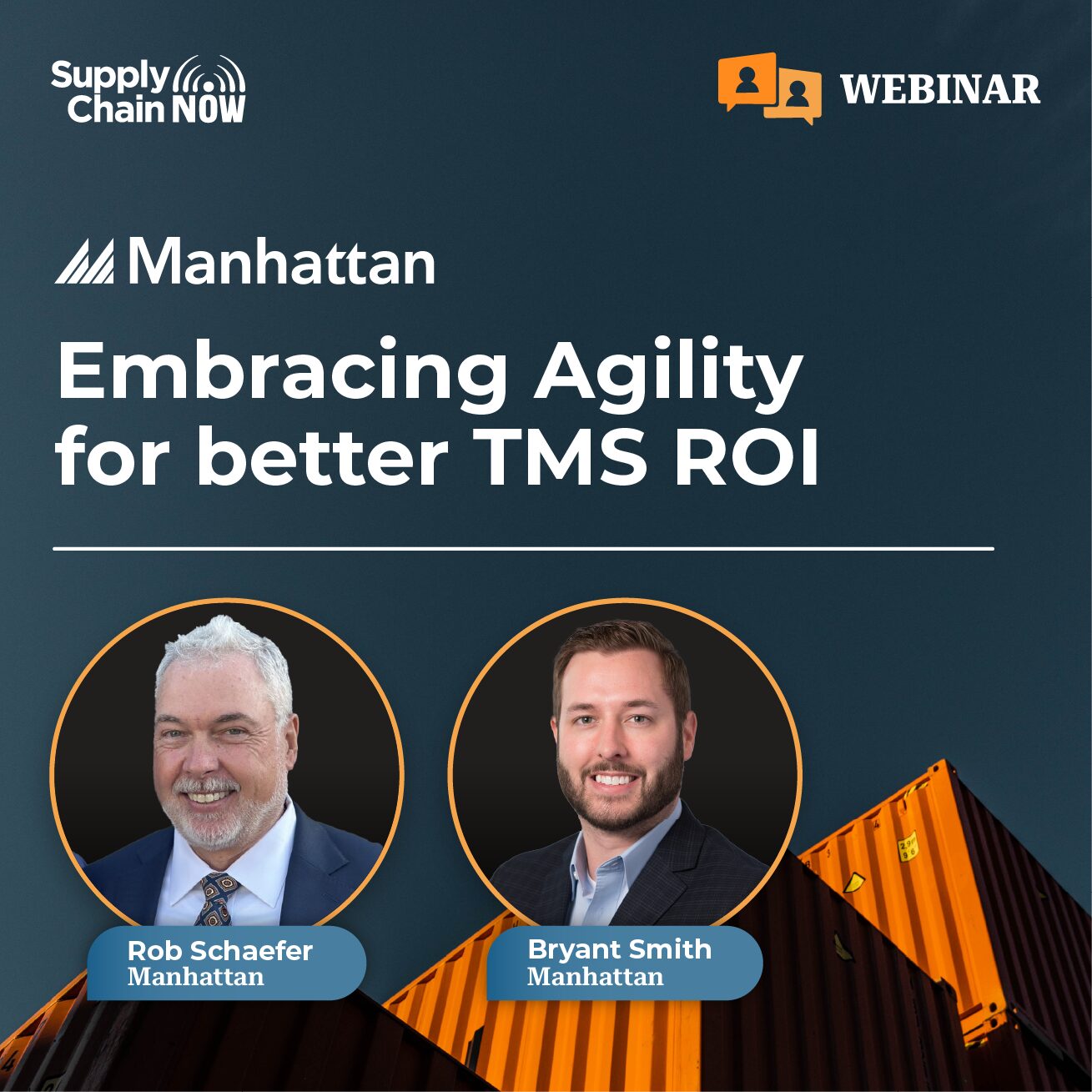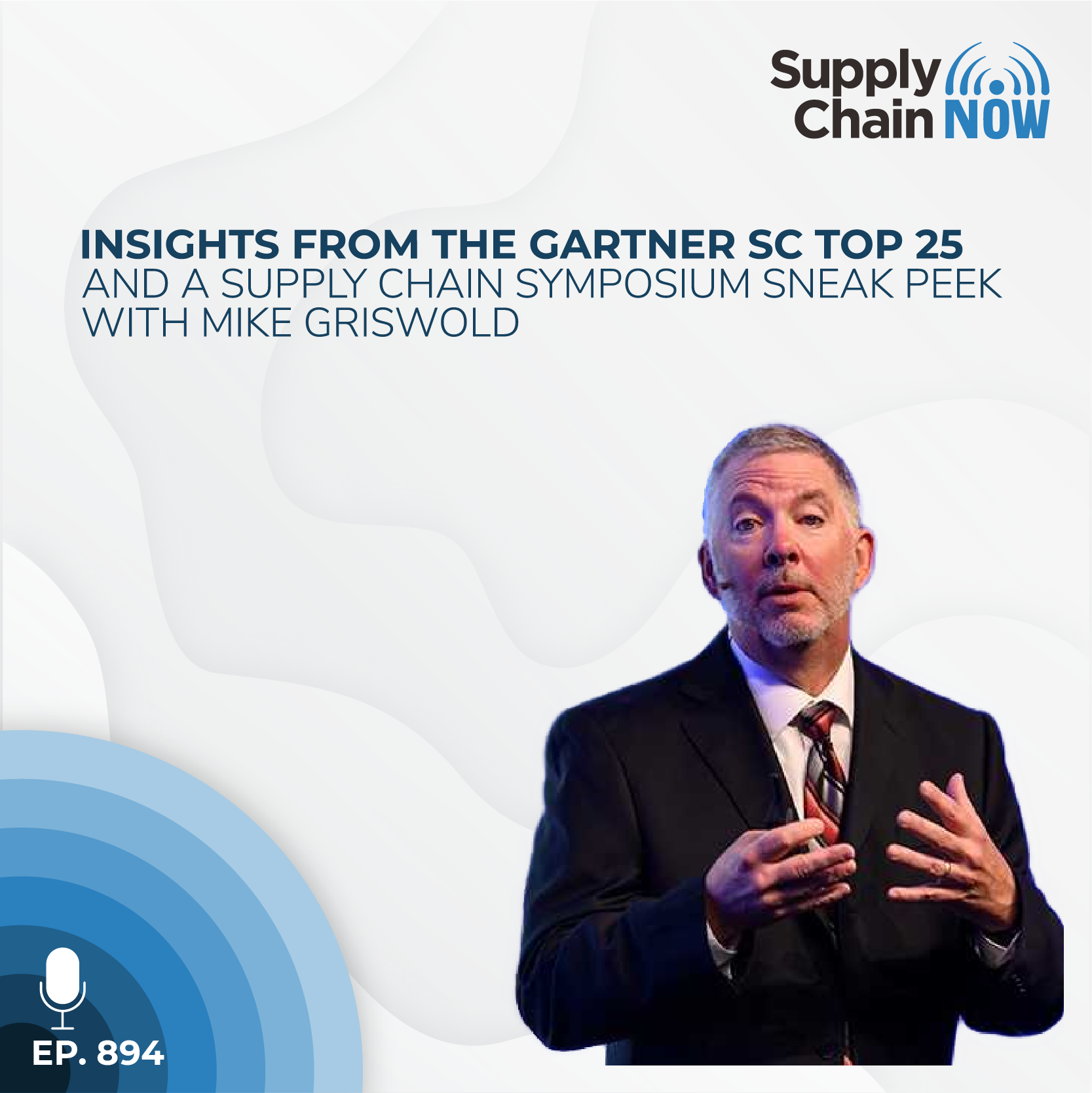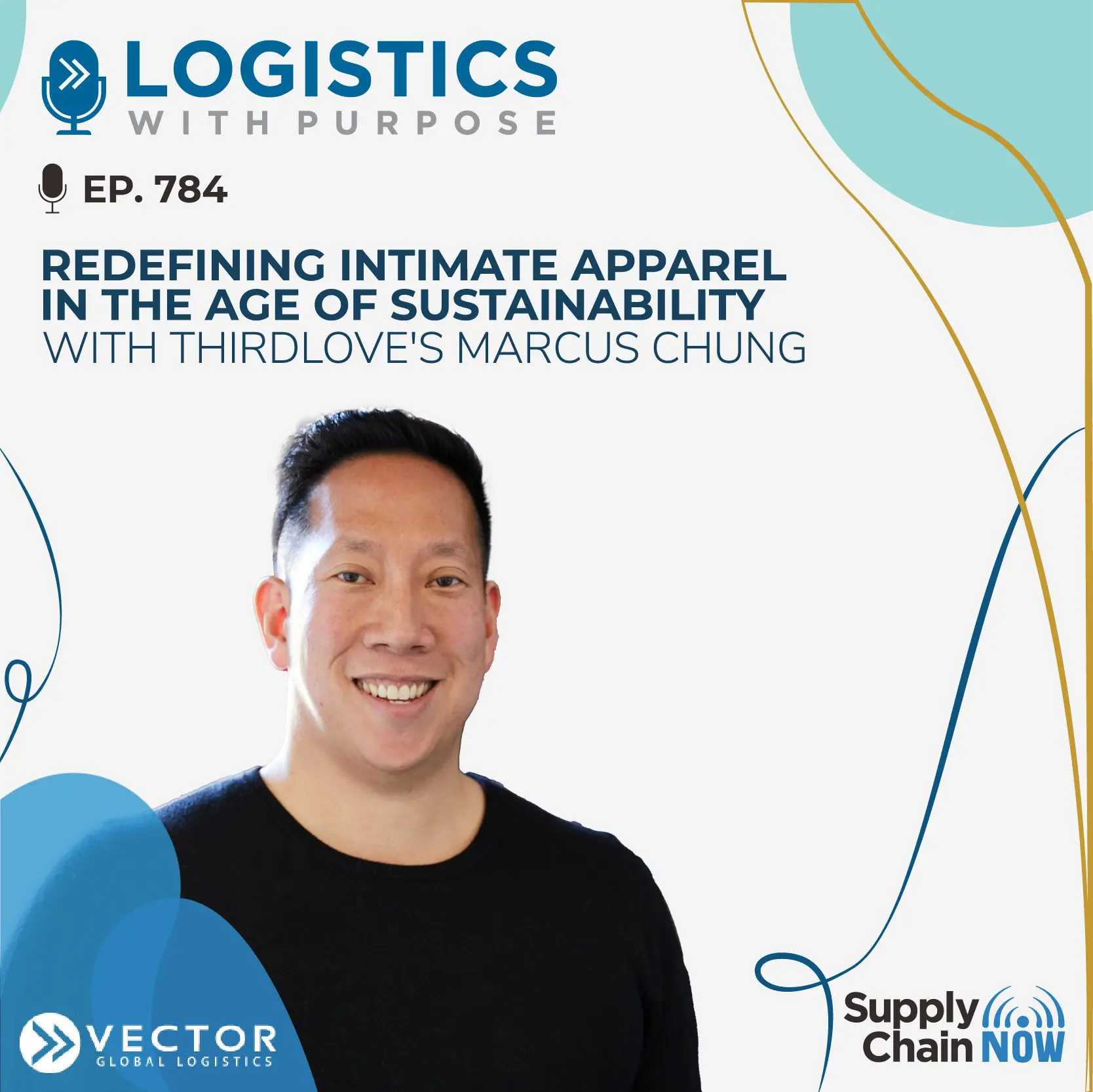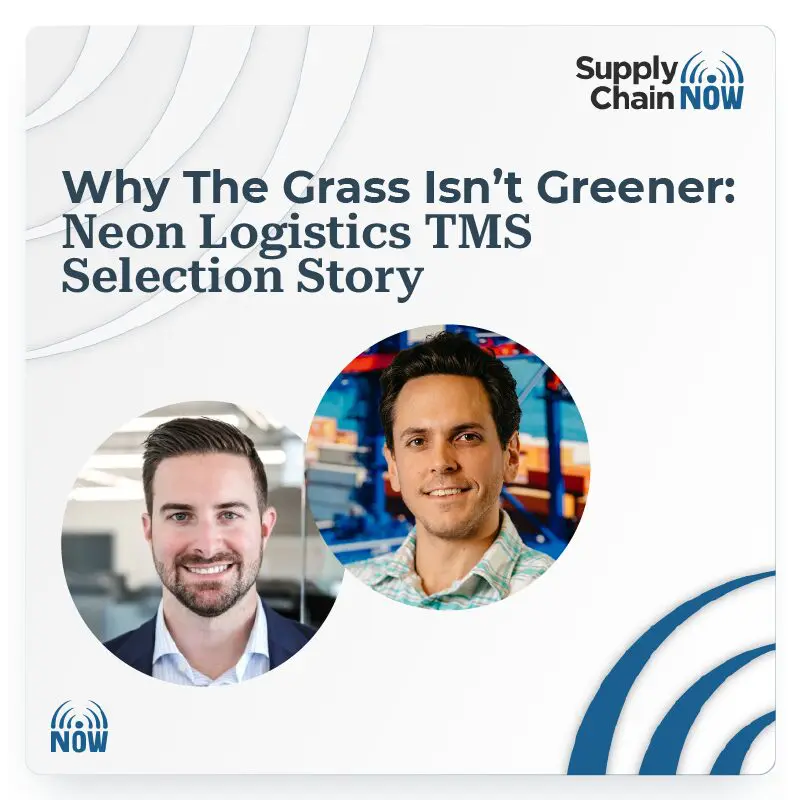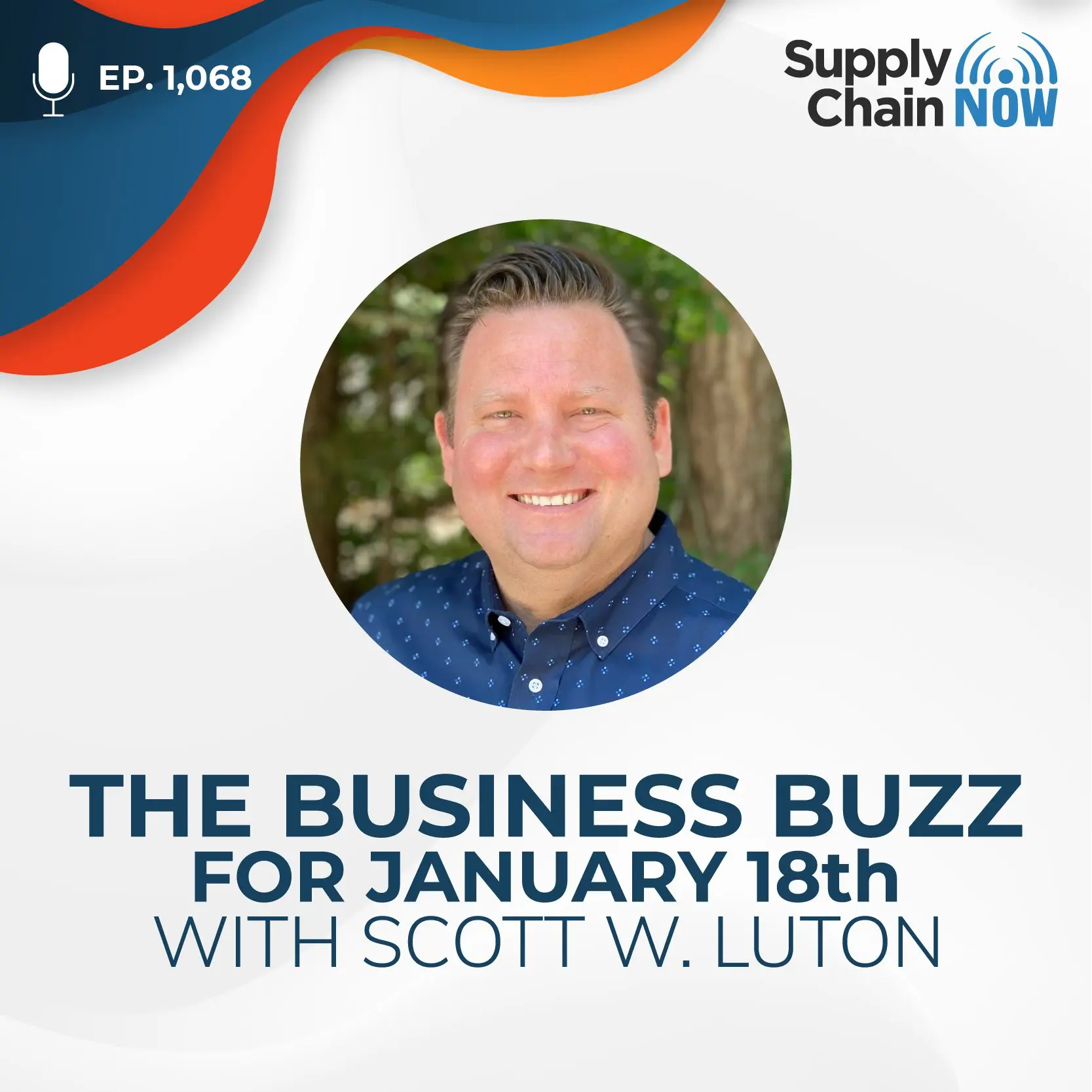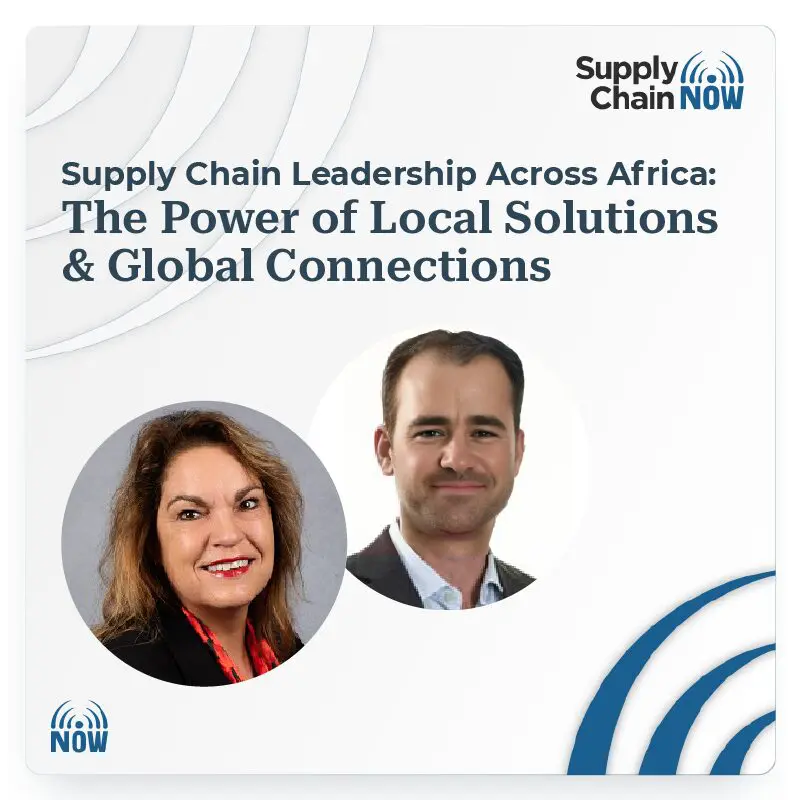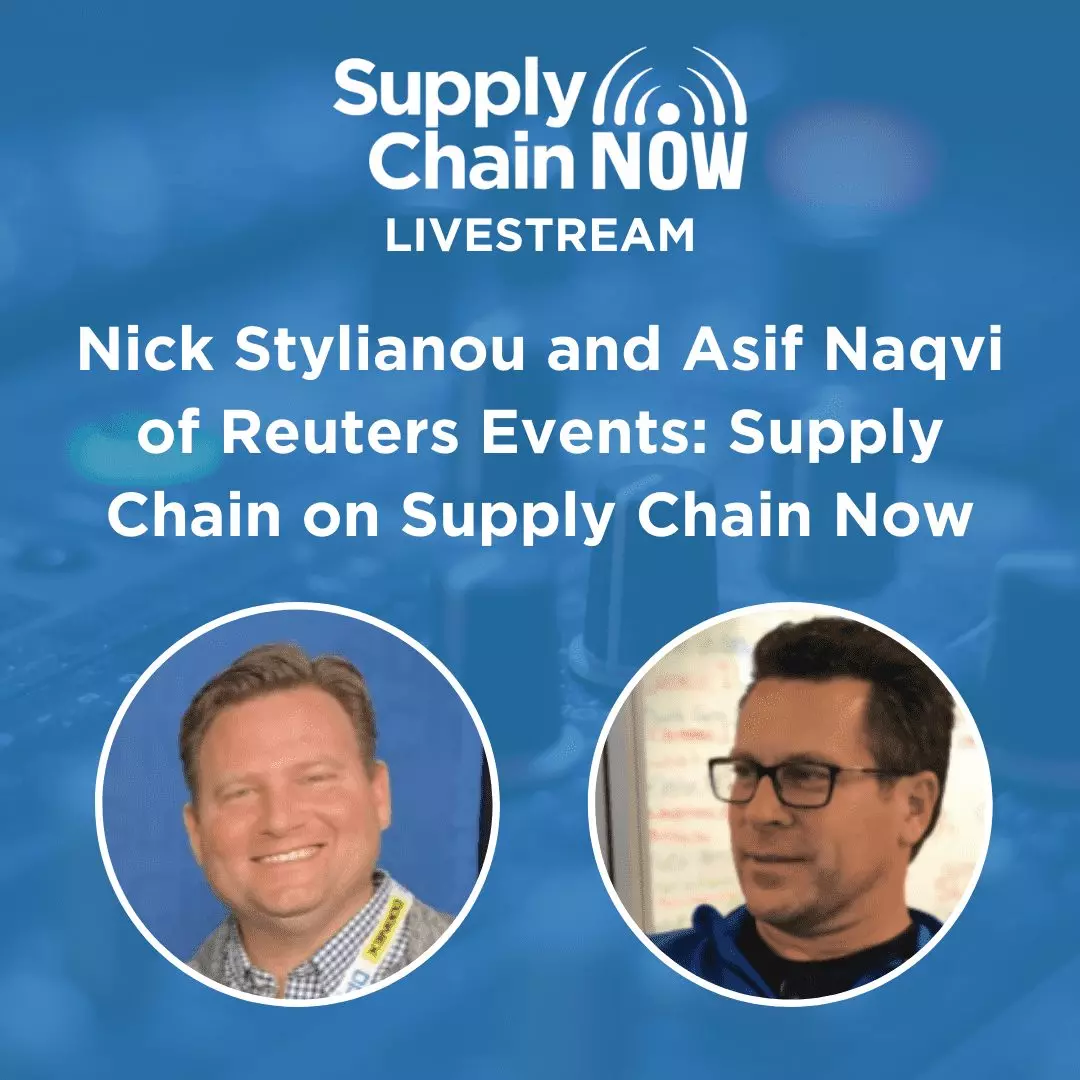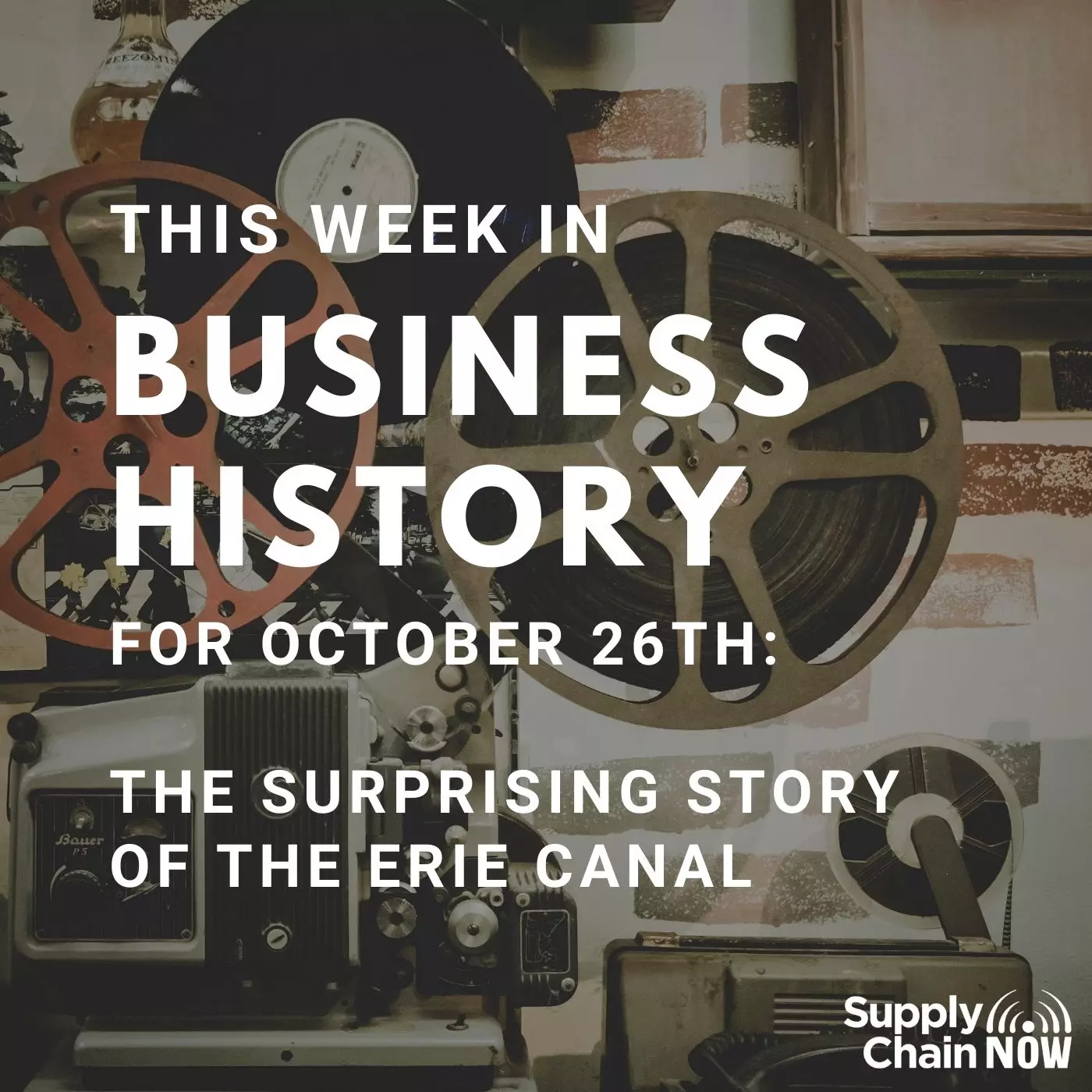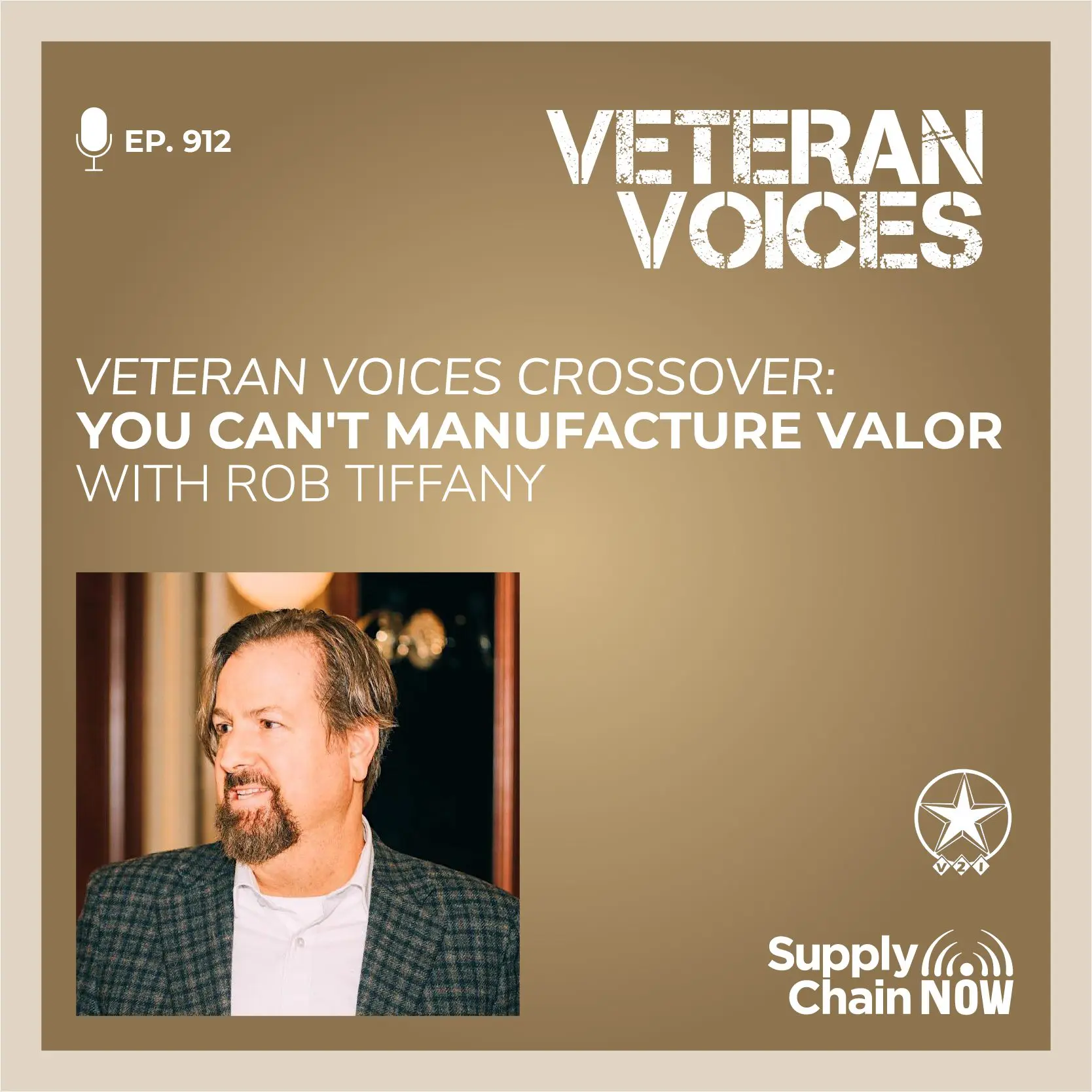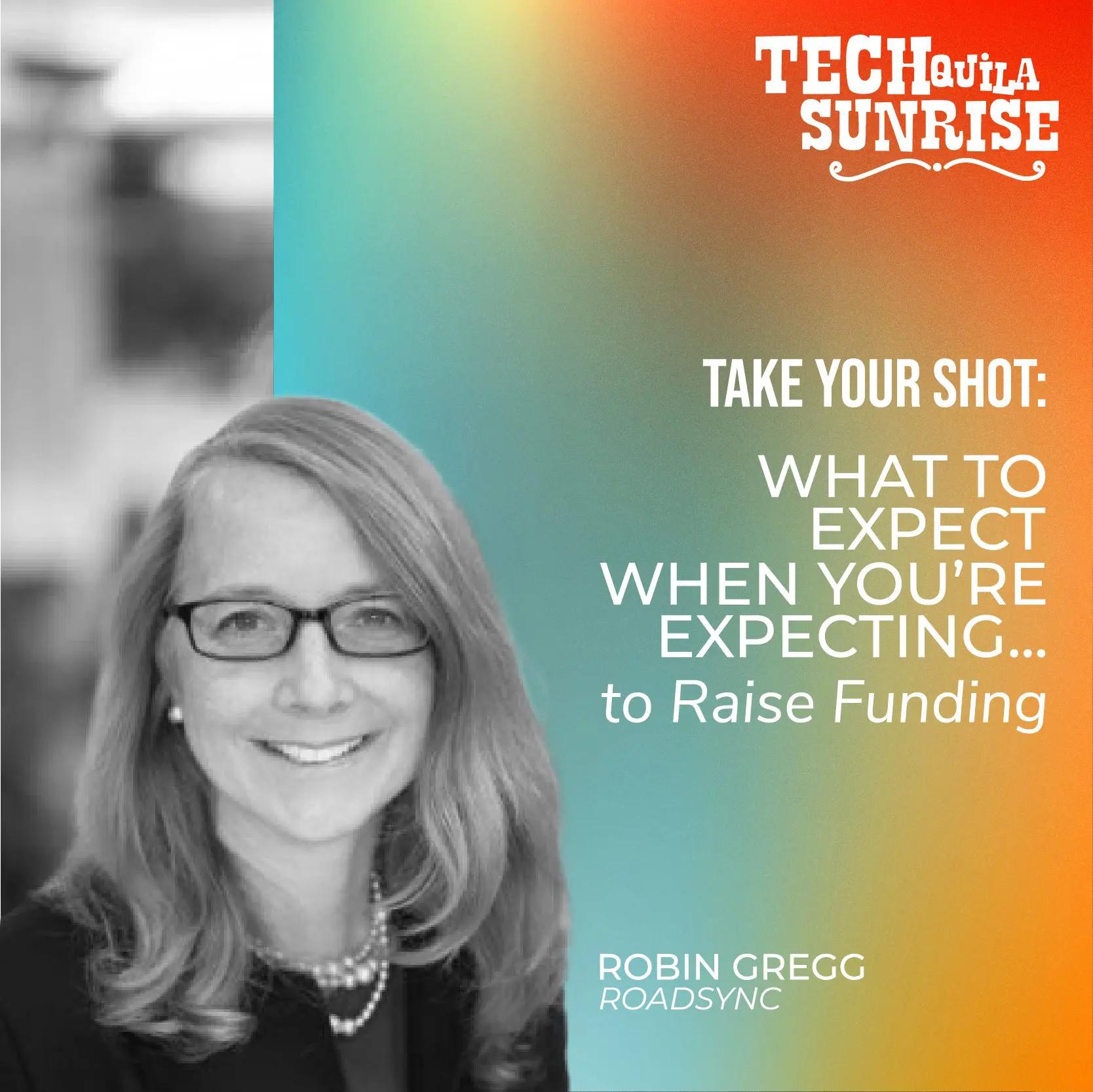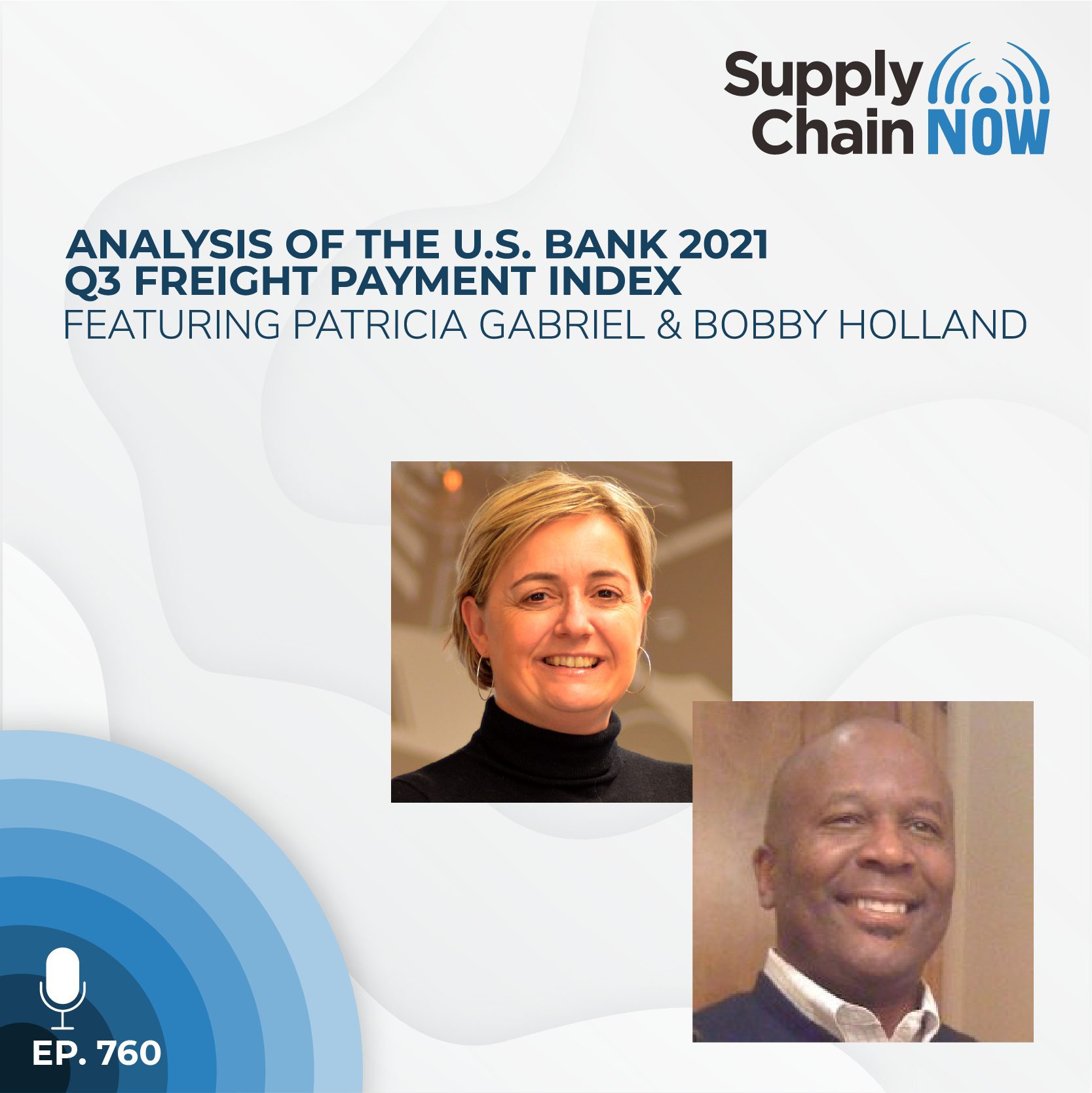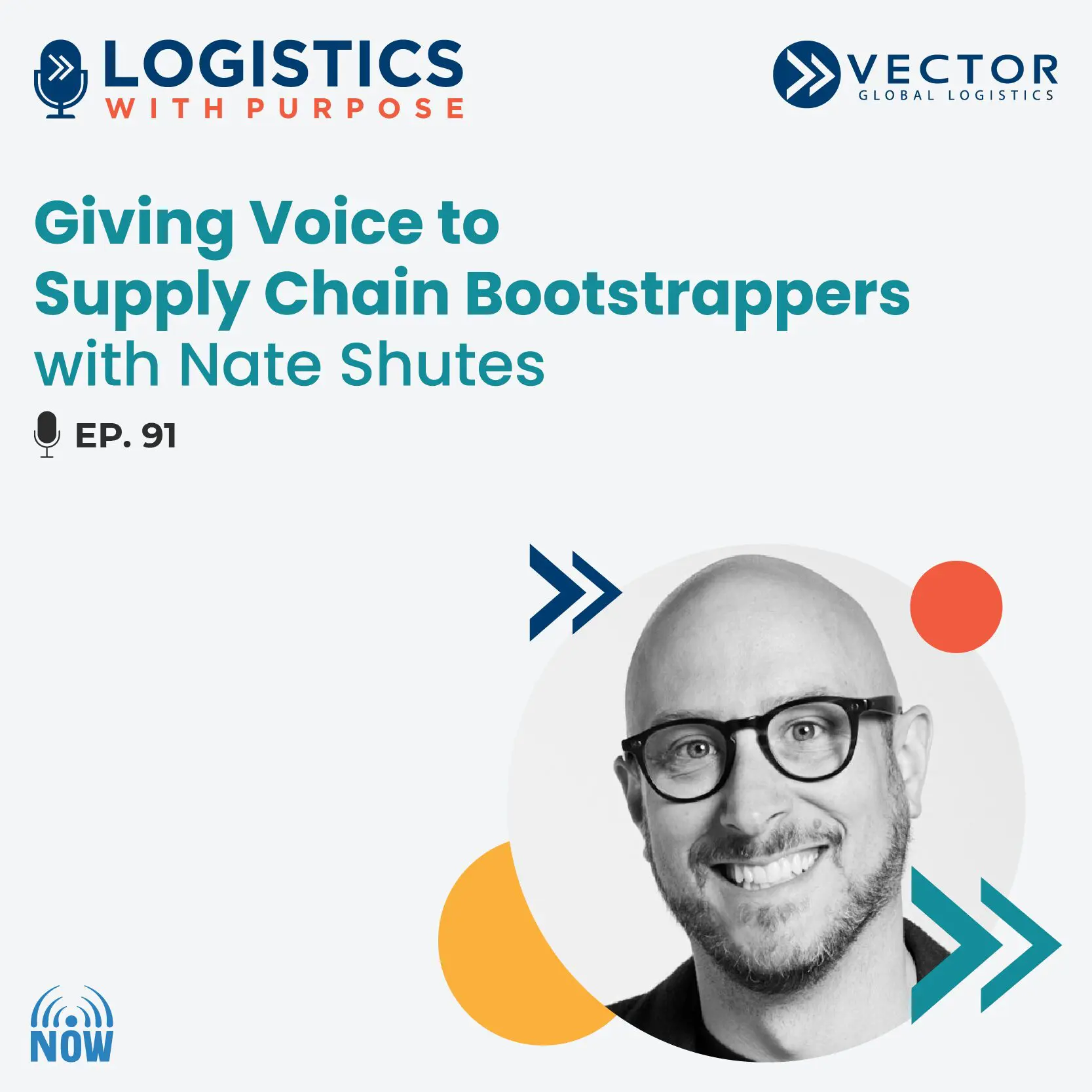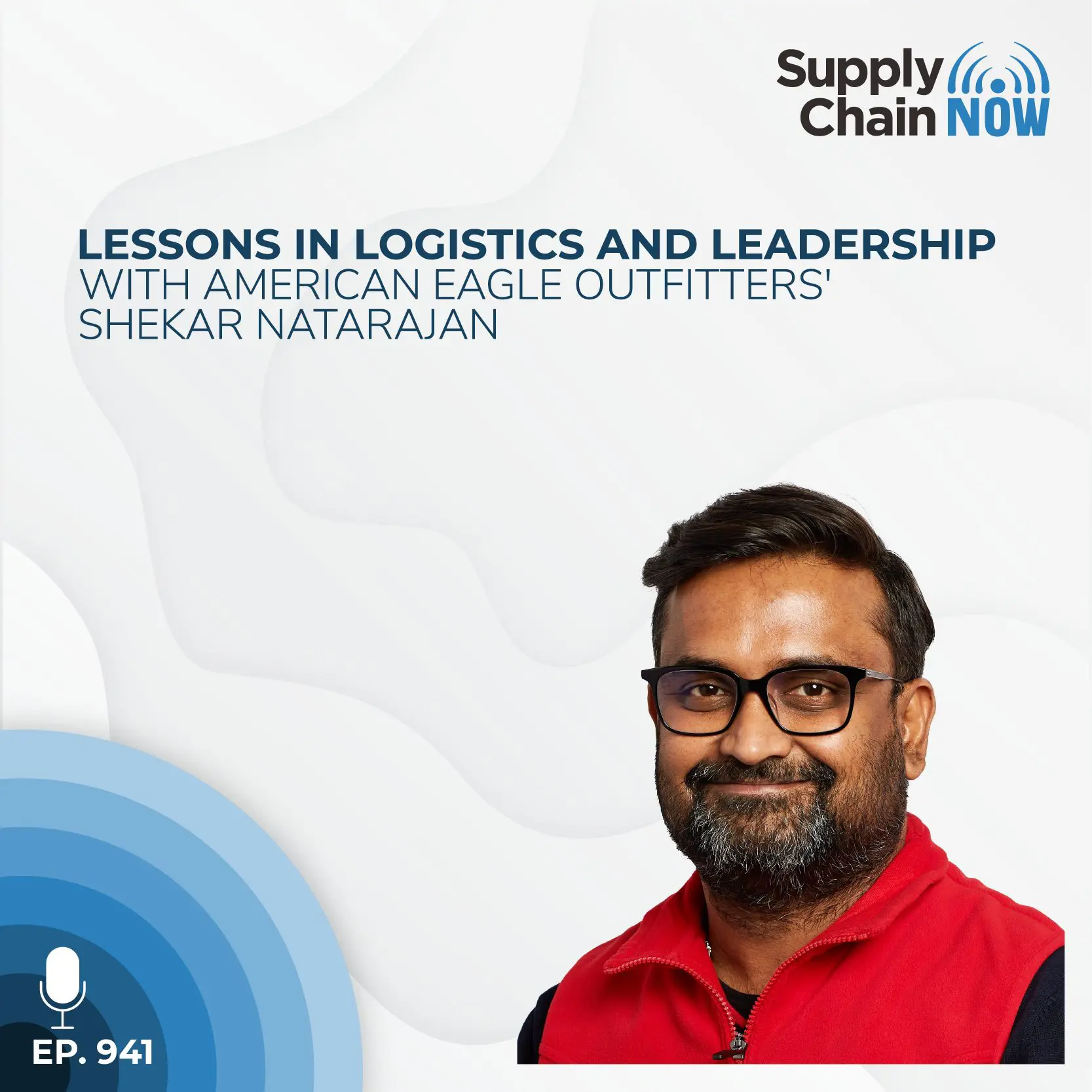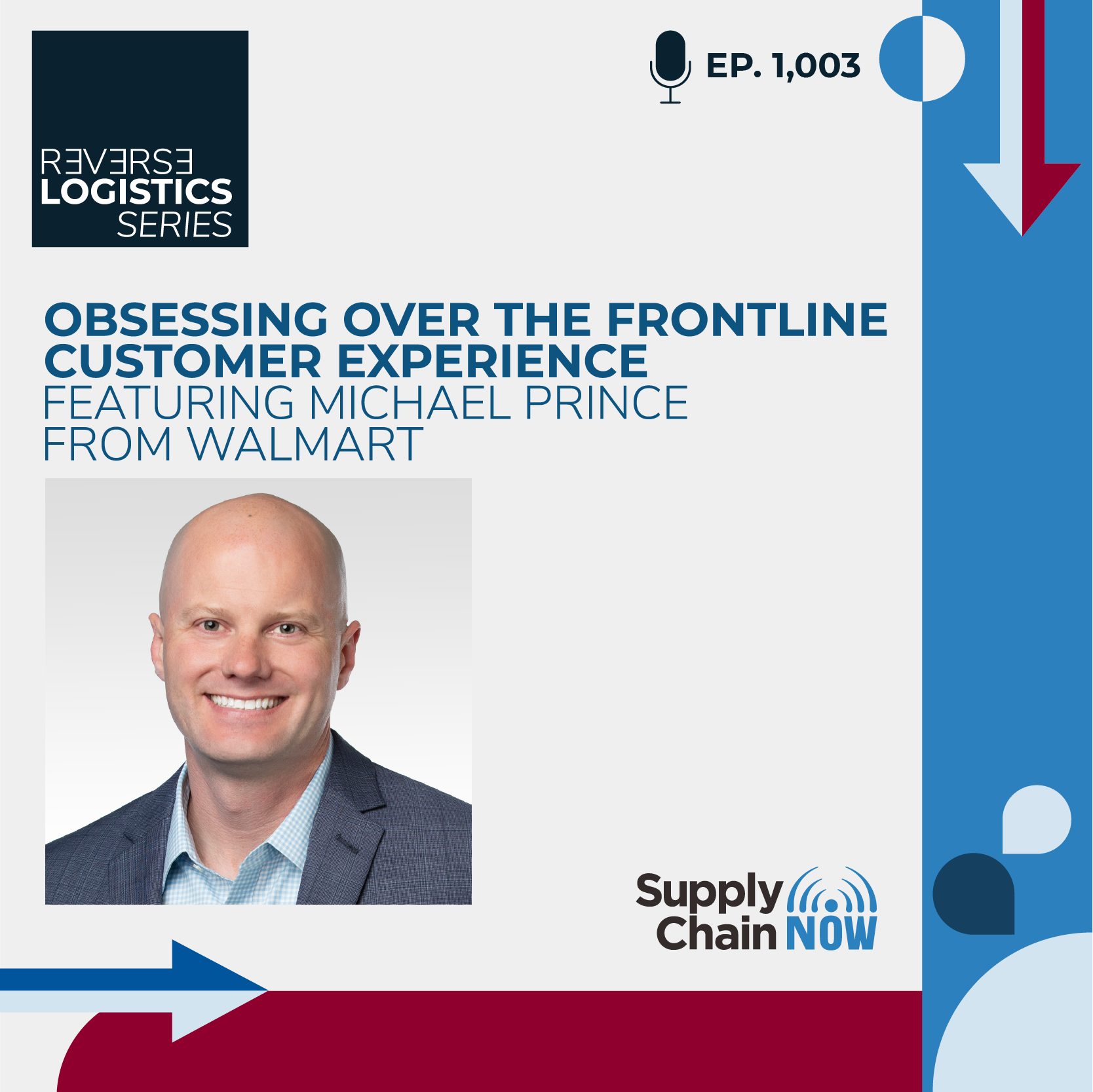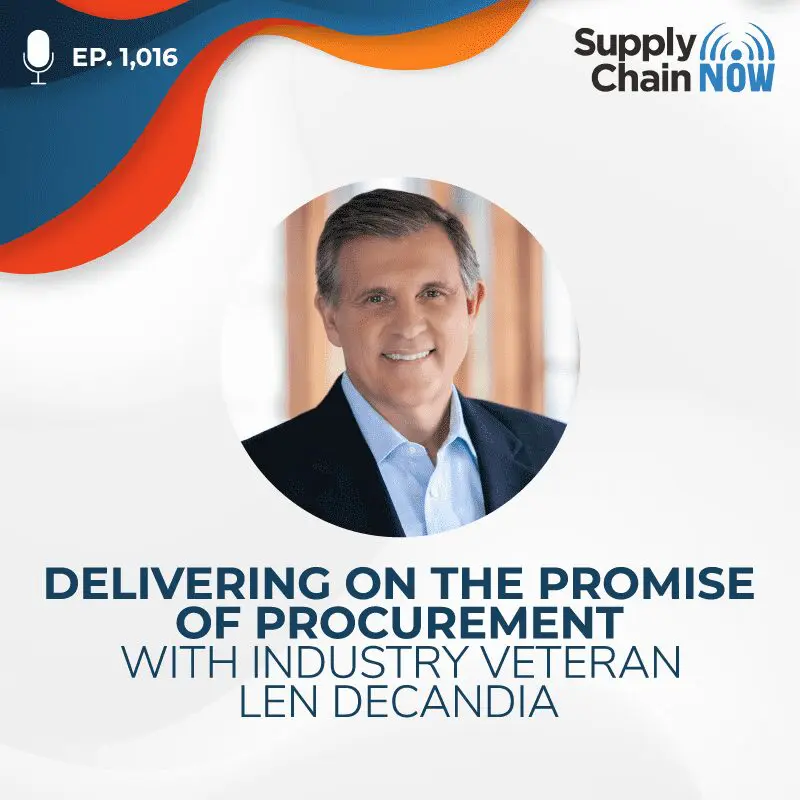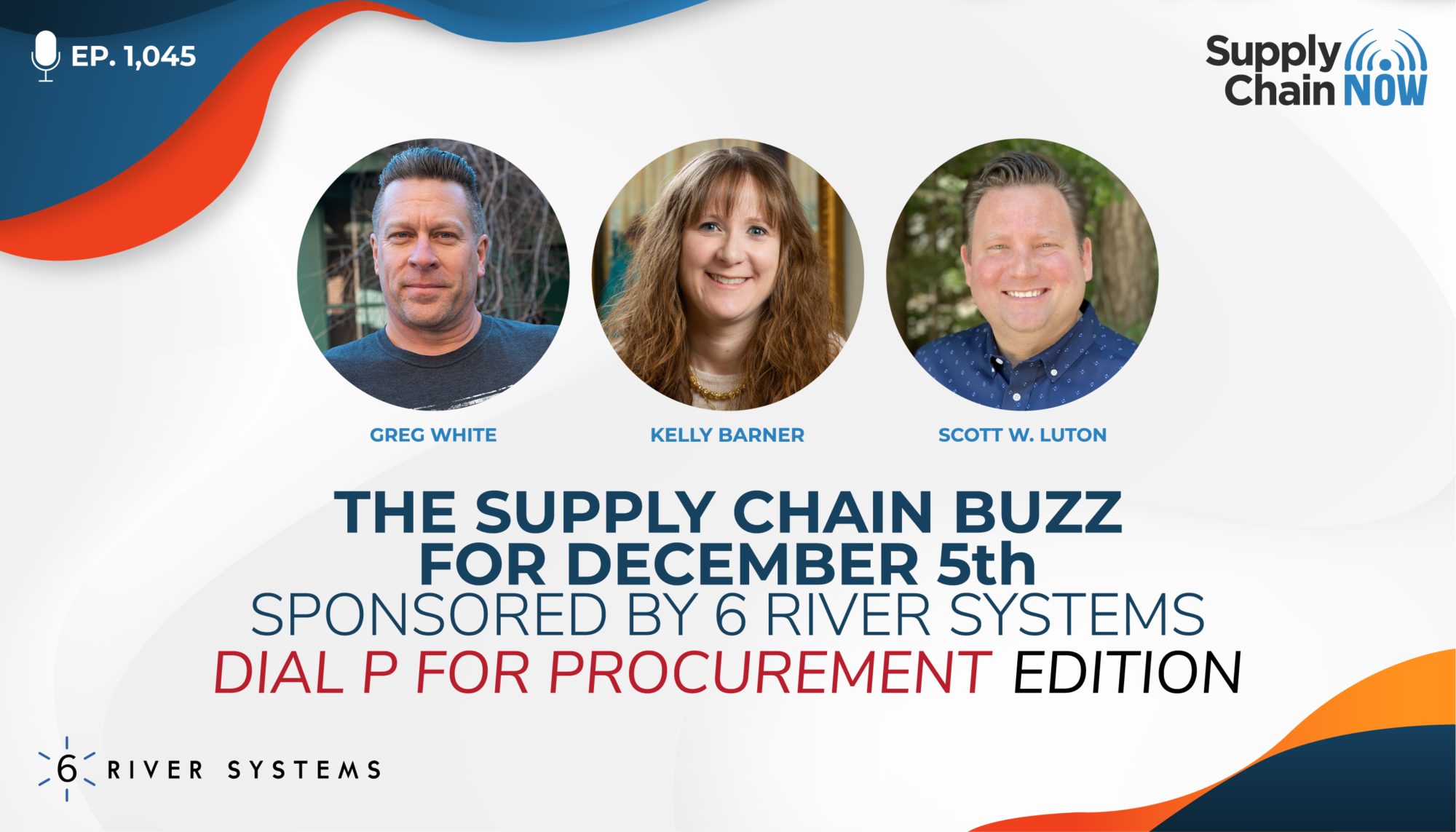
I think it's easy to believe that supply chain is becoming autonomous and technology driven. It is technology enabled, but it is still definitely human driven.
- Greg White
Episode Summary
The Supply Chain Buzz is Supply Chain Now’s regular Monday livestream, held at 12n ET each week. This show focuses on some of the leading stories from global supply chain and global business, always with special guests – the most important of which is the live audience!
This week’s edition of The Buzz featured Kelly Barner, host of Dial P for Procurement, Greg White and Scott Luton, and was made possible by the team at 6 River Systems.
In this session, created in collaboration with a live Supply Chain Now audience, Kelly, Greg, and Scott discussed:
• The challenges associated with placing too much reliance on regulation in the fight against bad actors on the world stage
• Truck driver strikes that are once again causing disruption in South Korea, and how that government’s handling of them compares to the U.S. federal government’s response to the railway strike
• Disruptions in the lettuce supply chain that are interfering with (GASP!) the menu at Chick-fil-A
• The current trend of the U.S. manufacturing industry according to the Institute for Supply Management’s November 2022 Report on Business
Episode Transcript
Intro/Outro (00:00:03):
Welcome to Supply Chain Now, the voice of global supply chain. Supply Chain Now focuses on the best in the business for our worldwide audience, the people, the technologies, the best practices, and today’s critical issues, the challenges and opportunities. Stay tuned to hear from those making global business happen right here on Supply Chain Now.
Scott Luton (00:00:30):
Hey. Hey. Good morning, good afternoon, good evening, wherever you are. Scott Luton, Greg White, and Kelly Barner here with you on Supply Chain Now. Welcome to today’s livestream. Kelly, how are you doing?
Kelly Barner (00:00:41):
I’m doing good. Happy Monday.
Scott Luton (00:00:43):
It’s like you were doing a “here we are.”
Kelly Barner (00:00:47):
I know. “You’re just in.”
Greg White (00:00:49):
Yeah, that’s right. Wait a minute. Kelly, let’s ask that question again. How are you doing?
Kelly Barner (00:00:56):
Wicked good, Greg.
Greg White (00:00:57):
Thank you.
Scott Luton (00:00:57):
There we go. There we go.
Greg White (00:01:00):
Already complete.
Kelly Barner (00:01:01):
There you go. Joseph Boston, vitamin B.
Scott Luton (00:01:05):
And, Greg, how are you doing today?
Greg White (00:01:07):
I feel quite well, thank you. And, yeah, it was a great weekend. Chiefs let us down, but go Blue. Michigan, one, and Georgia, one. And the two teams that I thought – sorry, not that this doesn’t affect my mood, but I think I am relaying a lot of football fan’s feelings when I say that the two teams that I think most of us thought were the weakest and the top four of the CFP both lost, though one of them still got in, TCU and USC.
Scott Luton (00:01:44):
Right. You know, all I can say is I look forward to when it’s an 8 or 12 team playoff.
Greg White (00:01:51):
Well, next year. [Inaudible] next year.
Scott Luton (00:01:53):
Really? Next year? I thought it was going to be two years. Okay. That’s a great holiday gift. So, that’s going to be wonderful. It’s going to be one of the best sporting events of all year. And, Kelly B., your quick analysis on the college football playoff?
Kelly Barner (00:02:08):
Believe it or not, I have a comment on this. I married into a Penn State cult/family, so I do understand that next year the Rose Bowl is no longer Big Ten and PAC-12. It’s going to be part of the bracket system. And Penn State is going this year, so they’re getting to play in the last one of those sort of traditional match up things.
Greg White (00:02:29):
Oh, that is awesome. So, they did get it. So, who are they playing then? Is it SC? It doesn’t matter.
Kelly Barner (00:02:35):
It’s too much detail. Somebody else. Not Ohio State, I know that.
Scott Luton (00:02:40):
Join us at 11:00 for the full story.
Greg White (00:02:42):
Nobody from the PAC-12 is going to be Penn State, but it doesn’t really matter.
Scott Luton (00:02:46):
And, Kelly, only kidding, I’ve always enjoyed how you’re a proud non-football and other sports fan. We should give the NASCAR update though. And NASCAR season, is that right around the corner?
Kelly Barner (00:03:00):
Yeah. So, usually NASCAR starts right back up around Valentine’s Day. They have, I think they call them the Duels now. It used to be the Shootout Budweiser. It’s like a pre-season race kind of thing, which is fun. And then, there’s of course opening weekend, but usually it falls right around Valentine’s Day. So, this is kind of the brief couple of months during the year when all the NASCAR families try to time having their babies. And then, romantically, just in time for Valentine’s Day. I can’t tell you how many Valentine’s Day dinners I’ve had either watching Talladega Nights, the Jewels, or the opening race of the season.
Scott Luton (00:03:37):
Love it. Okay.
Greg White (00:03:38):
Any of those are good also. We had a discussion over the weekend, for some reason, about Days of Thunder. So, I don’t know if you all know this, but Clay “The Diesel -” that’s right, it was Friday when we were in Phoenix – has never seen Days of Thunder, so I hope he took the opportunity to watch this weekend.
Kelly Barner (00:03:57):
Seriously? Oh, that’s important.
Scott Luton (00:04:01):
All right. So, now that we’ve doubled down on the sports frontend here of The Supply Chain Buzz, we got to get down to news of what’s going on across global business, because The Supply Chain Buzz powered today by our dear friends at 6 River Systems. So, we’re going to be talking about some of the leading stories that are going on across global business. We got a variety of topics here today. And, of course, Kelly Barner, Greg White, and I here ready to get in trouble to get into it. So, where I want to start, though, Greg and Kelly –
Greg White (00:04:32):
Yes, Scott.
Scott Luton (00:04:32):
… is I want to share our With That Said, which is our weekly LinkedIn newsletter that went out over the weekend. So, we just surpassed 18,000 subscribers. We’ve accomplished that probably about two months. Thank you all for leaning into this kind of off the beaten path content from the whole Supply Chain Now family team. And with that said – no pun intended – we really celebrated many of our subscribers and listeners. So, check out the pseudo-Norman Rockwell painting there, Greg and Kelly. Is that pretty cool or what?
Kelly Barner (00:05:08):
Is that Kim Winter? Do you guys see him?
Greg White (00:05:11):
What’s that?
Kelly Barner (00:05:12):
I swear that looks like Kim Winter. I don’t want to point, it’s not going to help you.
Greg White (00:05:17):
I immediately locked on was Jason, I think kind of right there in the middle, from Imperative Entertainment.
Kelly Barner (00:05:27):
With the streak in his hair?
Greg White (00:05:29):
Yeah. Yeah. I don’t know that he has the streak, but definitely the face shape and the goatee.
Scott Luton (00:05:35):
Well, check this out. We pointed out a lot of folks kind of in the crowd.
Greg White (00:05:41):
I see Kim Winter. I see who you see as Kim Winter. Sorry, go ahead, Scott.
Scott Luton (00:05:45):
That’s okay. We’ll drop the link in the chat. We’d love for y’all to weigh in. Let us know what your take is, all the things. We also mentioned Greg and Kelly, some of their most recent commentary and analysis. So, y’all check that out. Along the same lines – and we’re going to say hello to a few folks here in just a second – our Leveraging Logistics for Ukraine project, the next meeting – really, the operations meeting -, is December 13th at 11:00 a.m. Eastern Time, that is a week from tomorrow. Folks, I tell you what, they have truly been moving mountains with this humanitarian aid focused project/initiative. Over 500,000 pounds of targeted aid has made it to Ukraine, Poland, and elsewhere. So, join in next week, even if you’re not in position to give or donate anything, join in to gather the market intel and get a sense of what’s going on and how you can help. So, maybe you can then go back and rally the troops and find a good way to contribute. So, next Tuesday – a week from tomorrow – at 11:00 a.m. Eastern Time. Greg, your quick thoughts here.
Greg White (00:06:50):
It is truly moving mountains, mountains of goods and materials for folks over there who are still going through this. We don’t hear about it as much. Although, I did hear that the leader of Russia may have taken a tumble and soiled himself over the weekend, which is kind of funny. But it couldn’t happen to a nicer fellow. But, yeah, it’s still an important initiative. And it makes me think, Scott, did you get a specific update? Did you join the latest call? I don’t know. I’m curious.
Scott Luton (00:07:25):
I haven’t, but we’re going to get –
Greg White (00:07:28):
[Inaudible] in terms of shipments out there.
Scott Luton (00:07:29):
Yeah. There’s a much bigger number than the 500,000 pounds that I shared earlier. So, we’ll see if we can get that update on Tuesday. But, Kelly, these are kind of do good initiatives that the global supply chain community should feel good about, right?
Kelly Barner (00:07:45):
Oh, absolutely. And just the Vector team’s commitment, I know they’re sort of spearheading the effort. There’s a lot of other people involved. You know, you always go through that initial burst of enthusiasm and then everybody kind of goes back to their day job. These guys have stuck it out. And it’s gone through multiple phases and evolutions, but they are still there doing the work that needs to be done.
Scott Luton (00:08:05):
Agreed. Well said there. Okay. So, y’all get involved. We dropped the link in the comments. Whether it is the newsletter, on a much lighter note, or the Leveraging Logistics for Ukraine, where we could use everybody’s help there.
Scott Luton (00:08:20):
Saying hello to a few folks. Katherine behind the scenes – big thanks to Katherine, Chantel, Amanda, and Clay – “Good morning/ Good afternoon.” Happy Buzz day, typically what Katherine or Clay shares here. Shelly Phillips, the one and only, says good morning. Now, Greg and Kelly, Shelly brings it every time. I mean, if you’re not tracking her comments on these conversations, you’re missing out, right?
Kelly Barner (00:08:44):
Absolutely.
Greg White (00:08:45):
Yeah, I agree.
Scott Luton (00:08:45):
Let’s see. I’m going to skip over some of these comments that folks are dropping in the chat. Hey, some things are out of our control from time to time, right? But, hey, look forward to your contributions throughout the next hour as we tackle some of the most important news taking place across global business. Okay. Greg and Kelly, are y’all ready to dive into the first news item for today?
Kelly Barner (00:09:09):
Ready.
Greg White (00:09:10):
Yeah.
Scott Luton (00:09:11):
The seatbelt is buckled ready to go, so we’re going to start. And, Greg, as I mentioned – I’ve got to find to find it. It’s right here somewhere – I’ve got my fire extinguisher here for your comments here on the front story. But we’re going to talk about China. And, Kelly, tell us about how China has been dodging tariffs on solar panels as of late. Tell us more about that.
Kelly Barner (00:09:33):
Yeah. So, this is an interesting example of any of these, whether it’s a supply chain complexity or manufacturing complexity, when you simply think that regulation will fix it, think again. So, China actually comes into play in two different places in the article. One is that we all know as part of the Uyghur Forced Labor Prevention Act, which took effect earlier this year. It was Xinjiang, that part of China where the Uyghurs live, where most of the materials for making solar panels came from. And, now, in order to export from there, you have to white list prove that forced labor was not used. So, now, that supply is sort of off limits.
Kelly Barner (00:10:13):
Now, the rest of China has tariffs placed against it by the U.S. They’re trying to create an opportunity for U.S. manufacturing to catch up. But these things take time. And because the tariff on products coming directly from China is a slim 254 percent, it has created an incentive for companies to actually route their goods through four different Southeast Asia countries. It’s Cambodia, Thailand, Vietnam, and Malaysia. They’re rooting the goods through those, doing just enough final assembly there to try to position it as being from those countries. That is not counting. And it’s U.S. manufacturers that are actually bringing this to the attention of the Federal Government and saying, “And so, what are you going to do about it?” So, interesting story about trying to stop bad things from happening in multiple places and actually incentivizing new and different bad things.
Scott Luton (00:11:11):
Well said, Kelly. Greg, your thoughts here?
Greg White (00:11:14):
Well, I mean, in a way, this is not new. Even when the tariffs were imposed on China, what American companies were doing was simply landing the goods in Mexico or Canada – and, sorry, I forgot about Canada. And then, that dissolved the need or the ability for the tariff to apply, and they would just drop it in Vancouver and bring it over to Washington or, you know, Mexico into California, or wherever. And I think what this really highlights is that we need to be thinking about the intent first, and then the execution methodology next. Because when, particularly, politicians are too prescriptive with what they want to have happen, not the outcome that they desire, they get way too specific because they’re lawyers. They get way too specific and they wind up, as Kelly is talking about, opening new misdeeds by confronting old misdeeds.
Scott Luton (00:12:18):
Well, you know, as one of the things Kelly kind of implied there, according to Wall Street Journal, which is where we had – y’all check out the article. That’s what a lot of our conversations is based around here today. I think the links in the chat – several thousands of shipping containers full of solar panels have been stuck in a variety of ports detained by U.S. Customs. Now, that has backed up – get this. I’m having to learn these new prefacing – 23 gigawatts worth of big solar projects have been delayed. Now, that number, 23 gigawatts, is two times the size of all a gigawattage that was installed in 2021, so that is huge. So, on one hand, is it slowing some good projects down that could lead to maybe more efficient, greener, and cheaper power? Sure. But to the ends that, Greg and Kelly, you’re both speaking to, is it preventing bad actors from doing more bad deeds? Absolutely.
Greg White (00:13:26):
I don’t think so. I really don’t think it’s preventing it. Because I think what we have to acknowledge here – I know you want me to flame China here, which I would happily do – if it weren’t for the fact that it is American companies importing these solar panels from China. They may be built in China, but China is not over here buying their own solar panels and bringing them in. We’re doing this to ourselves, right?
Scott Luton (00:13:48):
Sure. But I’m saying within detaining, this is a sign of the legislation and of the policies enacted in the last six, eight months of it starting to, at least, bring to visibility what is giving some bite to all the talk. Is it solving everything? Absolutely not. But at least it’s giving some bite to the talk of clamping down and controlling. Kelly, your quick thoughts.
Kelly Barner (00:14:17):
I think the thing that makes this so extra fascinating is that we’re not talking about shoes or tires or cars or steel. We’re talking about which is more important to you moving forward with green renewable energy, or human rights abuses, or punishing geopolitical bad actors? It creates this really hard question that regulators as well as companies are going to have to figure out and consumers are going to get their opportunity to weigh in as well. So, I love the complexity of this kind of story.
Greg White (00:14:48):
Well, it is a direct conflict within ESG.
Kelly Barner (00:14:53):
Yes, it is.
Greg White (00:14:53):
E for environmental, S for social justice –
Kelly Barner (00:14:57):
So, pick E or S in this case. And then, you have the governance, which is the law, which is attempting to work. But it’s not as simple as it sounds. ESG sounds lovely, right? But the execution is where it gets complicated.
Greg White (00:15:10):
Unquestionably.
Scott Luton (00:15:11):
Lot of good thoughts there, Greg and Kelly. Thank you very much. And we’ll keep our finger on the pulse of the story as it continues to play out, not just in in the solar panel arena, but many, many others. All Right. So, moving right along, by the way, hello, Kim Winter. His ears may have been burning, Greg and Kelly.
Greg White (00:15:30):
You put up that picture and see if he can pick who he is.
Kelly Barner (00:15:32):
Find yourself in the picture, Kim.
Scott Luton (00:15:34):
Yeah, I’ll revisit that.
Greg White (00:15:36):
Find Kim.
Scott Luton (00:15:37):
Shelly Phillips, I hope she can live up to the height we’re talking on the frontend. I know you can, Shelly. Hey, Leah Luton from Aiken, South Carolina. Hey, mom. I appreciate she always enjoys – that might be a little bit partisan. She may have some rose colored glasses on. But regardless, great to have you here as always. And speaking of, Shelly says, “Hey, are there any solar panels that do not involve -” yes, there are. And the other fact, what I didn’t share, is, about 80 percent of all solar panels here in the States come from either China or other aging countries, and of course, predominantly from China. So, even my simple mathematical ability would tell me that at least 20 percent of all solar panels used in the States don’t come from these oppressed regions, right? Kelly and Greg, is my walking around math sound good?
Kelly Barner (00:16:34):
It does sound good. Yeah. But the cost is very different as well.
Greg White (00:16:38):
It’s great. [Inaudible] used to be 100 percent, by the way, that the companies that make solar panels in the U.S. offshored to China with the intent of saving costs to do that. I mean, China didn’t exactly volunteer to do this. And those same companies are now the same companies waiting for those 2000 gigawatts of solar panels to come in from China because all they do is label them.
Kelly Barner (00:17:06):
That’s almost enough energy to time travel. Was it 1.21?
Greg White (00:17:12):
1.6 gigawatts.
Kelly Barner (00:17:13):
Was it 1.6? Okay.
Greg White (00:17:15):
Yeah, I think so.
Kelly Barner (00:17:16):
So, we need those solar panels.
Greg White (00:17:18):
Maybe Katherine can do a little research on Back to the Future and see. It was precisely X number of miles an hour, I think it was 77 miles.
Scott Luton (00:17:28):
Oh. Okay. Now, I’m with y’all.
Greg White (00:17:31):
[Inaudible] gigawatts which caused time travel in the DeLorean.
Kelly Barner (00:17:34):
Because nobody knew the word gig yet, gigawatts.
Greg White (00:17:38):
Yeah, that’s right.
Scott Luton (00:17:39):
I missed that.
Greg White (00:17:40):
Somebody should have travel back in time in the DeLorean and made it a better car, and then there wouldn’t be all these problems.
Scott Luton (00:17:46):
Which, by the way, there’s some fascinating documentaries on the whole DeLorean story on Netflix and Hulu and elsewhere, so y’all check that out. Really quick aside, too, Greg, for us in the Atlanta area, I remembered, and I’m separating this completely from the Uyghur issue. However, to your point, there was a company, a startup, that started at Georgia Tech called Suniva. And it grew rapidly into a big organization here in the Metro Atlanta area. And then, to your point, they pushed all production – as I recall – of this very innovative solar cell technology to – I think it’s in China – but at least Asia. So, that’s part of why we’re here, right, Greg and Kelly? But nevertheless, back on that first story, it’s good to see some of these shipments being stopped. And, hopefully, the ripple effect will continue moving up to a more proactive and preventative aspect. So, we’ll see. All right.
Scott Luton (00:18:49):
So, are we ready to keep driving? That first story generated so much discussion. We could make the whole hour, perhaps. But let’s move to this second story because it’s a fascinating one as well with some themes that are tied into some of the things we’re seeing here in the U.S. So, NPR and the AP reporting that South Koreans are taken to the streets in protest, but in support of the trucking community there. Kelly, what’s going on here?
Kelly Barner (00:19:17):
Well, this is interesting. So, you would be forgiven if you might think we were looking at an old article, because this also happened in May and June of this year. There’s different groups of truck drivers, different unions, and different types of specialized drivers within South Korea. The current strike that’s ongoing happens to involve the cement drivers. But there’s a possibility that it’s going to spill over to fuel tanker drivers. And, really, it’s coming down to a lack of ability to amicably settle debates that have come up in the past. When the pandemic hit, South Korea put in place, basically, minimum freight costs to ensure that not only would the drivers be able to make ends meet with costs going up, but that they wouldn’t be incentivized to do unsafe driving practices, and lead to actually social damage and property damage in order to, again, make ends meet.
Kelly Barner (00:20:12):
They did manage to initially settle things, but it has recently boiled back over. And now the government is taking steps to force the drivers back to work. Five thousand people showed up to protest in South Korea on Saturday. So, it was definitely making headlines even in terms of the numbers. And of course, earlier in the year, we saw the Canadian truckers. As I had commented on Dial P back then, I did think the Canadians protest looked more fun. The South Korean protest was very disciplined. They were very quiet and sitting in the streets. But if I had to pick a protest to attend, I would probably go to Canada, you know, if I was there purely for entertainment value. But just because they have a distributed job does not mean that they cannot come together, both through formal unions and also through simply coming together in terms of numbers to make their cause heard.
Scott Luton (00:21:08):
All right. So, Greg, beyond weighing in of what’s a more fun protest between South Korean and Canadian protest, weigh in on the story here.
Greg White (00:21:15):
Well, I think considering South Korea’s very recent collective group catastrophe, I would prefer that they somehow stay home and protest. But if it’s only 5,000 people, it’s not nearly as dangerous as whatever holiday they were celebrating when all those people got injured and killed. But I think that the important thing is that this all stems from government intervention. We keep talking about disruption in supply chain and how disruption is so much greater than it’s ever been. And, virtually, every single one of those significant disruptions, admittedly, one of those disruptions or at least one of those disruptions, was absolutely necessary. The seismic societal disruption of shutting down the entirety of society while we tried to resolve the pandemic. But all of those actions since have continued to exacerbate the problem by, in some way, motivating people to not work or not work for the going wage at the time they institute these things.
Greg White (00:22:36):
And I think this is important, it really enunciates how labor intensive supply chain is. I mean, frankly, every business, their biggest cost is labor. But I think it’s easy to believe that supply chain is becoming automated and autonomous and technology driven. It is technology enabled, but it is still definitely human driven. And we’re going to continue to have these disruptions. I mean, this is not unlike the topic we were just discussing. Government does this to solve this topic expeditiously to get themselves back on the top of the polls to appear popular again. And later, the unintended consequences of their shortsighted actions create yet another crisis. So, I think we have to be careful, we never will. But we have to be careful to not ask for too much intervention from government on these things. And we’re going to talk about yet another intervention from government in very short order – well, probably right on the back of this, aren’t we, that has the potential for dire consequences down the road.
Scott Luton (00:23:56):
Well, we are. But first I want to get this common in from Shelly. Shelly says, “I could not take my eyes off the ‘on the ground’ phone videos during the Canadian trucker strike. Kelly, it did look like a lot of fun. Hockey games and cleaning up the streets.”
Kelly Barner (00:24:10):
If there’s another one, Shelly, you and I are going. We’ll do some on ground reporting.
Scott Luton (00:24:14):
But to Greg and the segue we do want to make here, Shelly’s spot on. Shelly, you’re really vibing today.
Greg White (00:24:22):
[Inaudible].
Kelly Barner (00:24:22):
We knew we could count on you.
Greg White (00:24:24):
Everybody sees it coming, don’t they?
Scott Luton (00:24:25):
The Koreans sound like shades of how our real situation might go. So, on that note, government intervention and all –
Greg White (00:24:32):
By the way, let’s give credit where credit is due. I mean, we put the high bar out there and Shelly leapt right over it.
Scott Luton (00:24:40):
Agreed. Kelly, you have been doing a ton of reporting on the railroad industry situation. And just when folks may think that tragedy and stoppage could be averted, that may not be the case. Kelly, tell us more.
Kelly Barner (00:24:58):
Sure. And, actually, Greg, this is an excellent opportunity to bring in a little bit more Boston accent. Labor Secretary Martin Walsh from Boston directly to D.C., he was the one that originally headed off the rail strike back in September. Then, the union started voting because the membership has to weigh in. It’s not just the labor representatives negotiating with the railways. And four of the largest unions actually voted to reject the deal that was on the table. So, we got through midterms. And then, it sort of started to pop back up as these votes were going against approving the deal. And the most recent thing that took place, which was something that nobody wanted, was Congress got involved, they put a bill on the president’s desk, he signed it on Friday, which actually makes it illegal now for the railway workers to strike. So, they are being forced to accept the deal on the table.
Kelly Barner (00:25:51):
And the interesting thing about this, I think, does come a little bit the S in ESG is sort of the larger labor conversation. They’ve been given enormous pay raises. And so, I’ve heard a lot of people make the comment, “How can you complain? You’re getting 24 percent pay raises, some of it is backdated.” But what they really want, this is a quality of life issue, it is very difficult to get days off partially because the rail workforce is so much smaller than it was just a few years ago. And they really don’t have the headcount to allow people to take time off. And so, what workers are saying is, you can pay us all the money in the world, but if we have to choose between – one story I read, the worker had to choose between his son’s birthday and having necessary dental work done. And so, he made the decision to go with the birthday. And by the time he had enough time off to get the dental work done, the tooth could no longer be repaired and it actually had to be pulled.
Kelly Barner (00:26:47):
So, it’s easy for people in a 9:00 to 5:00 with sick time, and paid leave, and Family Medical Leave Act, and all those kinds of things to forget that there are still people out there working today that play essential roles within society that simply can’t take the time off, that we actually don’t think a whole lot about doing in other roles where we do have access to that kind of flexibility.
Scott Luton (00:27:11):
Excellent point, Kelly. I’ll get you to comment here, Greg, in just a second. But, you know, we’re trying to get an interview with an engineer from the railroad industry to really give kind of that take. So, stay tuned on that. And then, of course, that archaic law – I’ll say archaic law because it’s old – from 1926. That’s the law they’re leveraging to prevent a strike, potentially, from taking place. But, Greg, weigh in on what Kelly just shared there.
Greg White (00:27:38):
Well, I mean, it’s an old law, but it’s still the law. The Constitution also is still the law from 1776. So, I think we have to – actually, it wasn’t 1776 the Constitution.
Scott Luton (00:27:54):
How’s that going, Greg? How’s it going with you, man?
Greg White (00:27:56):
Yeah. Thanks. 1787. Thanks for letting me have that. I think what we have to recognize is that, again, this is expeditious-ness being performed by politicians to give the perception of a solution. And to Shelly’s point earlier, what she said was, “Why can they not see these unintended consequences coming?” It’s because they don’t look that far. And that’s not their fault. That’s our fault. They know that our collective memory is very, very short, weeks, if not less. I mean, you’ve probably seen television shows where they talk about the news cycle. If something doesn’t stay substantially in the press for two weeks, we, Americans, collectively, we don’t care about it. So, they know that they can do this incremental thing and look good. And when the consequences come, they’ll deal with those because we won’t remember that this stemmed from that.
Kelly Barner (00:29:04):
And we talked earlier, we don’t even discuss the war in Ukraine anymore. It is literally a war going on in our world, in our lifetime, and we’re, “Oh, you know, past June.” And it falls from the headlines. It’s terrible.
Scott Luton (00:29:17):
Right. Well, and that’s, of course, what bad actors are counting on. I was reading over the weekend, again, from the Wall Street Journal – I am an unabashed fan of their reporting – how grain shipments through the captured ports and through other ports within the Russian network, they’re being mislabeled so they can get in and out of these ports without true origins coming from Ukraine being identified. And the levels, the sheer levels of activity – I’m trying to remember the number – I think more grain under disguise will have been moved this year than in the last, like, seven years or something – it’s ridiculous – when everything was above board. So, to both of your points, it’s shameful. Shame on us for having goldfish attention spans.
Greg White (00:30:07):
TikTok is what Shelly just said. Where you can learn about a topic from someone who just read a Wikipedia page five minutes ago.
Scott Luton (00:30:15):
But the good news is there are plenty of ways to take action and don’t have your attention and priorities be driven by media, such as our leveraging logistics for Ukraine initiative. Okay, for the second time, I want to move on because I want to hit on – and by the way, Greg and Kelly, thank y’all for the update – that’s an ongoing story that has developments across a number of different levels. And we look forward to more interviews around the railroad industry.
Scott Luton (00:30:48):
But I want to do this, so 6 River Systems, of course, our friends and sponsors of today’s episode, they’ve got a couple of resources we want to share with folks because we know what’s coming here in December. We’ve got holiday gift buying. It’s already begun for the last couple months. It’s probably reached crescendo, I imagine, in December. But then, Greg and Kelly, the tidal wave of returns and we do a lot of work around reverse logistics and returns management. There’s great white paper from our friends at 6 River Systems optimizing your returns management process. So, we encourage y’all to check that out. We’ve got the link in the chat.
Scott Luton (00:31:27):
And then, also, Greg and Kelly, I don’t know about y’all, I’m a big sucker for a good business use case or case study. There’s lots of those from a variety of different industries from our friends at 6 River Systems. We’ll see some of their solutions deployed in a number of different ways, ranging from GXO to legend valve, incro, micro, topnotch distributors, and many, many more. So, y’all check that out. And if you think you’re too unique, Greg and Kelly, if you think your business may just be too unique for automation and robotics, hey, you’re not that special. Check out some of the stories out there.
Greg White (00:32:03):
It’s funny you say that, Scott, because having done thousands, literally thousands, of technology implementations, what I know is that every company is different in exactly the same way – we used to say that all the time. Look, there are only a certain number of ways to do business. Often, those things that are unique or specific to your organization are because of a particular strength. Or, in my experience, it’s been more likely a weakness within your organization for which you are compensating. And I think having seen a lot of technology implementation where there is a ton of labor involved and also seeing completely lights out, for instance, distribution centers in one of my favorite businesses, wine and spirits, so you don’t have to worry that someone has touched your 1962 Chateau de Fargues or whatever the heck that is, it was never touched by human hands. And I can verify that because I watched it happen. So, look, there is always some level of automation that is applicable here, first. And secondly, Chuck, right? What can personify it more than a robot named Chuck?
Scott Luton (00:33:23):
I’m glad you mentioned that. So, look at this, if you’re an Office fan, in some of these sites where 6 River Systems deploy their technology, their teams, the client teams, I guess, for lack of a better phrase, will name each robot. Well, this one’s name is Dwight, and I love that. So, if you’re an Office fan, maybe they’ve got Michael and Jim and many others. But I think that’s pretty cool.
Greg White (00:33:46):
So, if you anger that one, it shams you.
Scott Luton (00:33:49):
Yes. You could argue about the the mightiest bear with that one or Battlestar Galactica.
Greg White (00:33:58):
Bears, [inaudible] , and Battlestar Galactica.
Scott Luton (00:33:59):
All right. So, Kelly, we’ve talked a lot here in just the last few minutes about automation and different unique nuances of different business models. Anything you want to add before we move to the next story related to food?
Kelly Barner (00:34:13):
Just that you should never underestimate the work and trust that goes into making a case study possible. I obviously come to that from a writer’s standpoint, but doing the interviews –
Greg White (00:34:21):
that is perfect.
Kelly Barner (00:34:22):
… right? – getting a customer that is willing to speak on your behalf and let their story go out there and their name go out there. You can’t have a case study if you don’t admit that you started in a less than perfect place in order to get the benefits that you’re talking about. So, that’s just, generally speaking, a great sign of good relationships if you have a solid bank of case studies.
Greg White (00:34:42):
Yeah. What, eight or nine there, right? That’s just page one, right?
Scott Luton (00:34:48):
Yeah. That’s right. But, yeah, I never thought about that vulnerability, Kelly, that businesses have to open themselves up in order to put together really compelling business case. And, hey, that is free advice from the Anne Rice of Global Business, which is with us today, Kelly Barner.
Scott Luton (00:35:02):
Okay. So, let’s move right along. I’ve got this next story teed up here. This was an interesting one. We had a little fun on social. I know Greg was traveling, meeting all the supply chain movers and makers last week – movers and shakers, rather. This one was interesting. We’re talking about lettuce shortage and how that’s impacting at least one of everyone’s – and I mean everyone’s – favorite chicken sandwich makers. So, Greg, tell us more here.
Greg White (00:35:29):
Well, we predicted this, and we heard about this many, many months ago, that crops all over the world were either they were underperforming or being decimated by various things, weather or conflict or whatever. This all sort of started with the discussion around wheat in Russia and Ukraine. And then, it evolved into the discussion around produce elsewhere around the world. And, of course, this time of year in North America, we get almost all of our produce from outside the United States. Guess why? It’s winter. So, we get it from the southern hemisphere, very often South America in the U.S. and Canada and Mexico, because it’s winter south of us in South America. So, it’s a very, very difficult thing to manage. The recognition that the crops were going to be producing short or have various and sundry other issues was known, of course, last spring when the planting started or the cultivation harvesting sort of got underway. But we’ve known about this, and now this is coming home to roost.
Greg White (00:36:31):
And it’s hit two of the biggest chains and many, many more. If you look at that commentary, we heard about that as well. So, somebody had a story about Wendy’s. Obviously, Chick-fil-A, which has one of the most efficient supply chains in the world, but especially in the restaurant business. I don’t know much about Subway and their supply chain. Somebody [inaudible] Subway and Chick-fil-A should not even be mentioned in the same sentence. And I would argue that that’s true on a lot of fronts, supply chain, quality of food, just generally cool looking buildings, stuff like that. So, it is a real problem. I’ll let Kelly tell her part, but I do actually have a wee bit of good news on that front.
Scott Luton (00:37:36):
So, Kelly, I’m going to come to you next, but I got to share this from Tom, “Lettuce this hope this gets resolved soon.”
Kelly Barner (00:37:44):
Thank you, Tom.
Scott Luton (00:37:45):
And, Tom, hope this finds you well wherever you are. Great to have you here. I would say, hey, we got to turn up the pressure on these firms to beat expectations. It may take lots of cabbage, but let us hope they win.
Greg White (00:38:01):
Tom, I will never forgive you for telling this.
Scott Luton (00:38:03):
Okay. It’s Dad Joke Monday here on December 5th. Kelly, your take on this story about lettuce crunch.
Kelly Barner (00:38:13):
Well, maybe I missed this detail in the article, but I feel like in order to get, I don’t know, appropriately worked up about this, I need to know what kind of lettuce. Like, there was a picture of Iceberg, but then is it Romaine? Because I think of romaine lettuce as being what comes on a Chick-fil-A Grilled Chicken Sandwich. Is it all lettuce?
Greg White (00:38:34):
Is Romaine what’s on it? I never [inaudible].
Scott Luton (00:38:37):
No. No. No.
Kelly Barner (00:38:38):
It’s not?
Scott Luton (00:38:39):
Well, let me back up for a second. So, for most Subway sandwiches – you know what? I had no idea. I don’t eat romaine lettuce on sandwiches. I know that there are certain sandwiches out there that that calls for. So, Kelly, I don’t know. That’s a great question. Because there’s all sorts. We’ve got Bibb bib lettuce –
Kelly Barner (00:38:57):
There’s different kinds of lettuce. Yeah, exactly. Boston lettuce. I feel different levels of emotional connection to different kinds of lettuce, and that’s going to determine how upset I get or not about this being missing. Like, for instance, I love a wedge salad. I mean, it barely even counts as salad. It’s not good for you. It’s got bacon and blue cheese on it. But is there anything more satisfying than a wedge salad?
Scott Luton (00:39:19):
Katherine is confirming via her research that it is Romaine lettuce.
Kelly Barner (00:39:24):
See. Do you know why Katherine knows this? Because Katherine and I both have to eat gluten free. The gluten free Chick-fil-A Grilled Chicken whatever sandwich comes in this funny little tub with a slice of tomato and a piece of lettuce that just doesn’t seem like Iceberg. So, that’s why Katherine and I both know it’s Romaine.
Greg White (00:39:42):
Well, but Subway does use Iceberg lettuce. I mean, it’s possible it’s both.
Kelly Barner (00:39:50):
It could be.
Greg White (00:39:51):
That’s a really good question, Kelly.
Scott Luton (00:39:53):
That is my hunch.
Kelly Barner (00:39:54):
I need to know. Inquiring minds want to know about the lettuce details.
Greg White (00:39:57):
Right. Scott, I like your mom’s take. If it includes kale –
Scott Luton (00:40:05):
Not to get too far off topic, but mom and I were talking about kale salad over the weekend. And me and Amanda are big fans. In fact, Amanda converted me. Amanda makes this homemade dressing. I could eat kale salad every day. Mom, not a fan. So, we got a little conversion there to do. For any of our listeners that aren’t seeing this, mom says a shortage of kale is fine by her.
Greg White (00:40:30):
Leah Luton, stand your ground. Do not convert. Hey, let give you a little bit of hope here. So, at the risk of Dr. Rhonda Bompensa-Zimmerman getting really, really angry at me for being in Phoenix and not saying hi, I want to first qualify by saying I was there less than 24 hours. I was able to go to an In-N-Out Burger and had a Double-double with cheese and lettuce. No questions asked. No extra charge, as the article talks about. And no notification that they were short in any way.
Kelly Barner (00:41:08):
Is it Iceberg lettuce?
Greg White (00:41:10):
It was Iceberg lettuce, yes. I’m not a huge fan of lettuce. It’s only the rare sandwich that I eat lettuce on anyway, so I could care less, frankly, about lettuce. But this is part of a bigger issue, and that is we will start to see this and the article talks about this a little bit. We’ll start to see this with other produce in the coming months.
Scott Luton (00:41:35):
That’s right. All right. So, now that we’ve all had a lot of fun and become more informed and educated –
Greg White (00:41:42):
[Inaudible].
Scott Luton (00:41:42):
… that’s right – and some questions asked that both y’all are referring to, Kawan, yes, we’re all here. Welcome. Welcome. From Iraq via LinkedIn. Great to have you here. If you’ve got a take on any of these subject items, we’d love to hear your take, but welcome. Great to have you here today. TSquared says, “The puns here.” I can just hear him say this, “Oh, these puns.” TSquared says, “Subway is primarily Iceberg lettuce.” And he’s evidently a kale fan, it’s the game to play, live kale. Interesting. That’s a new one. Maybe home raised kale, I don’t know. Shelly is also gluten free. I bet we could have a whole, like, gluten-free supply chain conversation because that has introduced so many new products and companies in the market. And, Katherine, finally, “Oh, I love kale salad,” she says, “with homemade Caesar and roasted chickpeas.” Katherine, I thought you were going to say roasted croutons, but chickpeas ain’t my thing.
Greg White (00:42:43):
So, I think what we’re learning about Katherine, Scott, is that because she lives in a very small town, although in one of the most beautiful places in the world, in a very small town, she doesn’t like a lot of the restaurants there. She has probably learned how to cook some really gourmet things for herself.
Scott Luton (00:43:03):
I bet. And this next comment, Greg and Kelly – and, Greg, we’re connected on LinkedIn and we’ve enjoyed your perspective here, you know, going back a couple years now – I think you’re in the vegetable industry, if I’m not mistaken. And Greg says, “It’s not just lettuce that’s in shortage. All crops were hit hard. Next time at the store, look at your frozen vegetables section. Drought is serious and will impact your next year’s crop.” Good point there.
Greg White (00:43:32):
That is an excellent point. So, of course, we knew that it was coming for South America or, you know, the Southern Hemisphere and its production of produce. But we’re seeing the same thing in the Northern Hemisphere, which will impact the crops for the next season out of the Northern Hemisphere. Which, also, of course impact the Southern Hemisphere because they do import some from us. And the orange crop in Florida was completely wiped out even before the hurricanes that hit. They had incredible problems with – I forget the name of it. It’s some sort of blight that they had.
Scott Luton (00:44:15):
Well, all I know is that, folks, you get a nice piece of market intel here today, because the best place ever – mom, I’m counting on you. Hopefully, you’re still with us – to get a sandwich is Pat’s Sub Shop in Aiken, South Carolina. It’s been around since the ’60s and it’s the place to go. Their bread is undeniable. Their Italian Hoagies are absolutely extraordinary, so y’all check that out. And it’s a local small business that’s been thriving for – gosh – some 60 years now. So, with that, before we hit the last article here today, Greg and Kelly, one of your favorite places, preferably, like, independent, local, small business, but what’s one of your favorite places? I saw that image on the previous graphic. And, folks, if you’re listening, you can’t see this gorgeous sandwich, this nice bread that we use as a backdrop for the whole lettuce discussion, but it made me so hungry. So, Greg and Kelly – Kelly, I’ll start with you – what’s one of your go-tos for a great sandwich?
Kelly Barner (00:45:18):
So, we have a little, I say, farm stand, but there’s more to it than that, like you actually go inside for one thing. And it’s open year-round, and it’s a deli, and it’s meats, and it’s their own produce, and it’s fresh cheeses and things, and they have a sandwich counter. And these sandwiches are incredible. Impartial to the roast beef, that’s my favorite. But they’ve got good chicken salad. It’s Davidian’s in Northborough, Massachusetts. So, if you’re anywhere near this part of the state in my part of the country, definitely check them out. It’s an awesome place to go.
Scott Luton (00:45:48):
Okay. Wonderful. Greg?
Greg White (00:45:51):
Great Harvest Bread Company. I’m pointing at it. I can’t see it, but I know precisely where it is from here. It’s a collective of wheat farmers who started Great Harvest Bread Company, where, basically, they sell you the wheat, you make bread. While a very innovative buddy of mine decided bread wasn’t enough and started making sandwiches, and their sandwiches are spectacular.
Scott Luton (00:46:20):
Really?
Greg White (00:46:21):
Yeah. In fact, now I think if I have time, I’m going to run over there real quick and grab – yes – their Italian Sandwich. And it’s super local. It was kind of a franchisee thing, but I’m not sure that there are many, many stores out there of it. But the bread is unbelievable.
Scott Luton (00:46:42):
To die for. Okay. Great Harvest Bread Company. Okay. Greg and Kelly, thank you all for playing along. Your parting gifts will be bestowed at the end of today’s session. Whenever I hear parting gifts, I remember, like, 1980s game shows, there was always parting gifts for everybody that played.
Scott Luton (00:47:03):
So, final story here today, first time since 2020, U.S. factory activity is showing signs of contraction. So, manufacturing activity data seems to show continued contraction in the industry according to the latest figures from the Institute for Supply Management’s November 2022 report. Now, key indicator focus on manufacturing activity dropped from October to November. And the November numbers, which is reflected here in this chart, are a new 30 month low. I think May 2020 is when they haven’t been this low ever since then. Executives from a couple of different industries, of course, you know what they’re pointing to, economic uncertainty, major factor in the manufacturing slow down. But other factors include a shift in consumer spending, we’ve all heard about that. Maybe have been experiencing and driving that firsthand here moving from consumer goods to maybe things like travel. Also, strong dollar that’s making U.S. goods much more expensive globally. So, I want to start here with Kelly. Kelly, your thoughts around these numbers related to manufacturing activity here in the States.
Kelly Barner (00:48:12):
Yeah. So, I actually have two thoughts about this story. One is, I was actually the ISM New York’s Business Survey Chair from 2016 to 2020, and so I cannot stress how significant it is to have this month’s numbers fall below the 50 mark. So, it’s a month over month. It’s a trend, not a level. And so, the fact that it’s moved into contraction territory, it actually in some ways doesn’t matter how much under that line it dips. I mean, obviously, a huge dip under the line means more than a small dip underneath. But the fact that it’s officially in contraction territory is really significant.
Kelly Barner (00:48:51):
My other thought on this, and it’s so funny because it seems like the day in the particular survey, I feel like the news on the economy is all over the place. So, on Friday, we got a better than expected jobs number. But now this comes out about things downturning in manufacturing. And then, if you watch the stock market, it’s a completely different picture altogether. So, I find it interesting that depending on the piece of news, where the economy is and where it’s heading seem to be very conclusive. But when you compare the pieces of news, like, we could be anywhere. Things that are strong, you wouldn’t expect them to be, things that you wouldn’t expect to be strong are, and they don’t seem to line up.
Scott Luton (00:49:32):
Excellent point. And, Greg, before you comment, to clarify what Kelly was alluding to on the frontend there, the ISM manufacturer index, if it’s above 50, it shows growth. And if it drops below that line, as Kelly is talking about, it implies contraction. And one other point is other analysts, including a group of analysts at Wall Street Journal, put together didn’t project it to be as low as it was. I think eight-tenths of a point lower is what that number came in than what all these third party analysts thought it would be.
Greg White (00:50:05):
And that’s a huge miss considering we’re talking about fractions of a percentage.
Kelly Barner (00:50:08):
And the fact that it put them over the line. So, they expected slight growth month over month, and instead they got slight contraction.
Scott Luton (00:50:16):
Greg, your thoughts here. And, Kelly, I completely forgot about that. I think when we first met, that was in your role and you were doing that excellent reporting and analysis there. Greg, your thoughts?
Greg White (00:50:30):
Well, numbers are all over the place, as Kelly talked about. In fact, I was just looking up this ISM report that just came out on the first major indicators. So, they’re saying the production gauge jumped, new orders fell, employment barometer rose. I mean, all of that is largely in contrast of what we were just talking about on this ISM report. So, that confirms – Kelly, like you needed. Of course, we know you know that – what Kelly is saying, but it also shows the mixed messages that a lot of this data is even showing the people who research and allegedly know a lot of this. So, it’s a very tough environment to understand.
Greg White (00:51:21):
And the other thing you have to think about also is there is a seasonal effect going on here. And they don’t always seasonalize the numbers until after the season occurs. So, anything that looks like sales increase could be because of the season. We saw some numbers in the last couple weeks where some sales numbers – you have to forgive me – the CPI sales numbers actually went up, but largely – in fact, I would argue wholly because of inflation – people are buying less but spending more because the unit volume went down by five-and-a-half percent and sales went up by one-and-a-half percent, which is almost 7 percent swing. Meaning, without inflation, sales would’ve actually been down 7 percent. Sorry – yeah. Sales would’ve been down 7 percent because of the 7 percent inflation rate. So, it’s pretty substantial and pretty complex to analyze.
Greg White (00:52:27):
And by the way, if you’re feeling confused out there, don’t. Because even if you are confused, you’re equally as likely – I say this all the time – not an economist, but right every bit as often as they are. So, you’re equally as likely to be correct as any economist. And if you want to look back, I was just looking at an article that said we’re on the verge of a bear market – or sorry – bull market in April of this year. So, nobody knows, gang. And these numbers are indicators and indicators only. But we really don’t know what we don’t know because we aren’t measuring so much the impacts. And, furthermore, we’ve so manipulated the measures, again, for political expediency that unemployment and inflation don’t even represent what they used to just eight or ten years ago. In fact, if you look at the underlying inflation numbers, instead of 7.7 or 9 percent or whatever it peaked at, it was actually around 16 percent by the old measures.
Kelly Barner (00:53:32):
It was huge.
Greg White (00:53:35):
So, we have to understand the one thing that the great philosopher and storyteller Mark Twain said, there are lies, or damn lies, and then there are statistics.
Scott Luton (00:53:46):
Yes. Well, the good news here is twofold. Number one, folks, we don’t require you to show your work here. Unlike your third grade math teacher, you can say whatever you’d like to say. And secondly, speaking of Mark Twain, my favorite quote of all time – I’m going to paraphrase here because I can’t remember exactly – someone doesn’t learn what happens when you carry a cat by the tail other than by actually doing it and carrying a cat by the tail. So, I completely butchered Mark Twain here today, but I love that quote.
Scott Luton (00:54:17):
All right. So, Greg and Kelly, a lot of good stuff we walked through here today. This has been very holistic. I mean, we’ve had a little bit of fun with sandwiches. We’ve talked about the sandwich supply chain. We’ve ventured into solar panel and bad actors and some of the things that China and Russia and others are doing. We’ve talked about legislation. We’ve talked about a railroad strike and what to look for there. Holy cow. Let’s make sure folks – Greg, one of our favorite series here amongst other things that Kelly does – Kelly with Buyers Meeting Point and Art of Procurement, Dial P for Procurement has been a hit. Kelly, what’s the latest episode all about?
Kelly Barner (00:54:59):
The latest episode is all about supplier diversity. We had our friends from Supplier.io. We had Aylin Basom and we had Lois Eichacker with us to talk about sort of the current state, how things have trended over time. And it’s actually interesting, Greg, because earlier when you talked about putting things in place that focus on outcomes rather than intent, that’s very much what we’re seeing in supplier diversity. You know, C-level executives are very excited, which is wonderful, and they’re getting out there and making commitments and talking about it. But someone, at the end of the day, has to operationalize all this. And the challenges are enormous. And the gap between the vision and the promises and the results that are being operationalized are pretty large in some cases. So, there’s an excellent mix in the conversation that we had with them and also in the report that sort of underpins it. Both inspirational things about the progress that has been made in the movement as a whole. And then, also, some very practical things that whether you’re a supplier diversity manager in procurement or just someone with an interest in the program itself, things that you can start doing regularly to close that gap between the results and the vision.
Scott Luton (00:56:11):
And we’re going to make it easy. So, speaking of this episode that Kelly’s talking about, not only are we dropping the direct link, the easy listen link, we call it, in the chat, but we’re also dropping a link to the episode page, which is where you can find links to the report that kind of served as the main vehicle for that discussion, and a lot, lot more. A lot of good stuff there.
Scott Luton (00:56:33):
Greg, your final comment here, whether you want to touch on the conversations that Kelly has been leading at Dial P or anything else we’ve touched on here today, folks need to leave this conversation with it rattling between their ears.
Greg White (00:56:48):
Yeah. One, follow Kelly Barner. That is one thing that you need to do. You’ll rarely find anyone who works so hard to find the truth, and I mean that in any kind of media worldwide.
Scott Luton (00:57:02):
Other than The X-Files.
Kelly Barner (00:57:04):
Too scary. I don’t do scary truth. I only do, like, non-scary truth.
Scott Luton (00:57:08):
Scully and, and molder other than Scully and Mulder, Greg.
Greg White (00:57:11):
I never watched The X-Files. I just don’t say it, I never ever watched a single episode of The X-Files, I’m sorry, so I can’t attest to that. But I can attest to the fact that what Kelly does is she digs deep below the surface. She provides both perspectives and has no political or personal agenda on these things. It is just the facts by this ma’am. And she provides a ton of follow up. We were just talking about how so many of these issues can fall out of the spotlight. Kelly has been talking about the rail strike forever and has yet a new perspective considering even before this legislation was forced through. She had a perspective on how people in the industry felt about the rhetoric around this issue even prior to this. So, it’ll be very interesting to see how all this shakes out. But know that she is on it
Kelly Barner (00:58:14):
And there’s never a dull moment. That’s the other great thing about supply chain.
Greg White (00:58:17):
Especially, the way you write. I mean, the way you write makes even the dull seem interesting. Dull things, you know, like supply chain and procurement, stuff like that.
Scott Luton (00:58:29):
The truth is out there. And now I’ve got that theme song – thank you to you both – in my mind. Folks, we’ve got a ton of resources in the chat. I definitely want to point out once again that white paper on optimizing your returns management via our friends at 6 River Systems. That is an interesting read as well as all the use cases that we talked about earlier.
Greg White (00:58:54):
Also, let’s share that Mark Twain quote. John Perry shared that. There it is.
Scott Luton (00:58:59):
Oh, good. Let’s see here. Yes. Okay. Thank you, John. Great to see you. John quotes Mark Twain, “A man who carries a cat by the tail learns something he can learn in no other way. Thank you for rescuing my really awful attempt at paraphrasing.
Greg White (00:59:15):
That’s a genius though.
Scott Luton (00:59:17):
And Shelly says, “Kelly is an amazing researcher and she does not shy away from tough subjects.” Excellent point.
Kelly Barner (00:59:24):
And Shelly’s no slouch because she’s the one that brought me and encouraged me to do the story on the FedEx potential ground strike, which didn’t actually materialize. We had no Purple Friday. So, Shelly’s also got her finger on the pulse of things in supply chain.
Scott Luton (00:59:40):
Wonderful. Shelly, thanks for being here, John, all the different folks that showed up here today. Katherine, of course, Leah Luton, Tom, TSquared, Greg, Greg Studer. I wonder if the R is pronounced.
Greg White (00:59:56):
Yeah. It is.
Scott Luton (00:59:57):
It is. Okay. Great, great, great. Well, welcome everybody. And, Kawan, hope you’ll make a regular habit of being with us here on The Buzz on Mondays.
Greg White (01:00:04):
Also, I saw somebody from Stuttgart, Germany here. You know, sometimes LinkedIn hides their identity. So, thanks for dialing in from the Center of Automotive Goodness, the home of Porsche and Mercedes. One of my favorite spots on the way to the Black Forest.
Scott Luton (01:00:22):
Love it. Okay. Well, we got to call it a show at this point. So, big thanks to our production team, Amanda, Katherine, Chantel, Clay, and many others. Thanks for doing what you do. Thanks to all of our attendees for being here and being a part of the ongoing active conversation with your comments and your tags and all of what you contribute. Greg and Kelly, always a pleasure to knock out these conversations with you both.
Kelly Barner (01:00:50):
Thanks for having us.
Greg White (01:00:51):
Oh, I’m sorry. Were we supposed to answer that? Thank you. I was just expecting you to roll right into the close. But you know what? Thank you for giving us a moment. Seriously, Scott, thank you. What you do for the industry and for us and for information is truly commendable.
Scott Luton (01:01:08):
Well, thank you. Information is power. But, Kelly, I was looking for you to do a ta-da again, like you did on the frontend. I’ll cue you next time. Hey, also big thanks to our friends over at 6 River Systems. Folks, hey, there’s a ton of information out there. There’s great people like Kelly and Greg and many others all in the chat that are making it easier for you to find it. But you still got to focus in on action. Deeds not words. So, with that said, big thanks for tuning in here today. Big thanks to all of our folks that showed up in the chat and brought it as always. Shelly gets the red star today. So, Shelly, your name’s on the board with a red star beside it. We appreciate everything you contributed. Folks, do good, give forward, be the change that’s needed. And with that said, we’ll see you next time right back here at Supply Chain Now. Thanks, everybody.
Intro/Outro (01:01:59):
Thanks for being a part of our Supply Chain Now community. Check out all of our programming at supplychainnow.com, and make sure you subscribe to Supply Chain Now anywhere you listen to podcasts. And follow us on Facebook, LinkedIn, Twitter, and Instagram. See you next time on Supply Chain Now.
